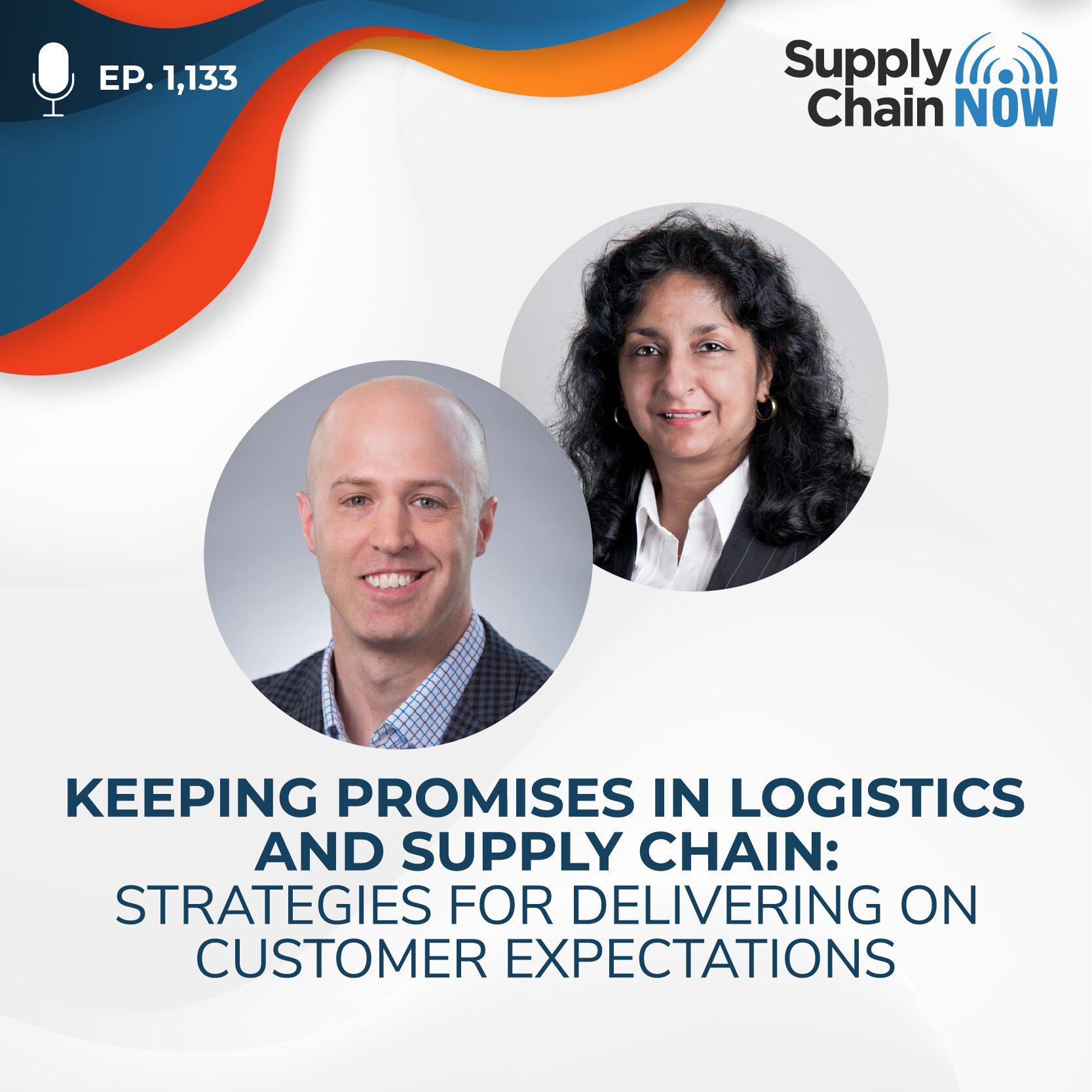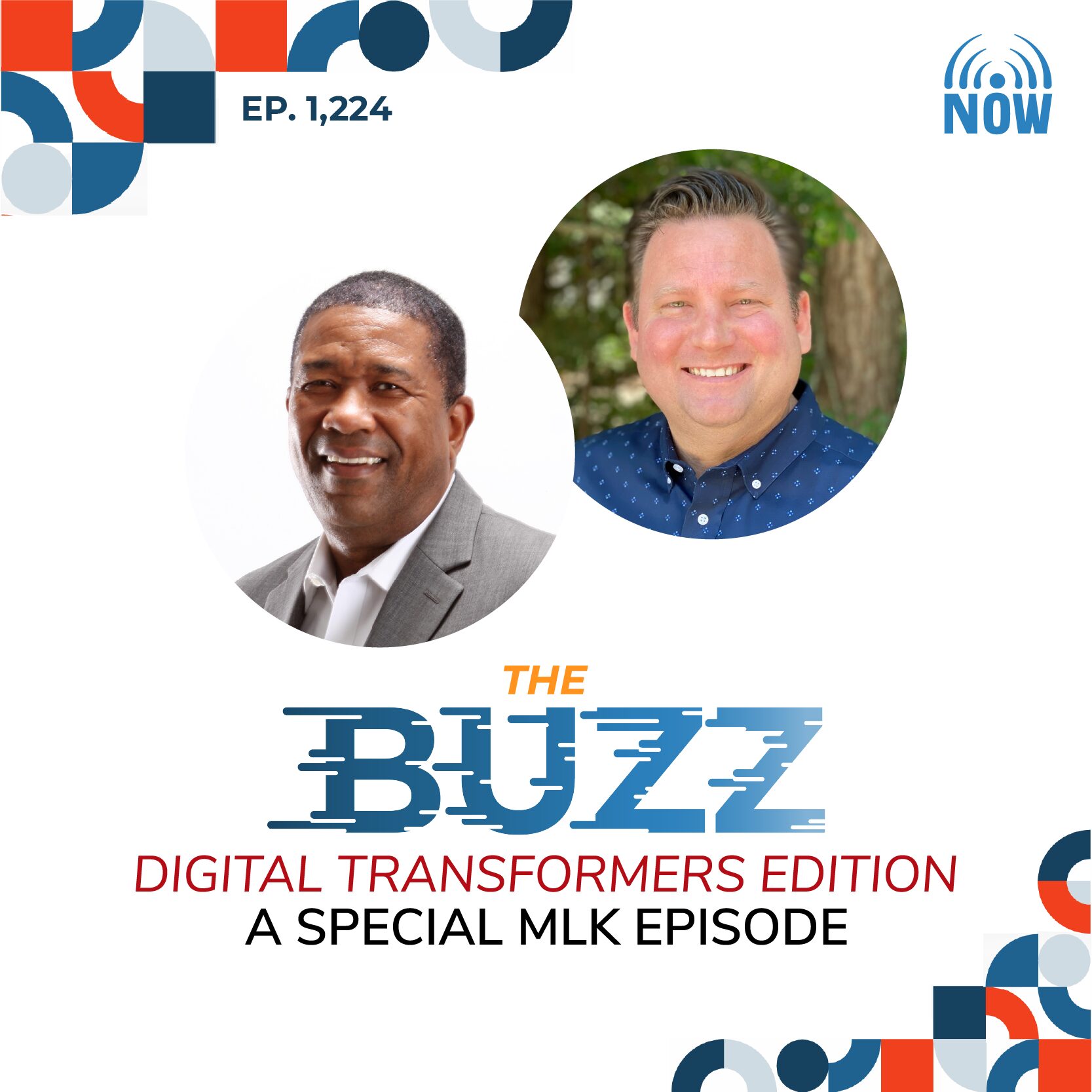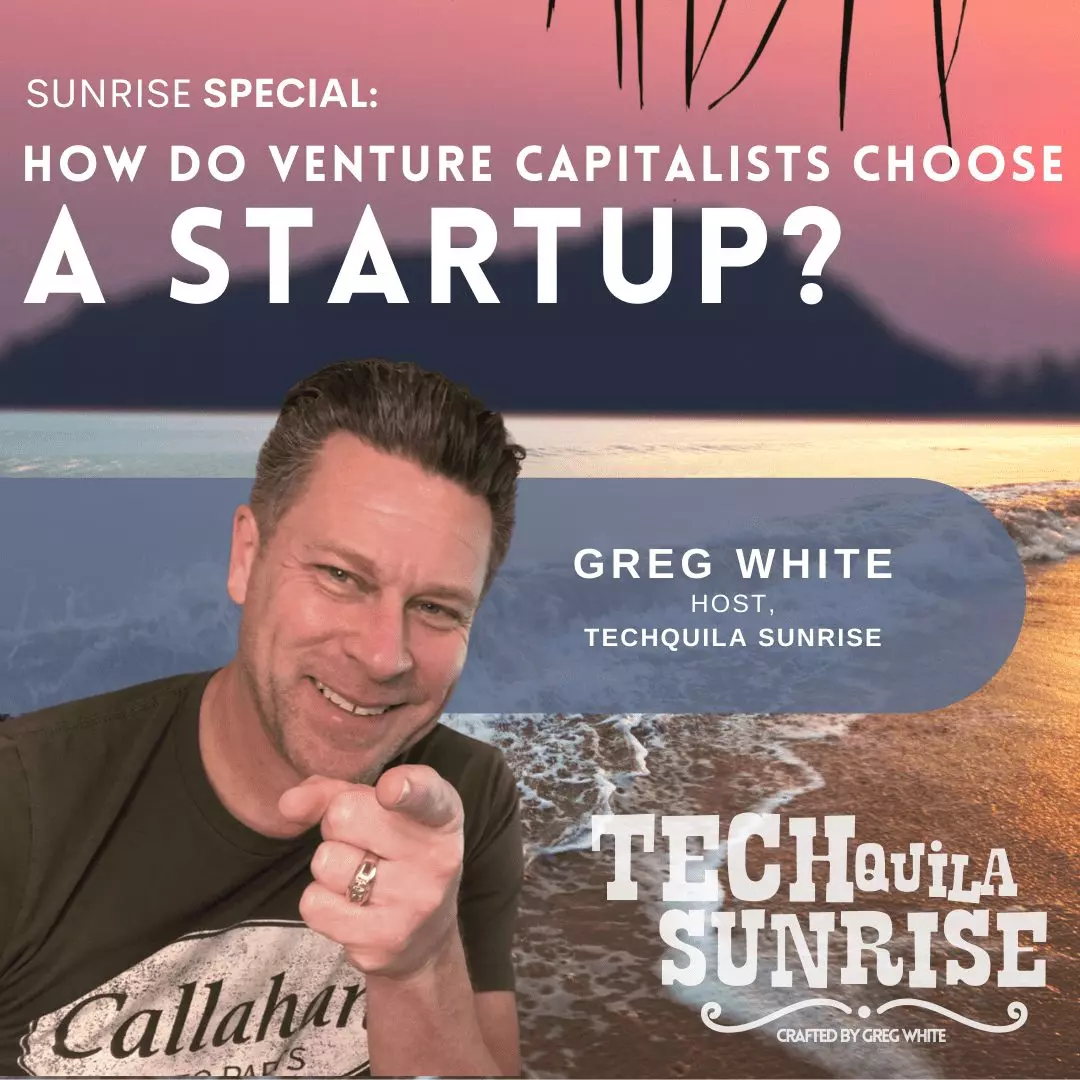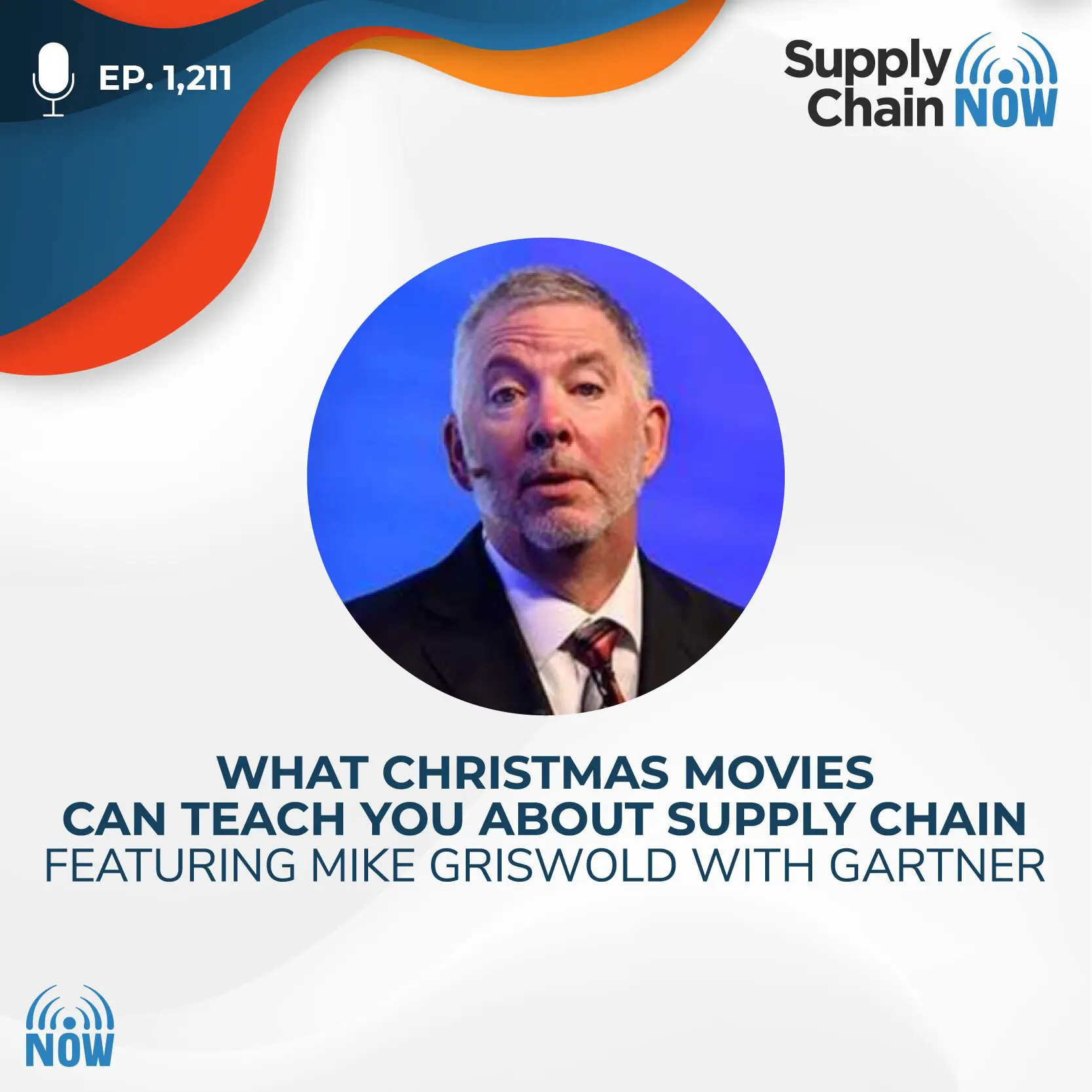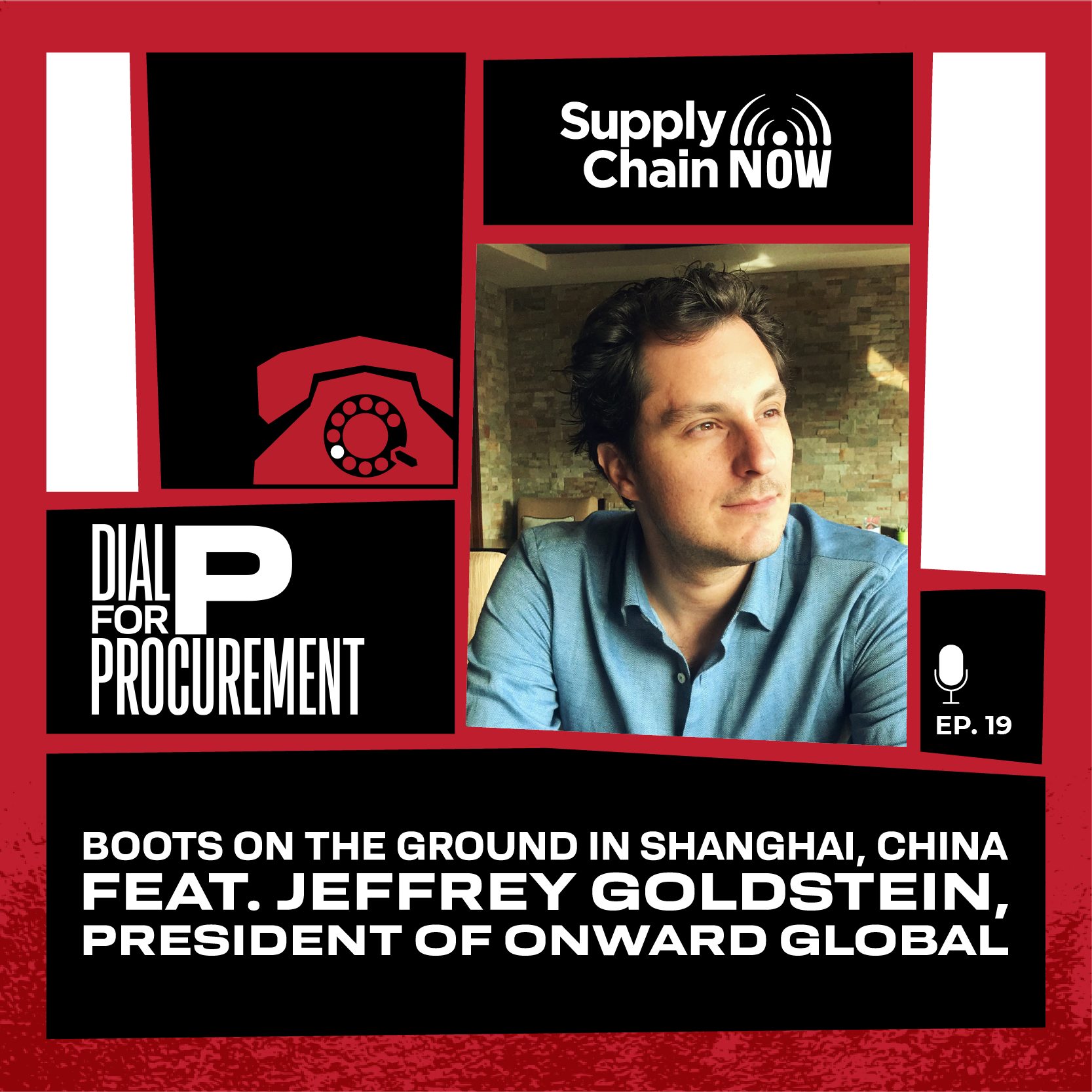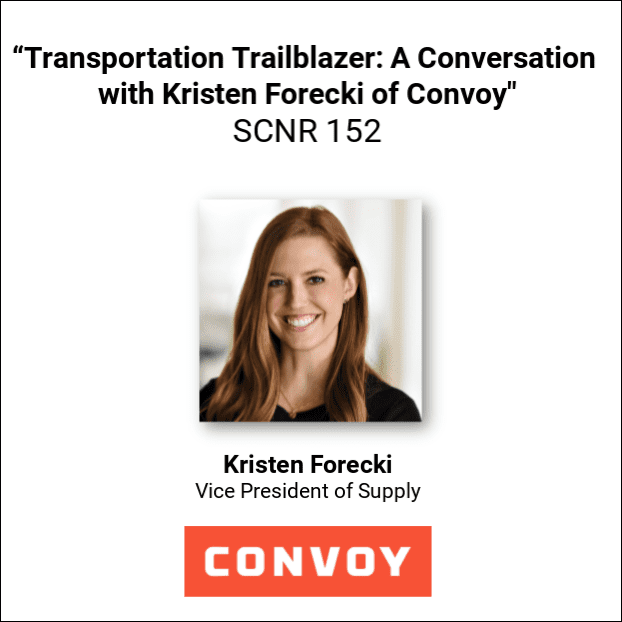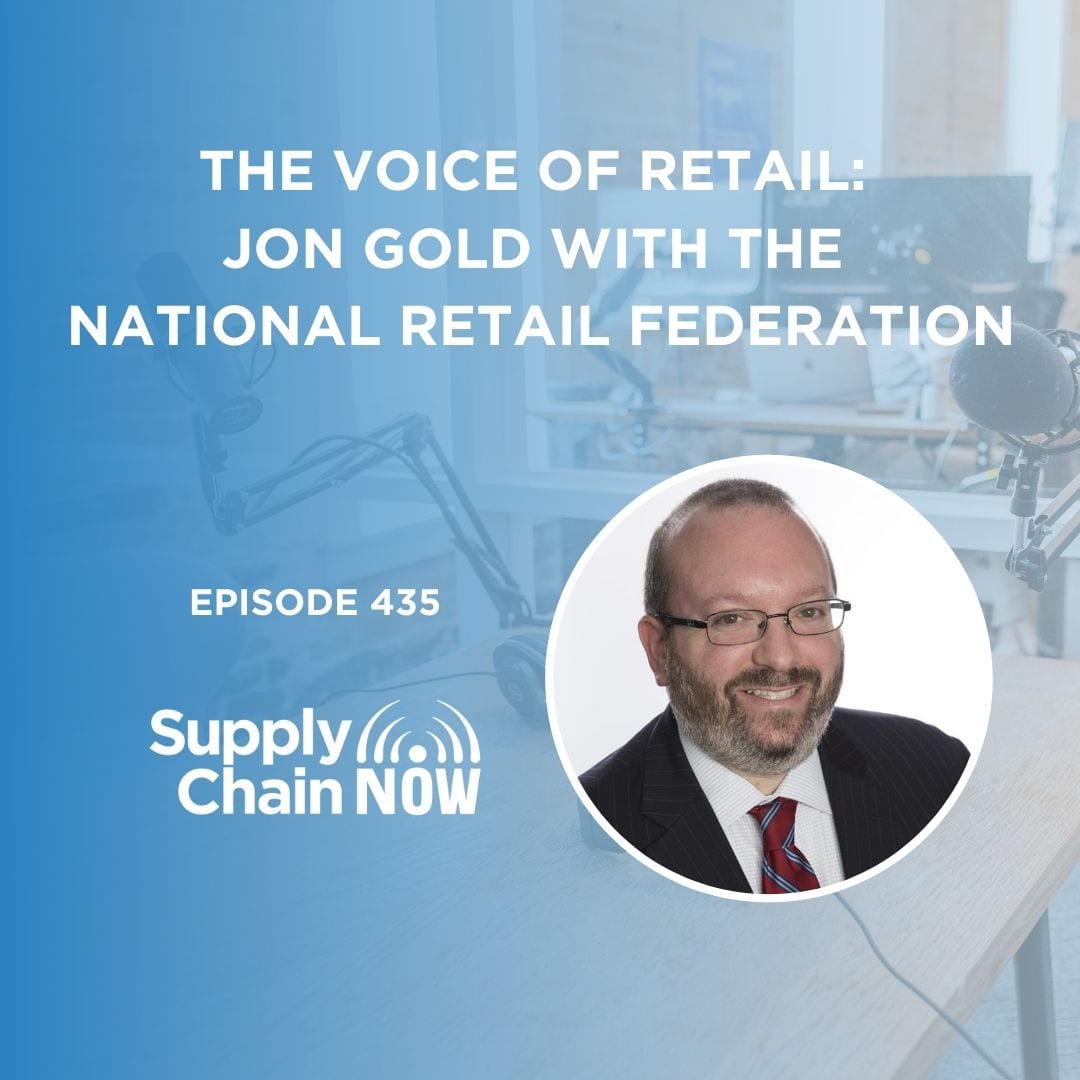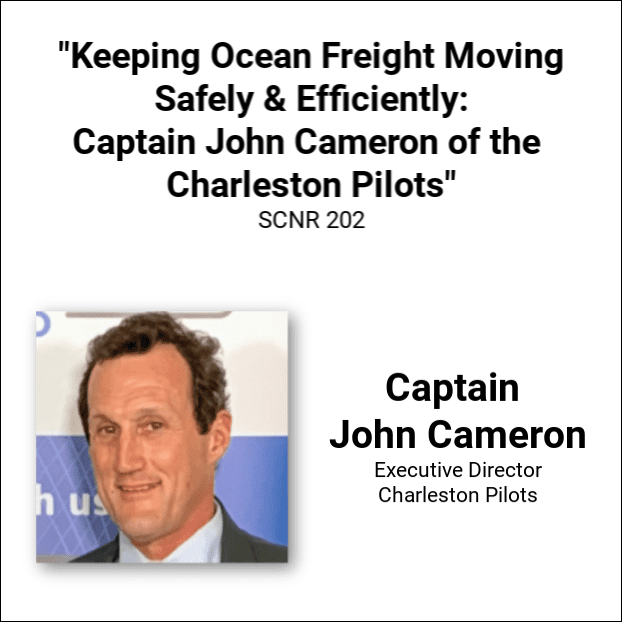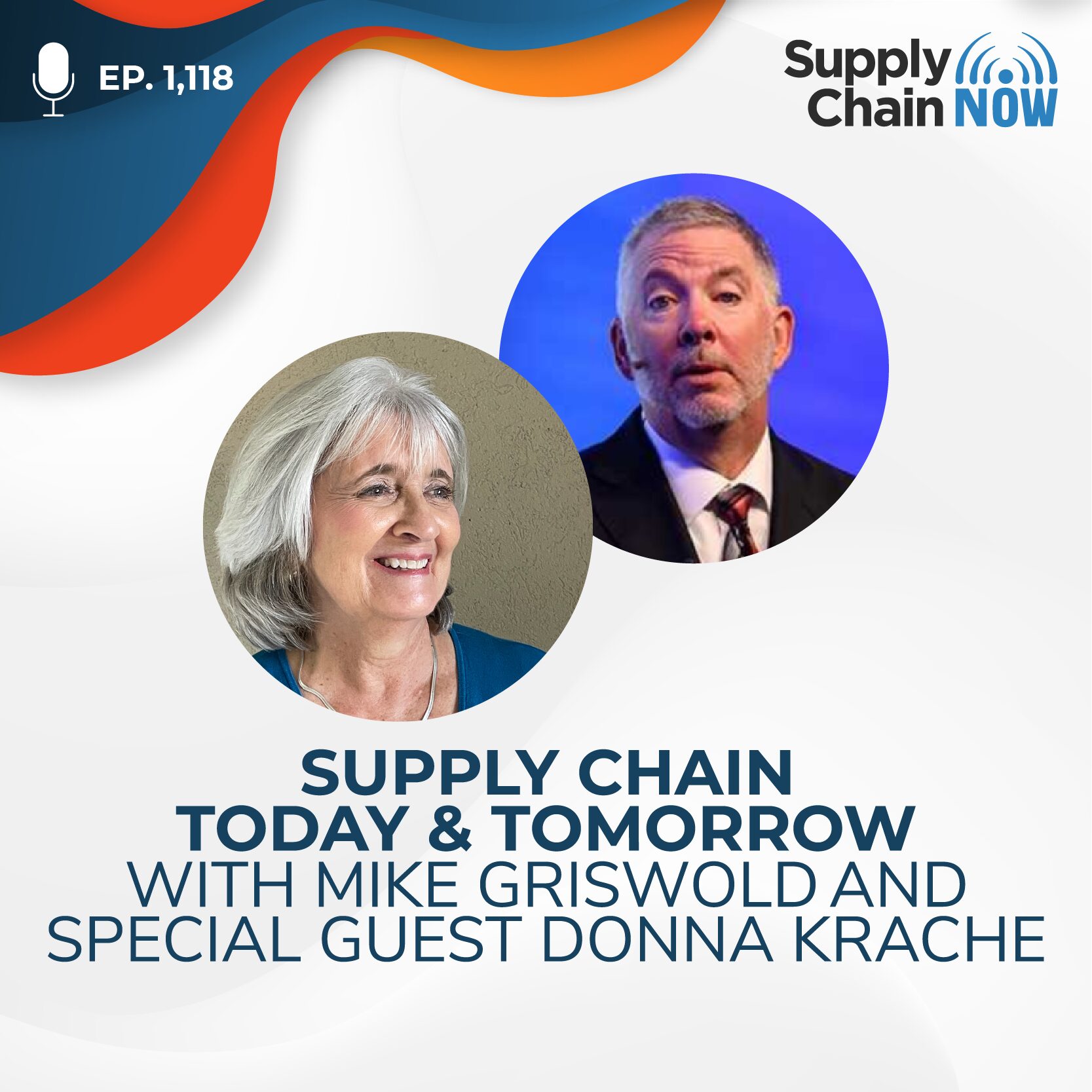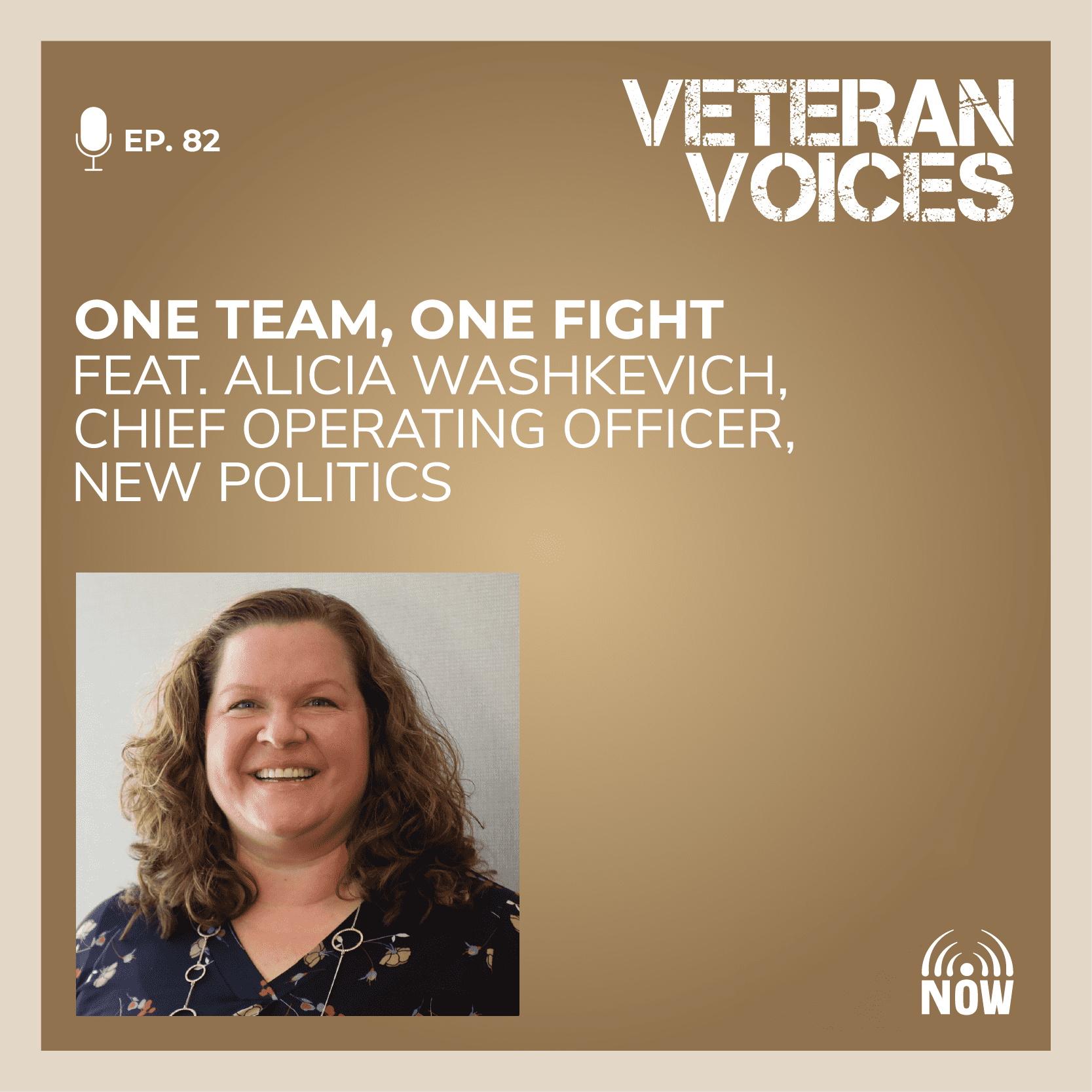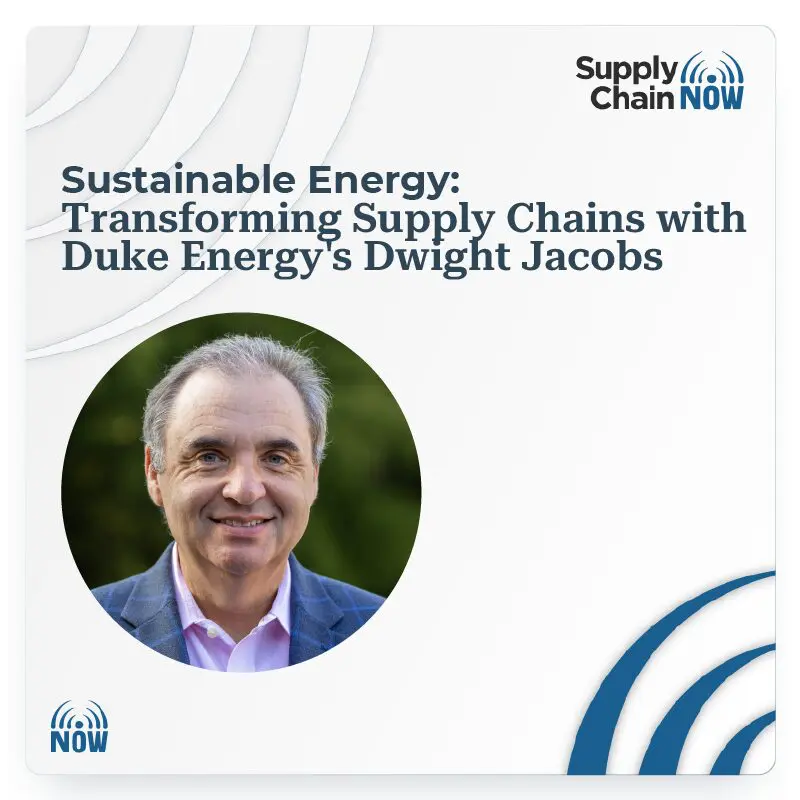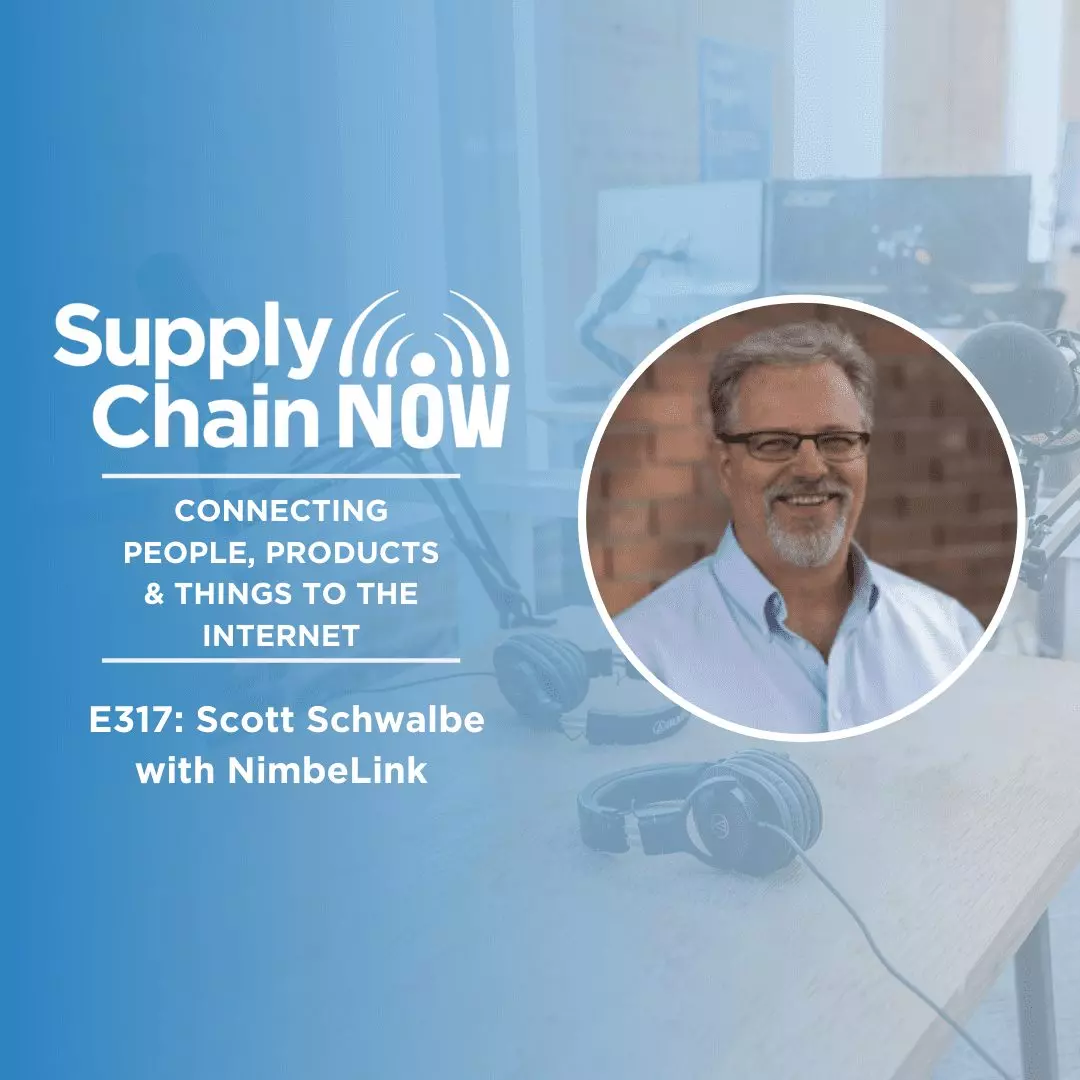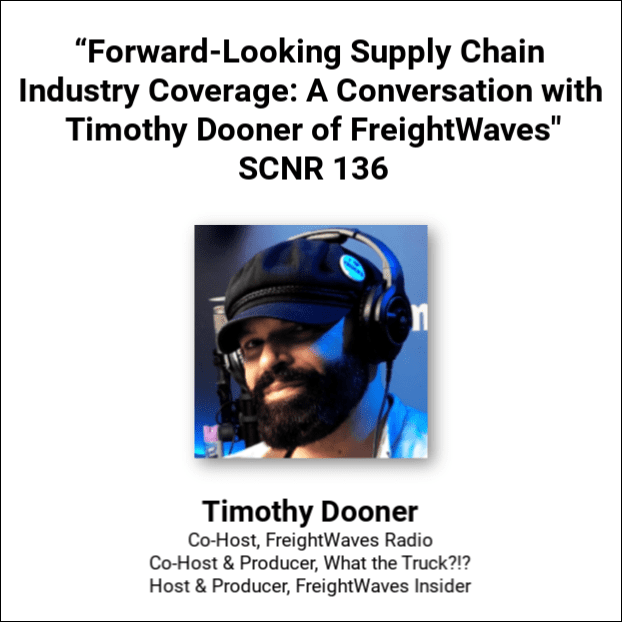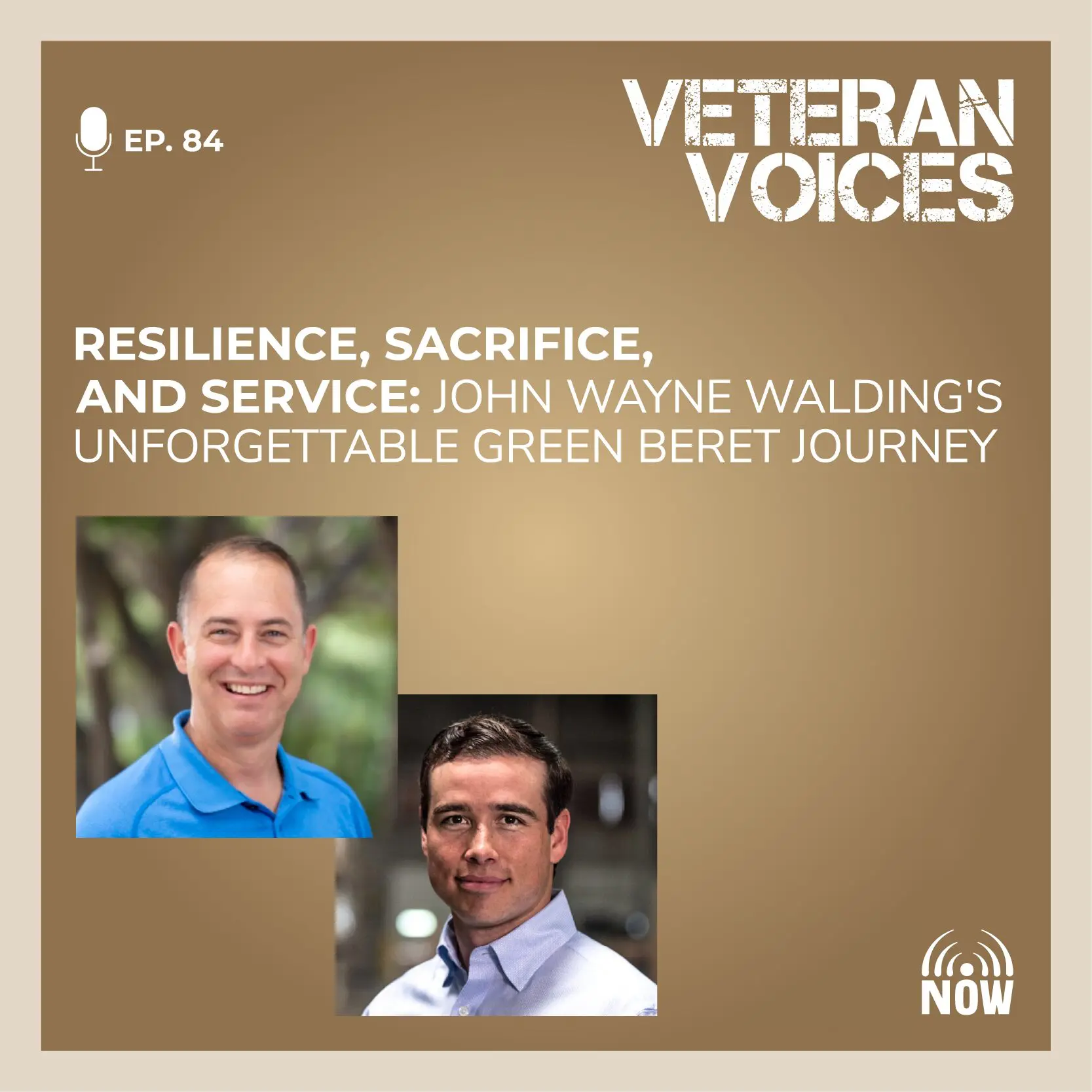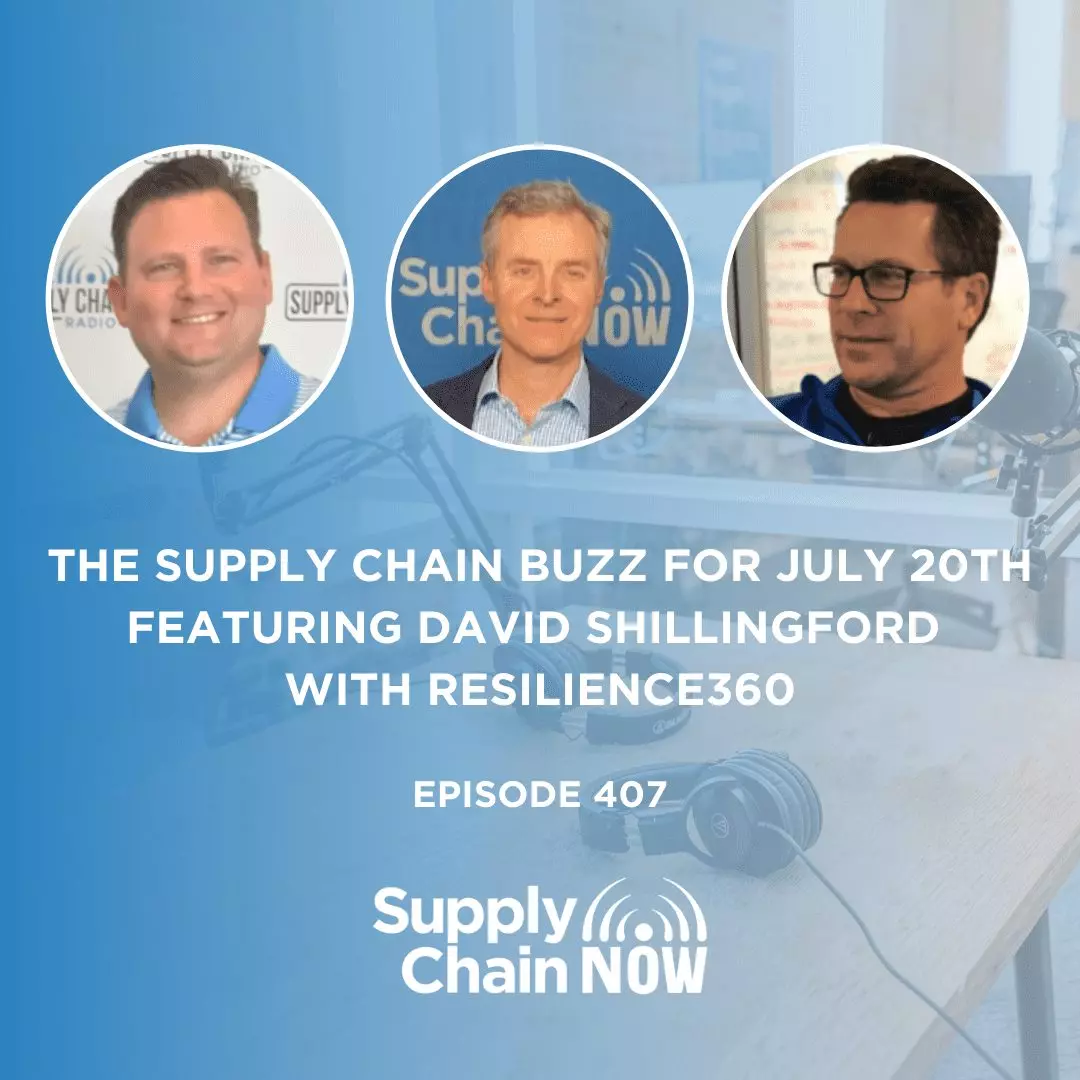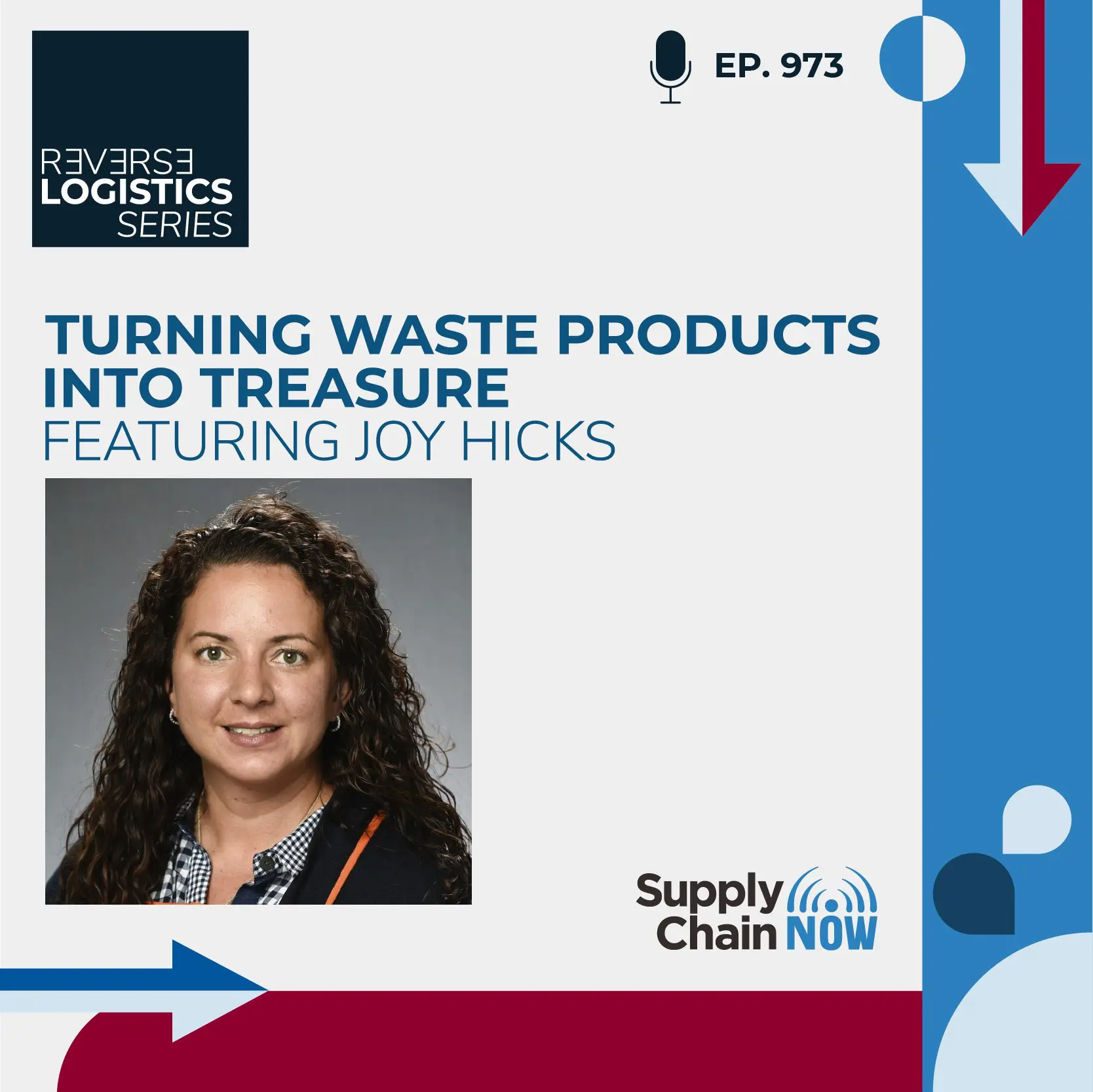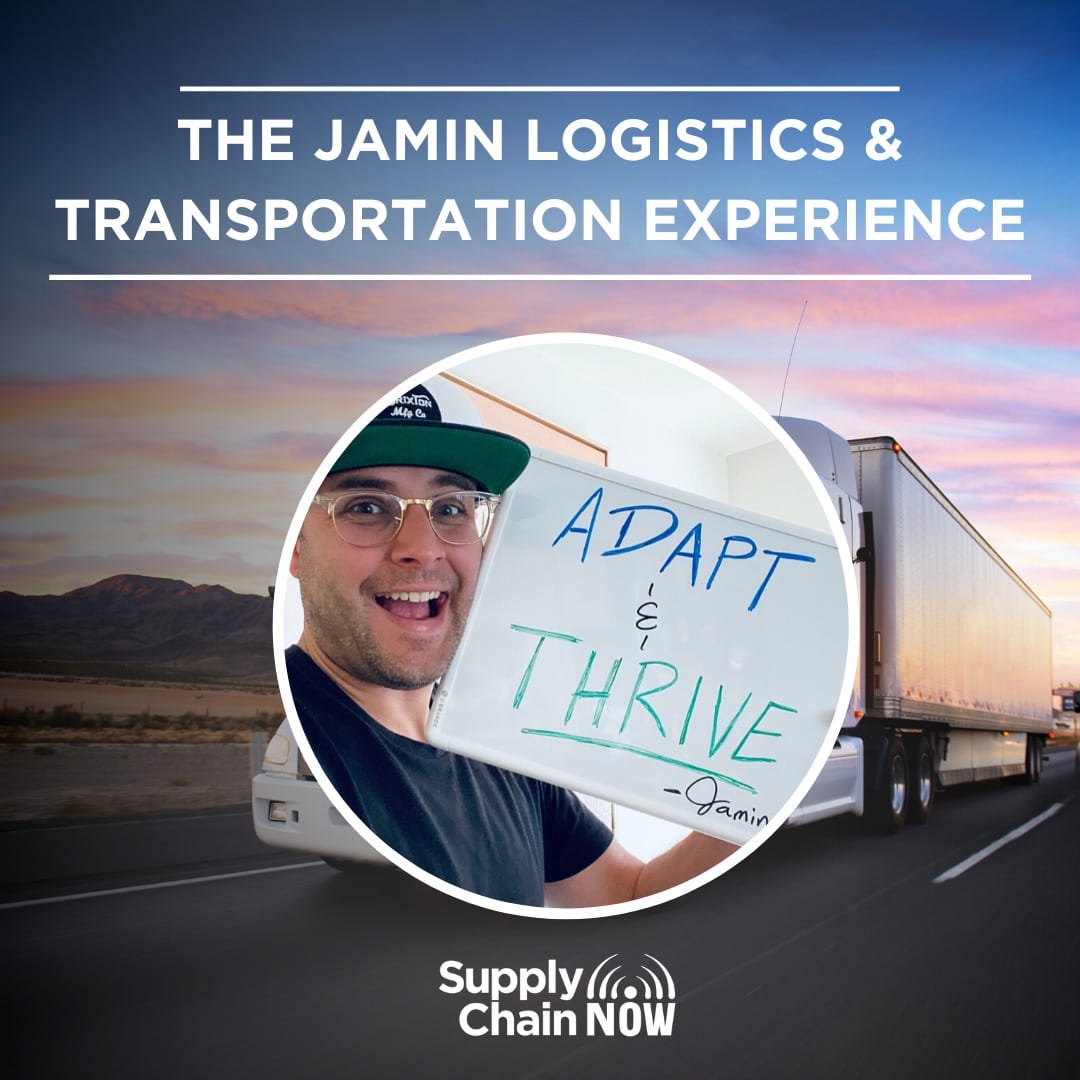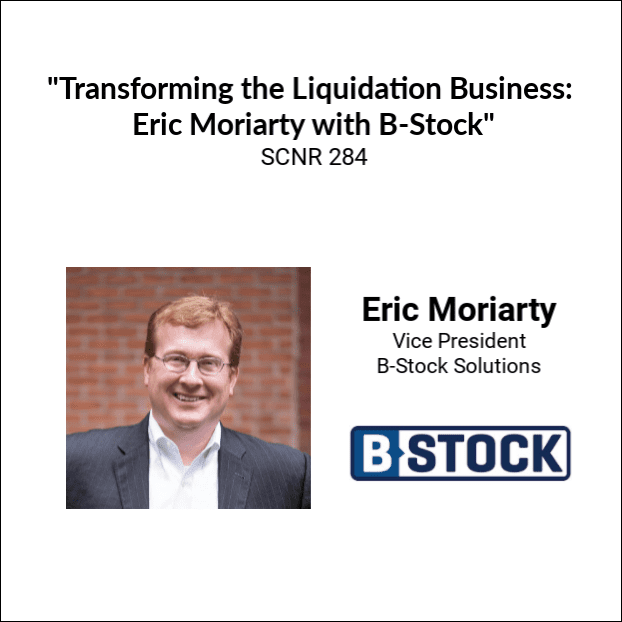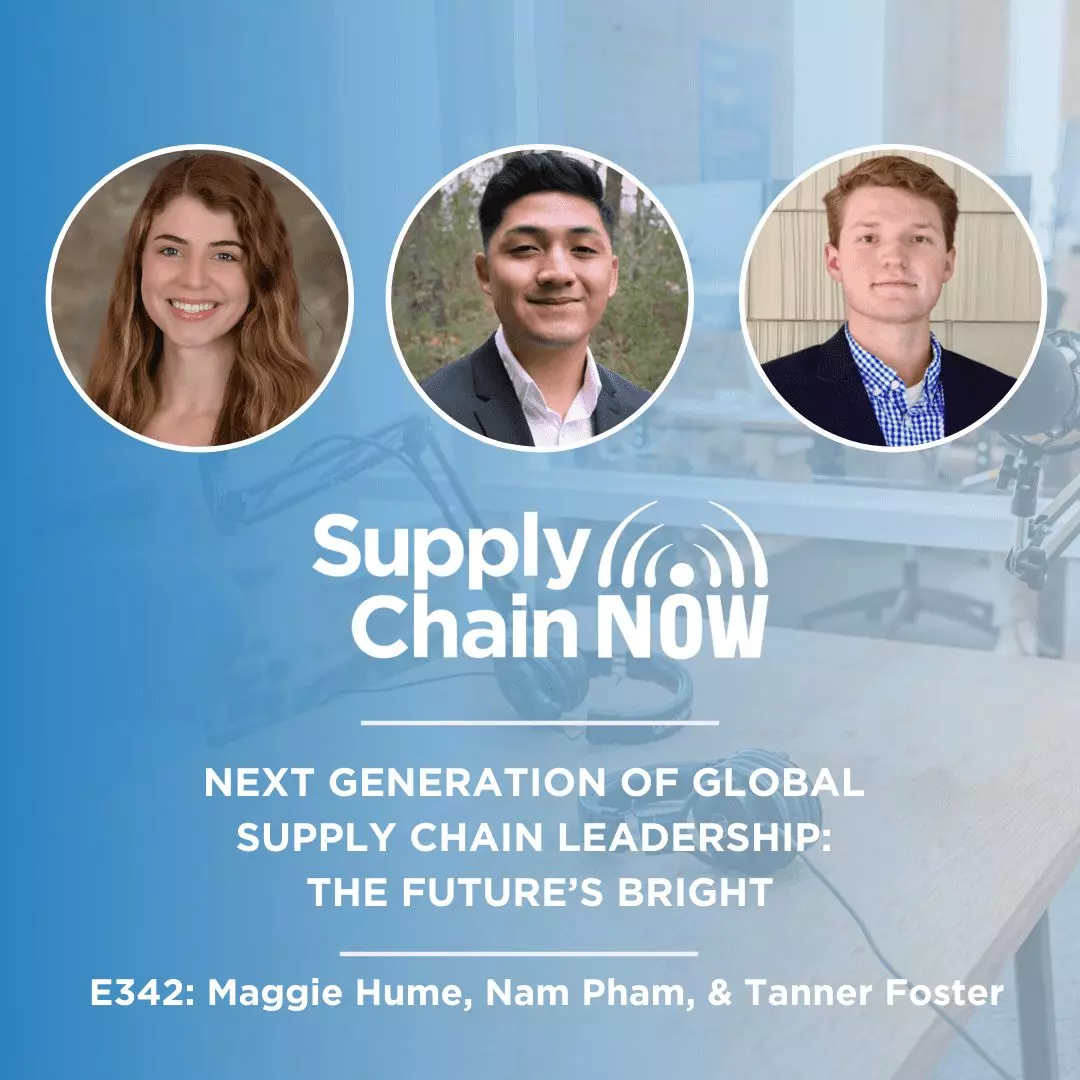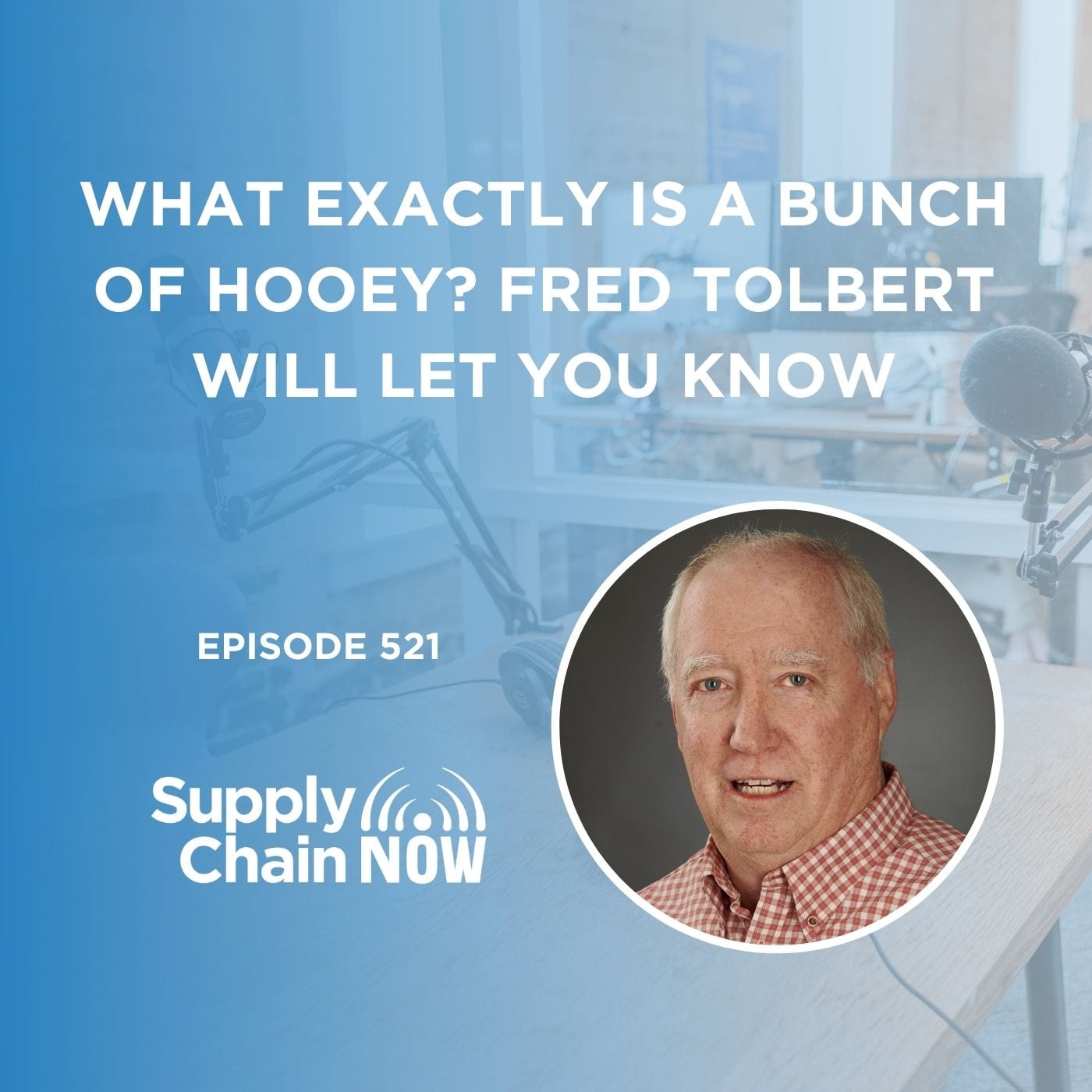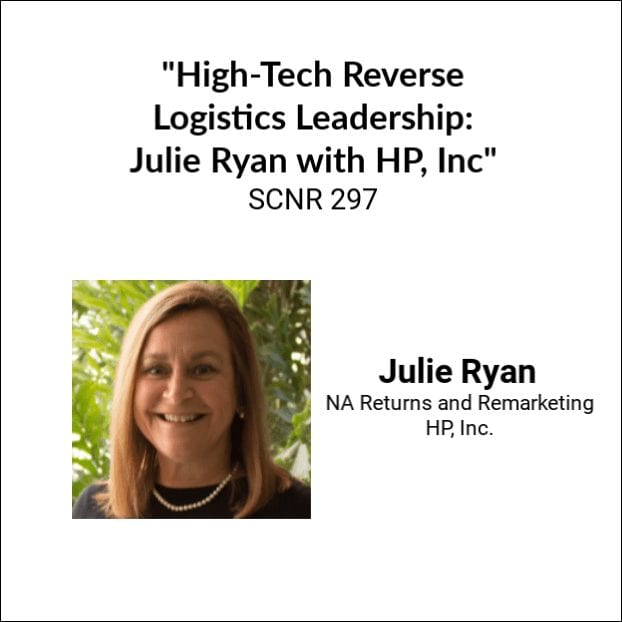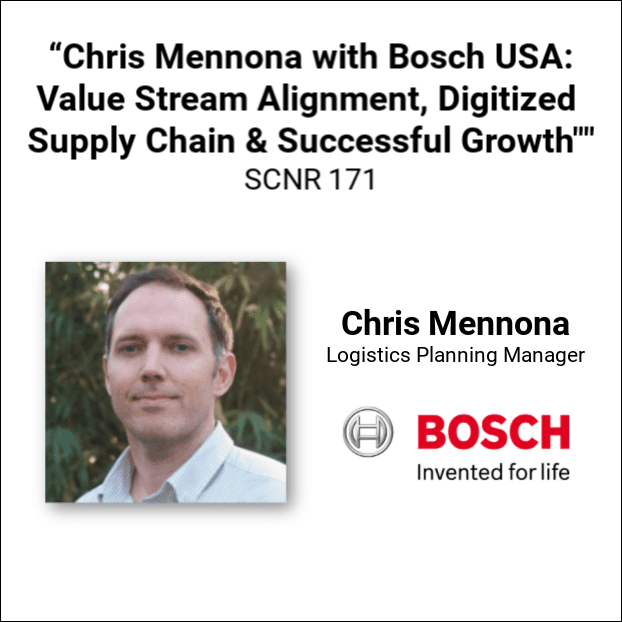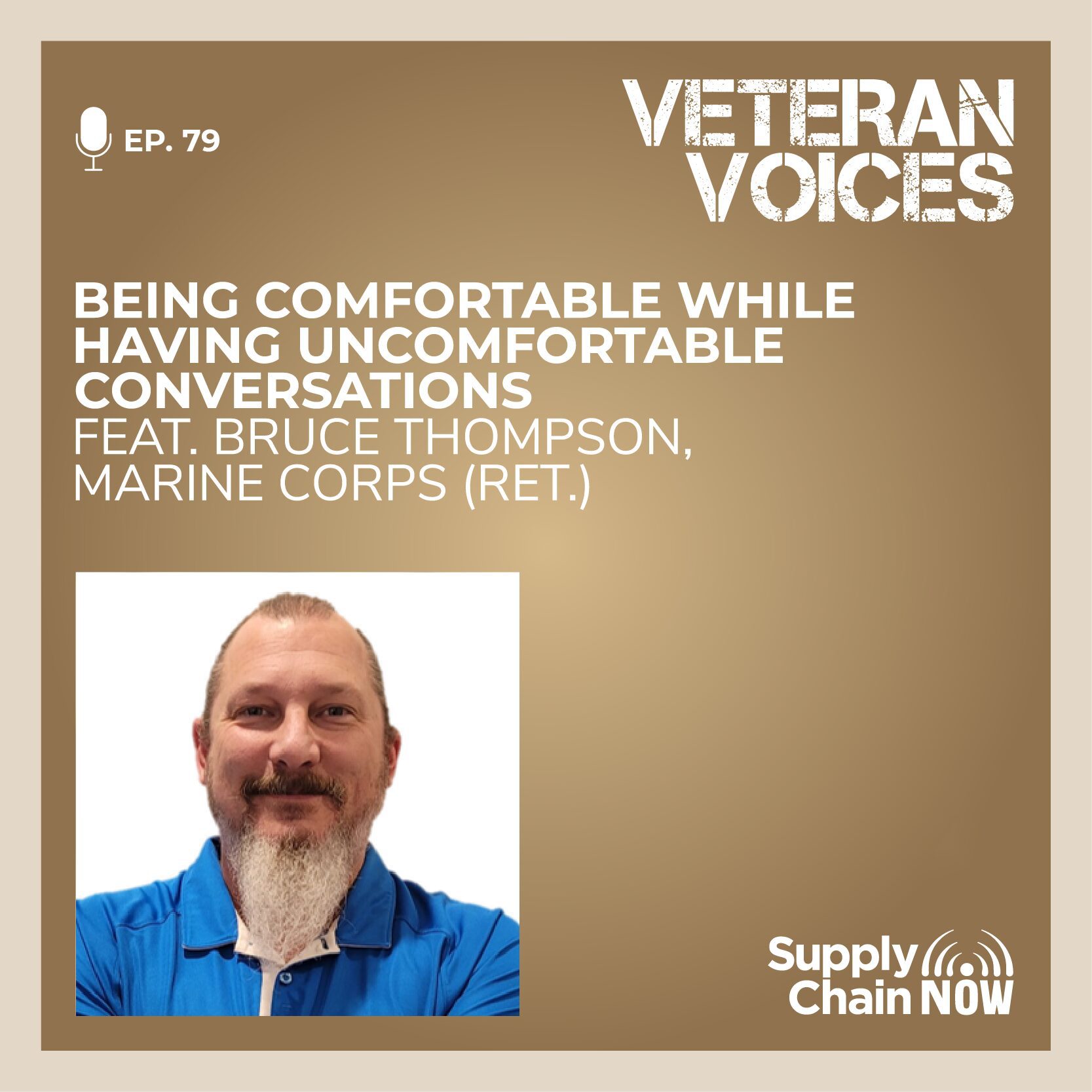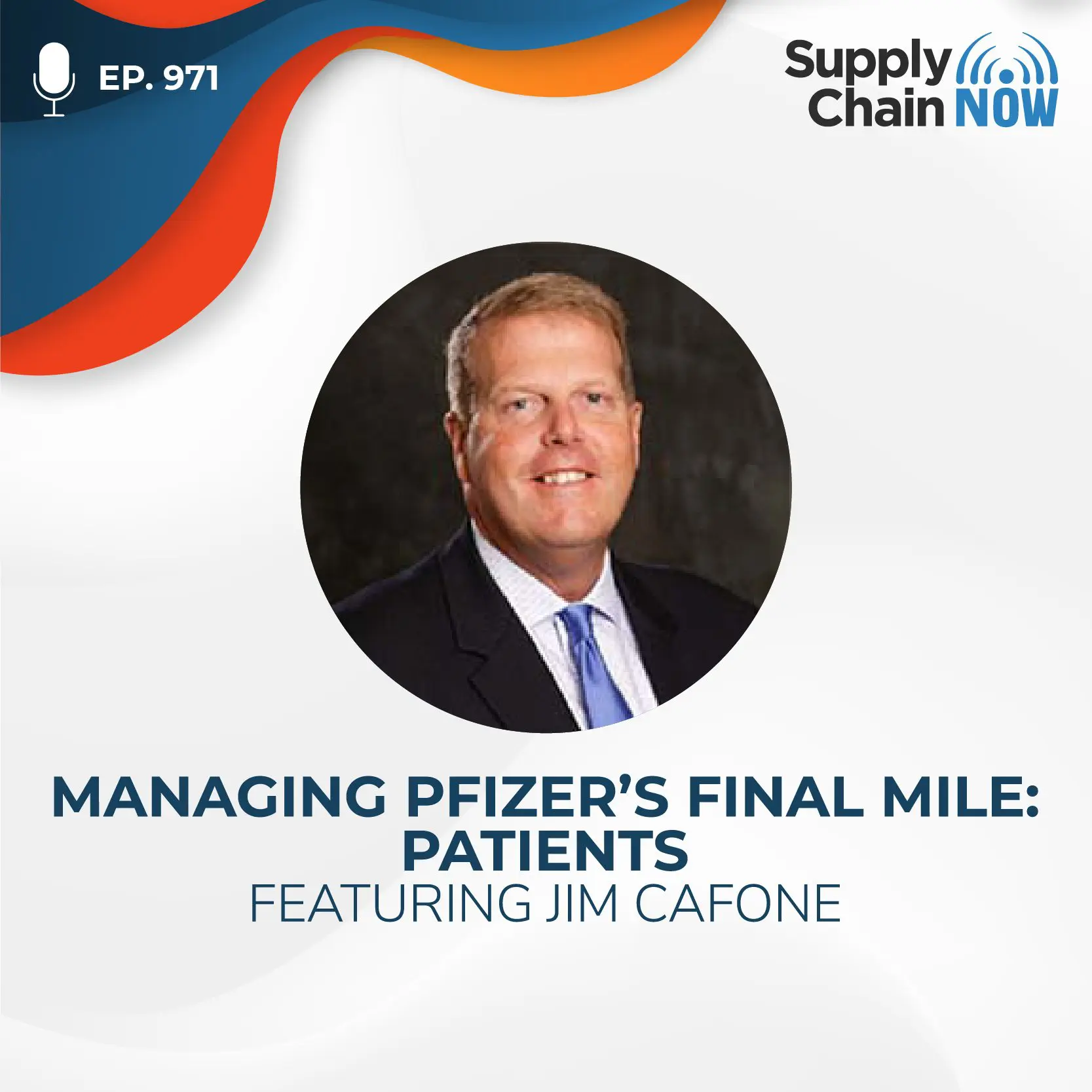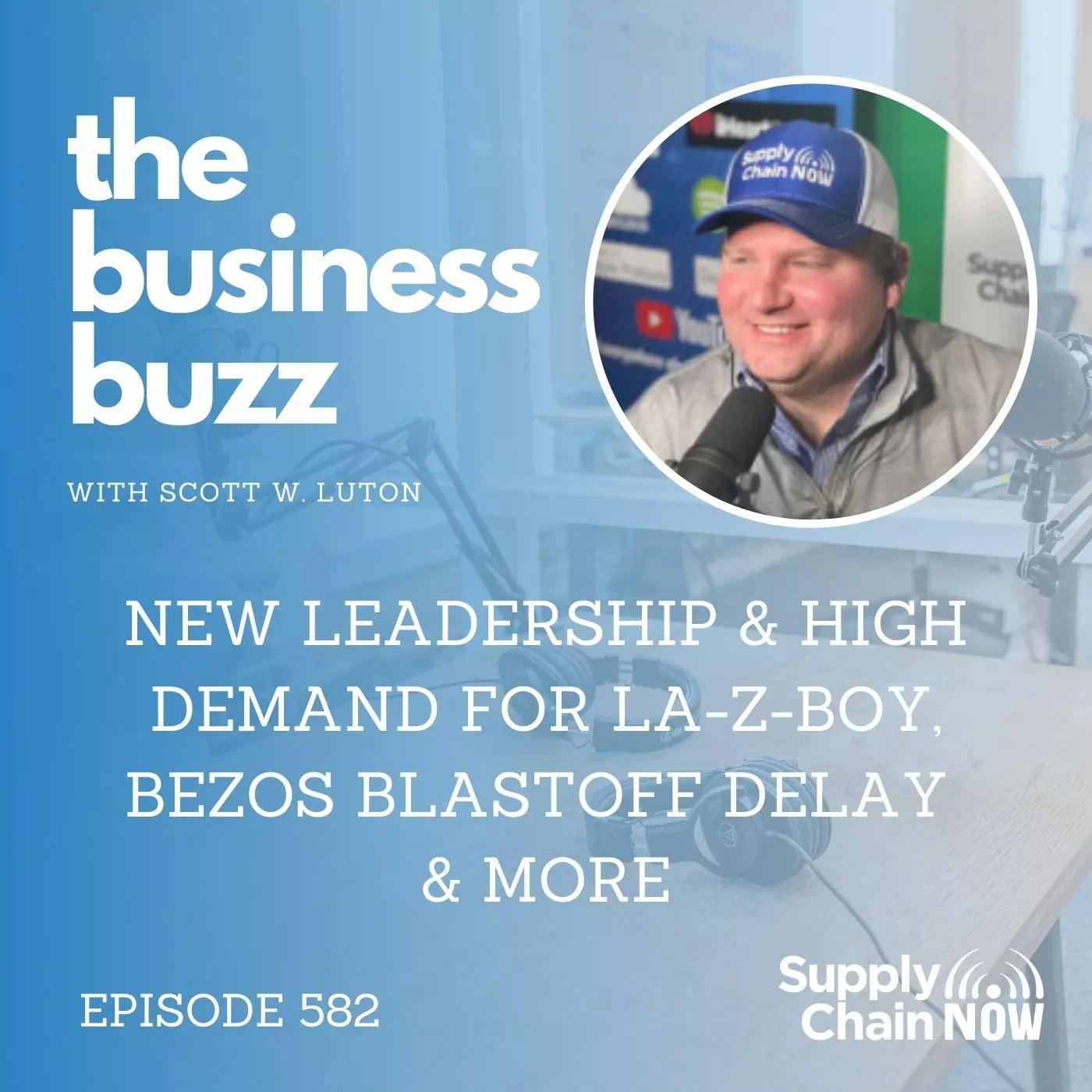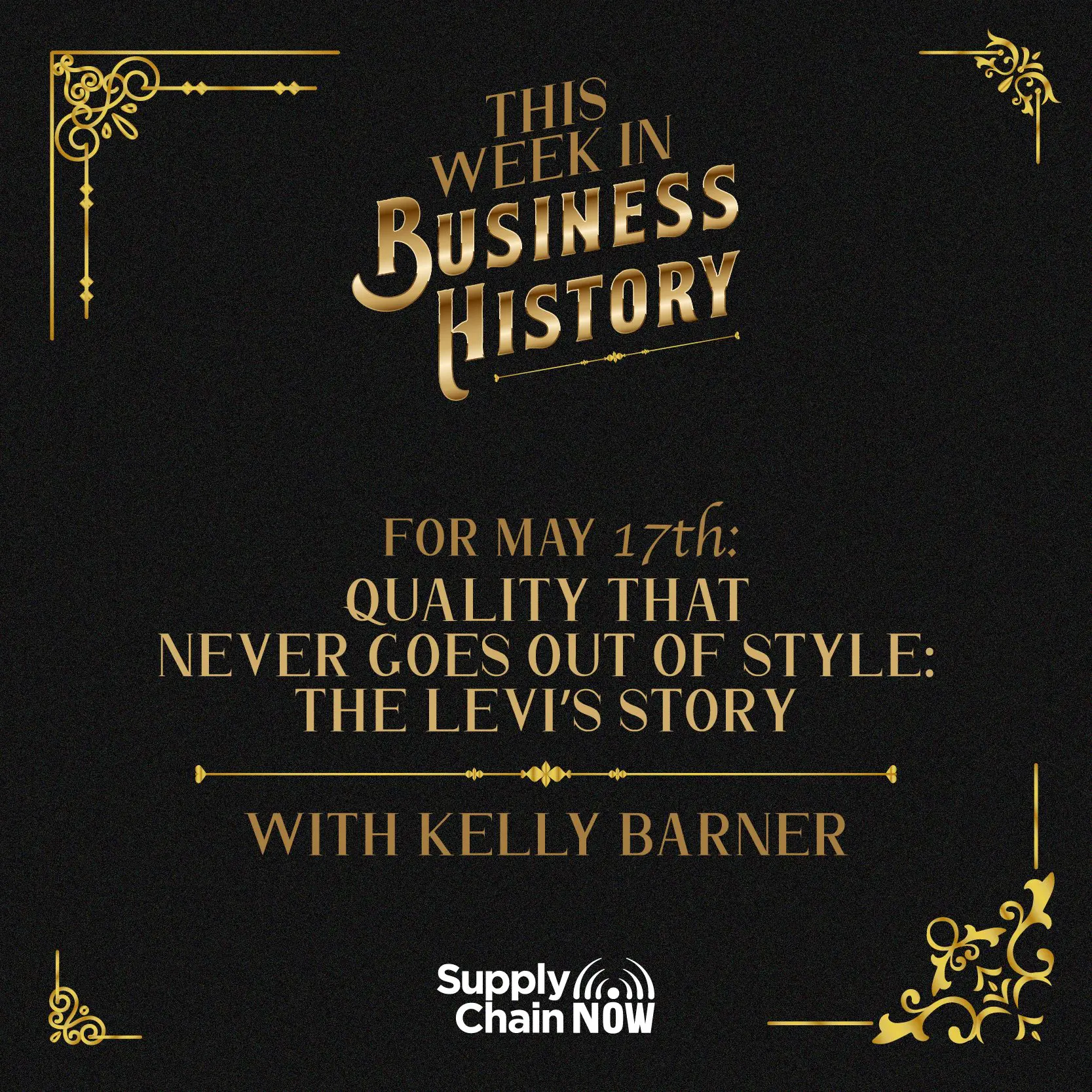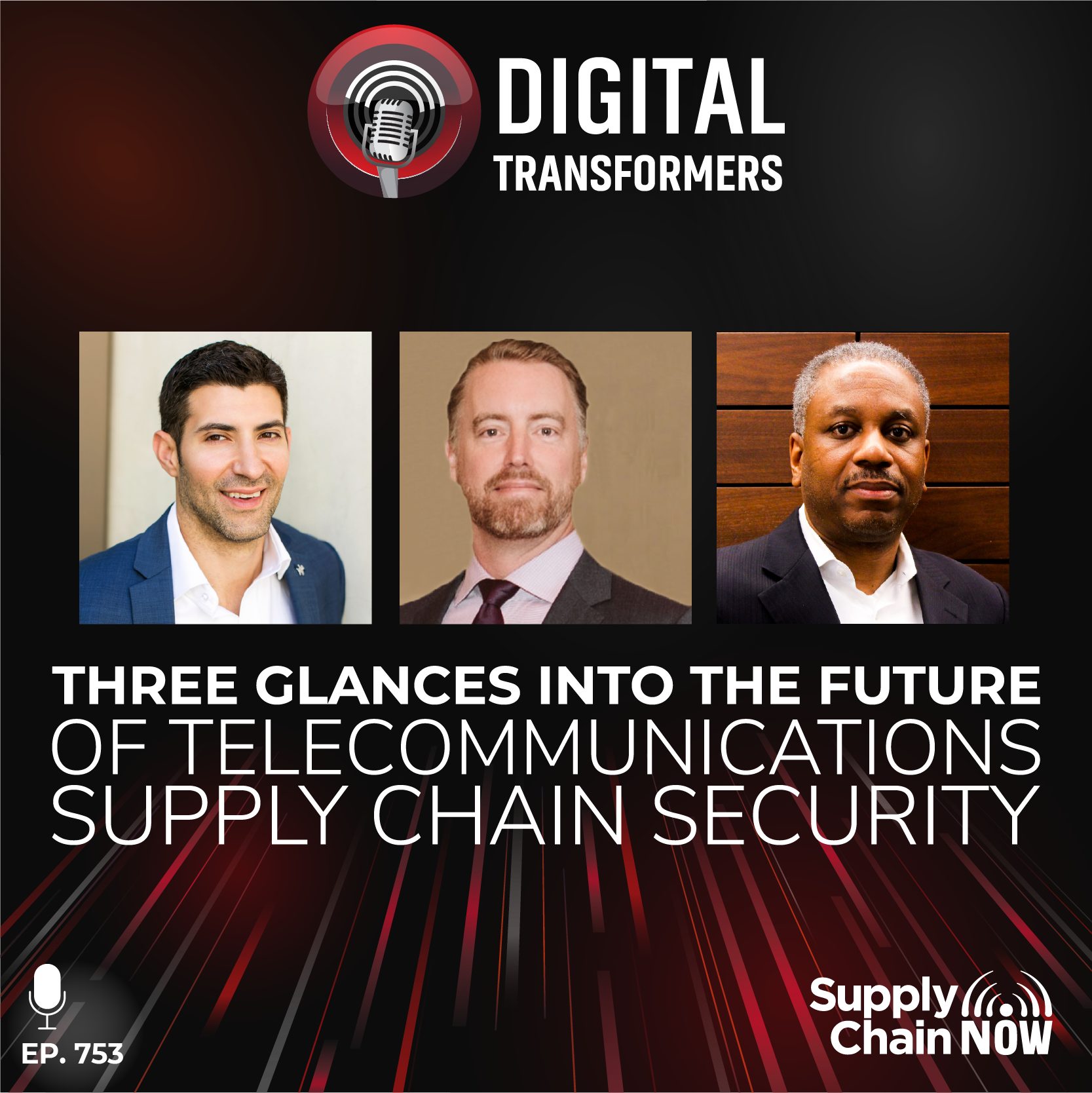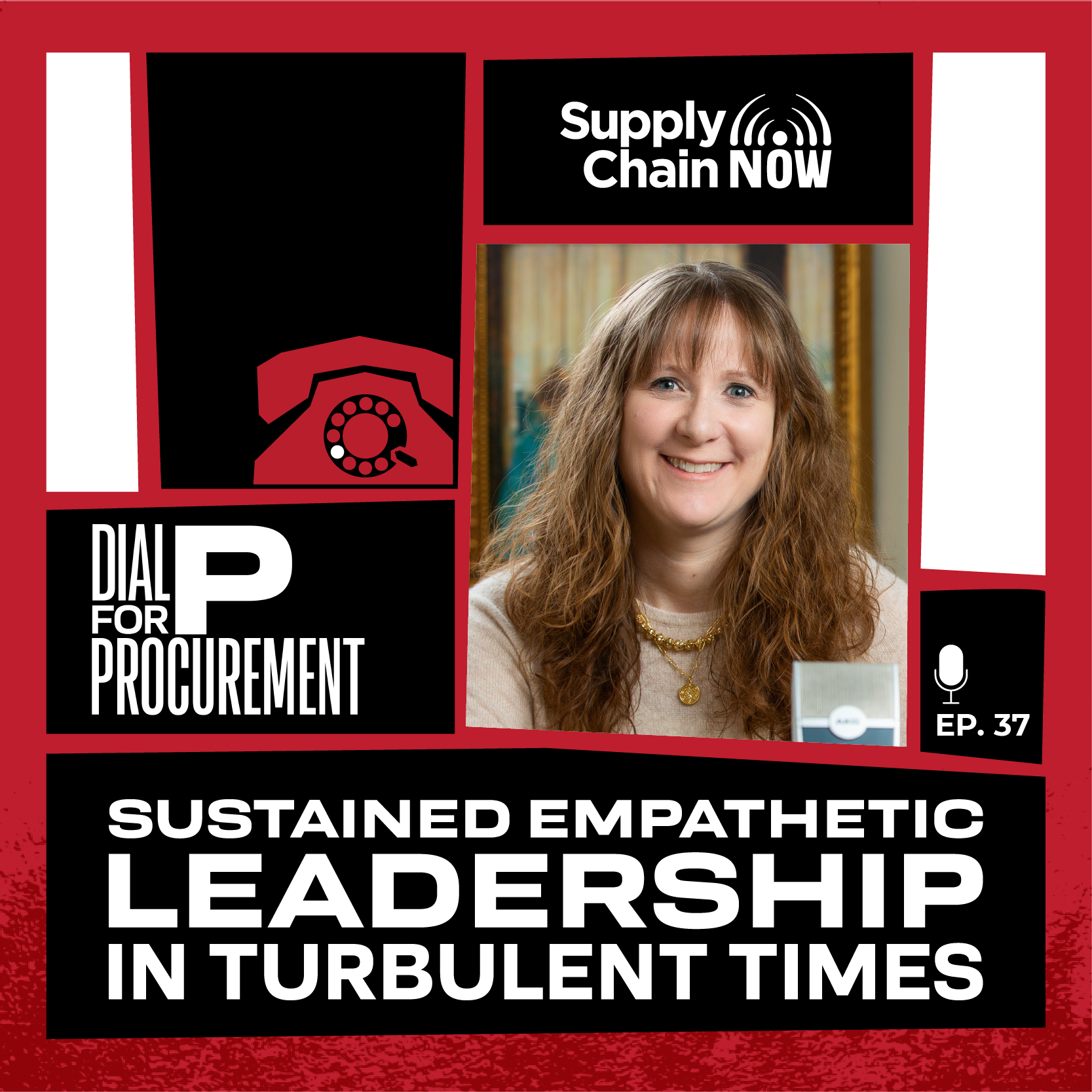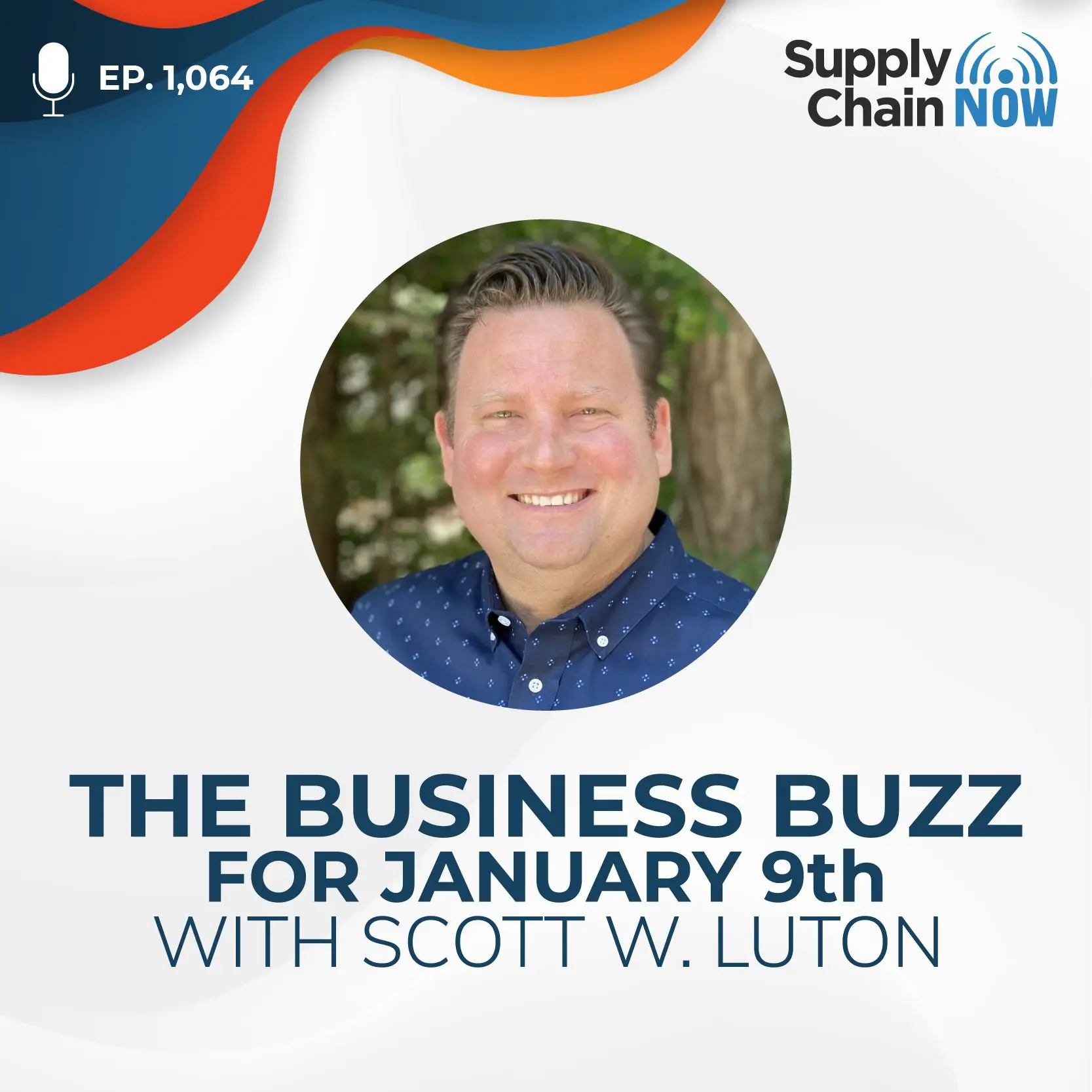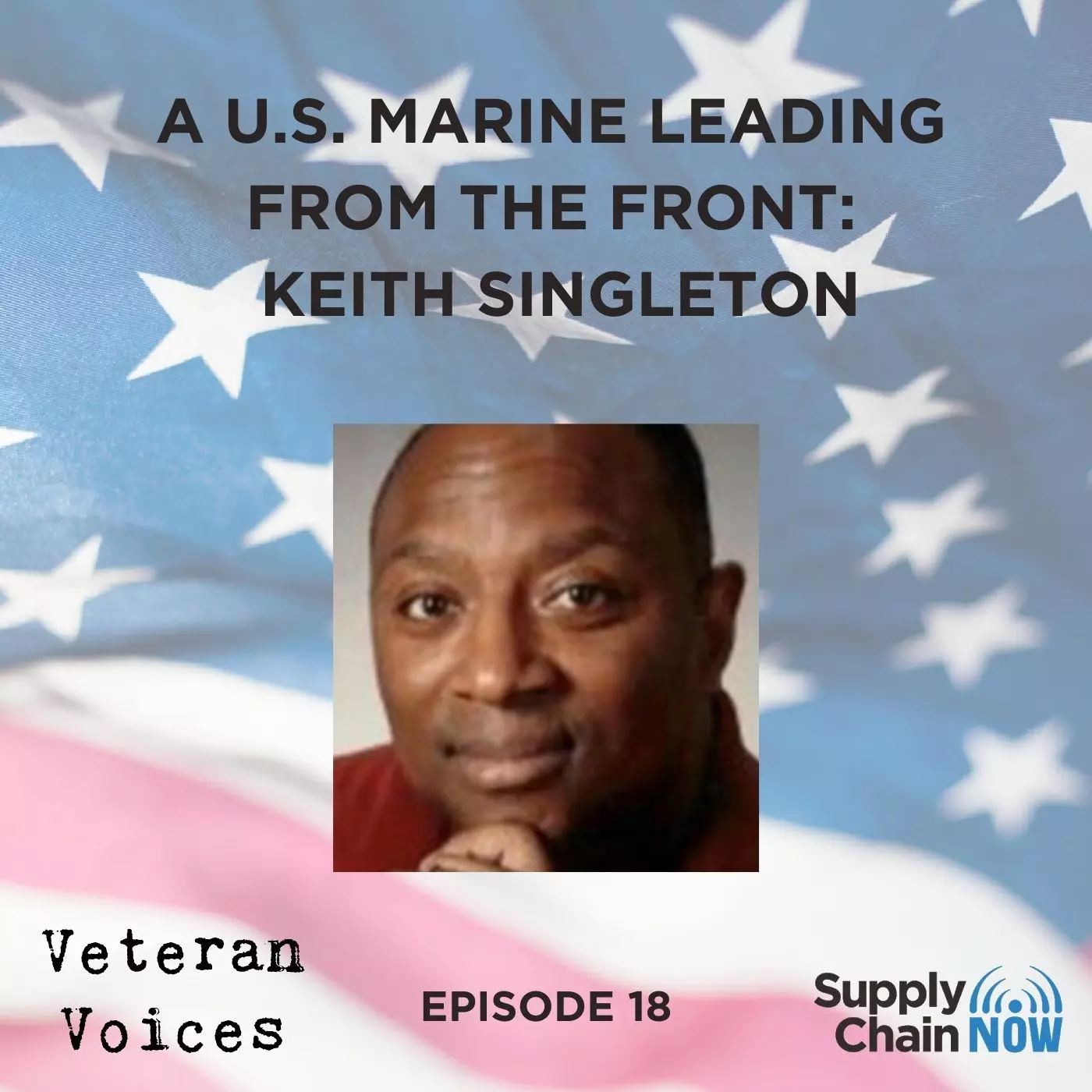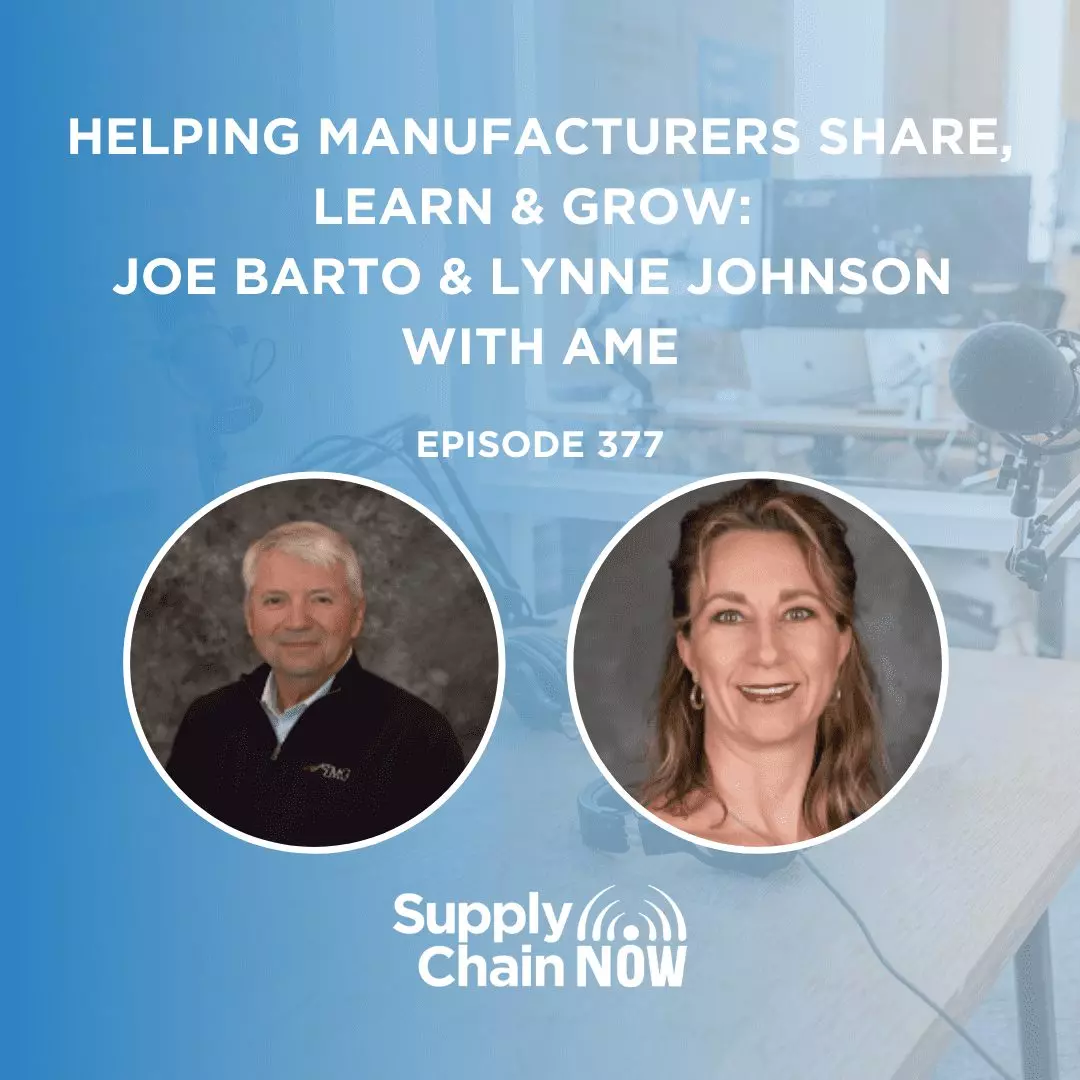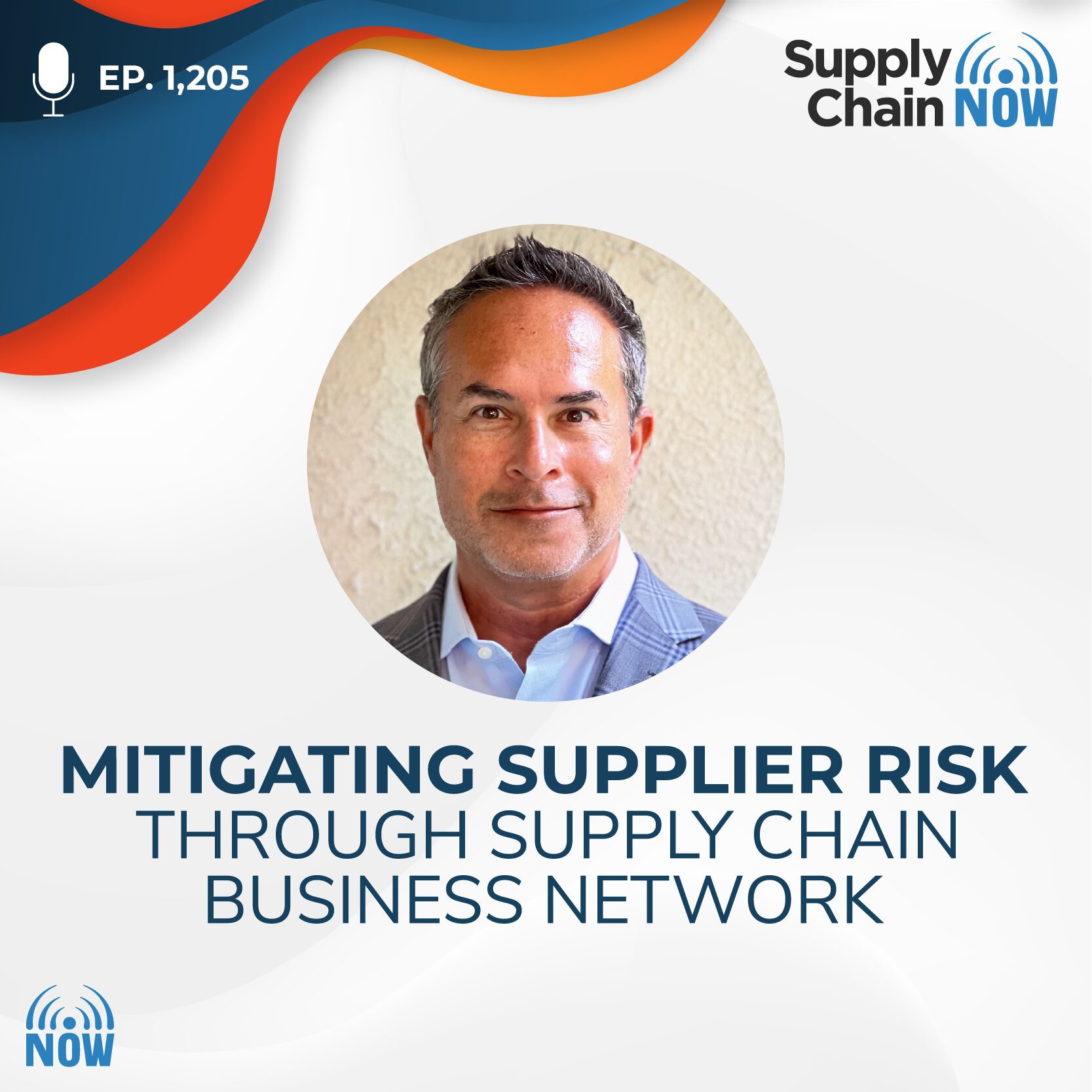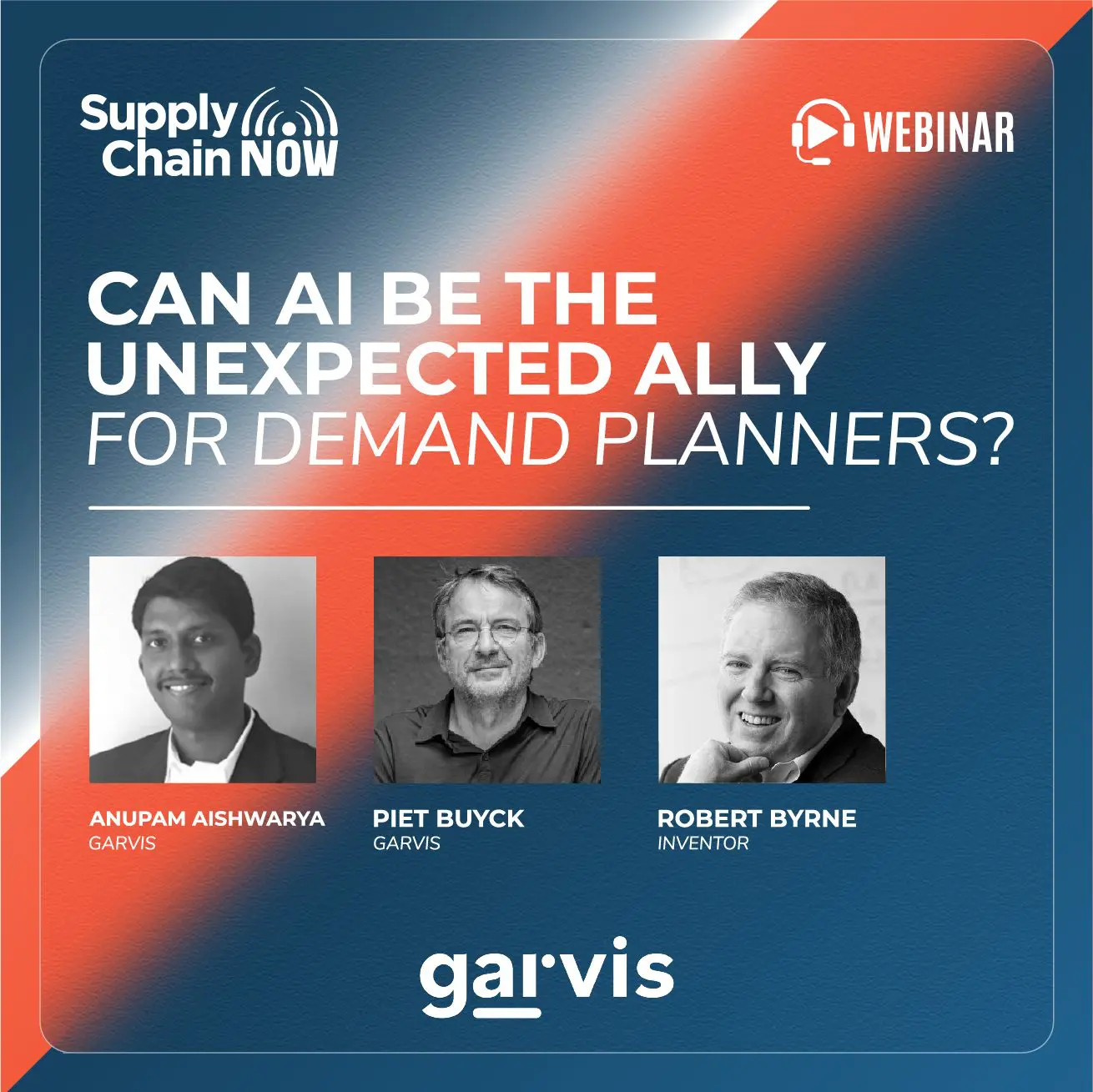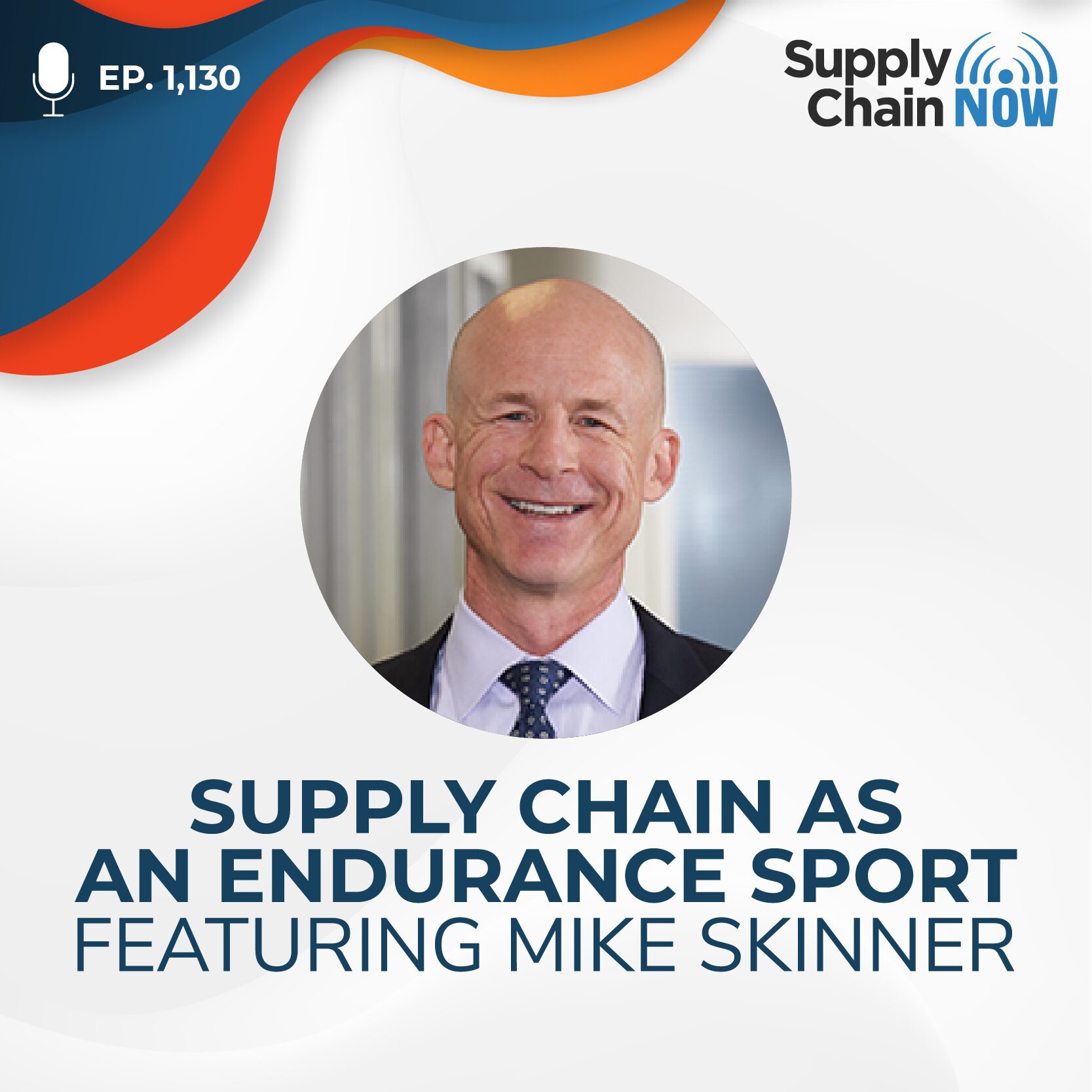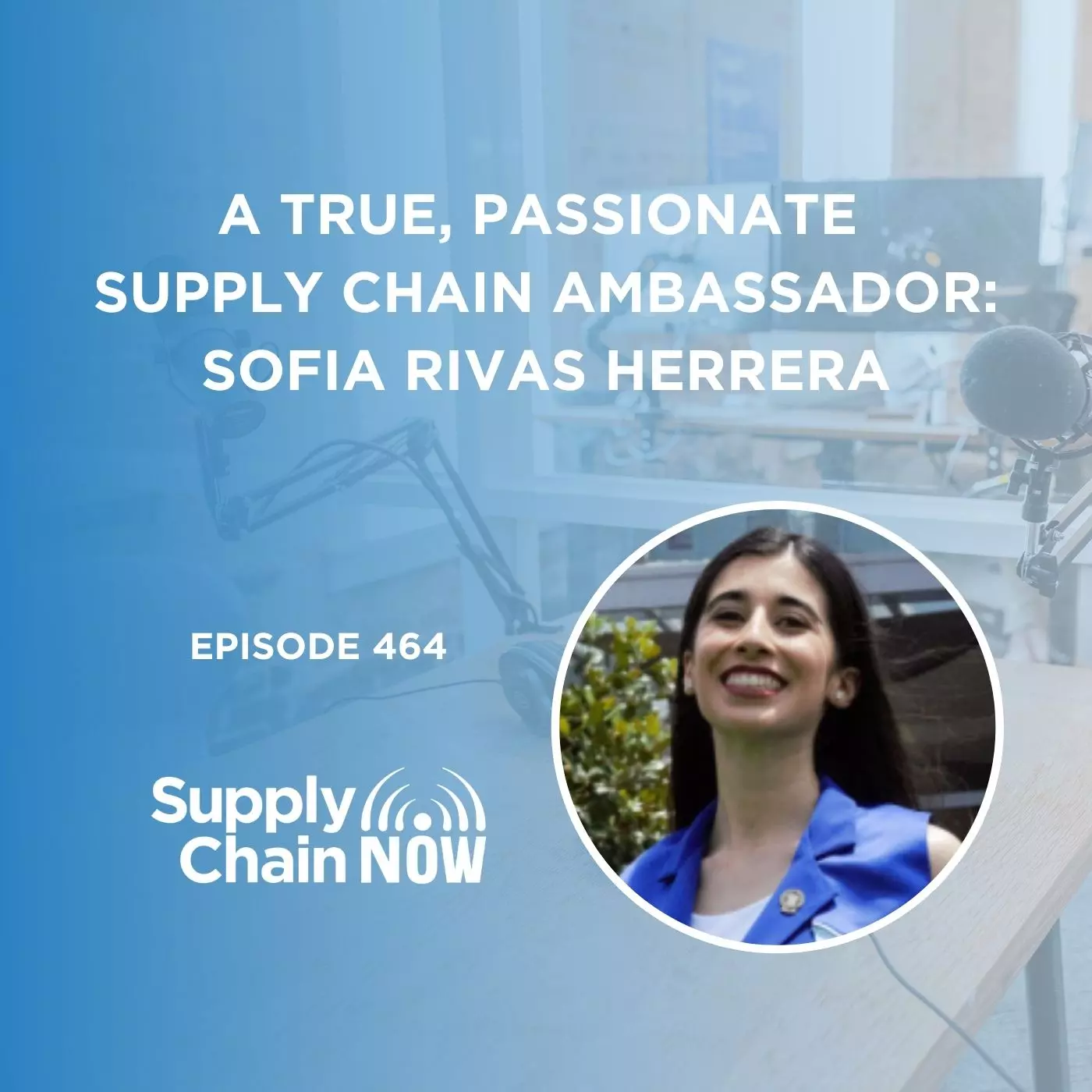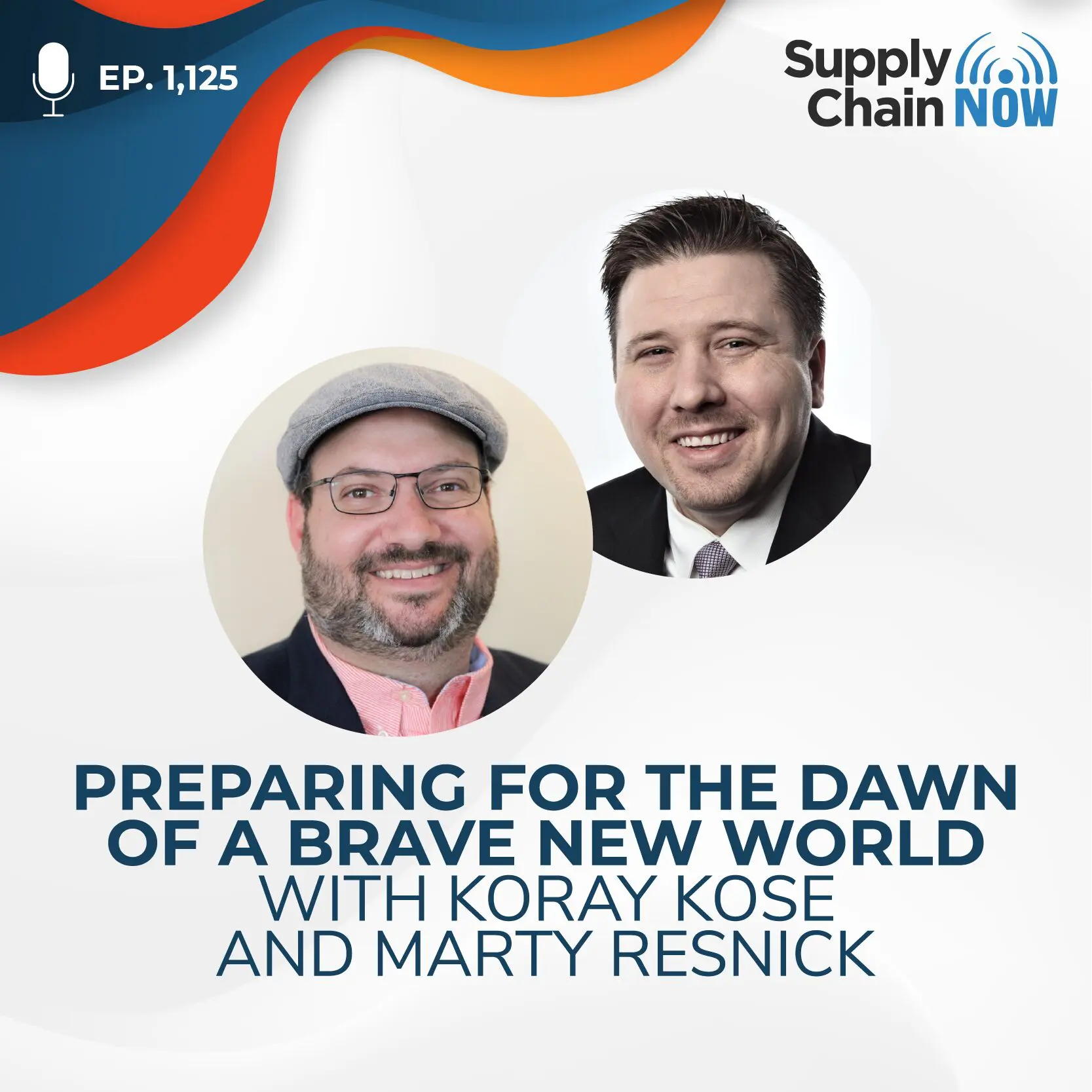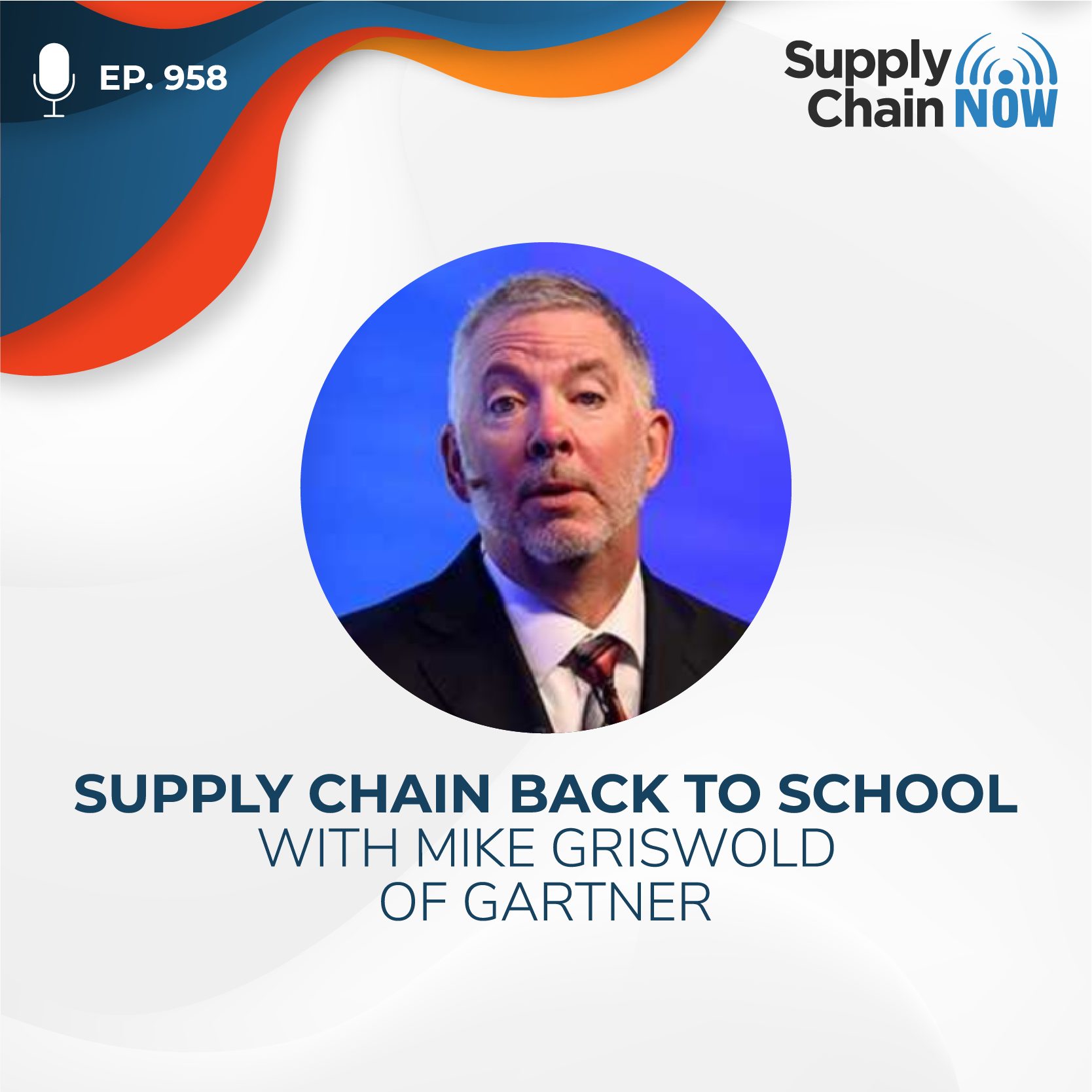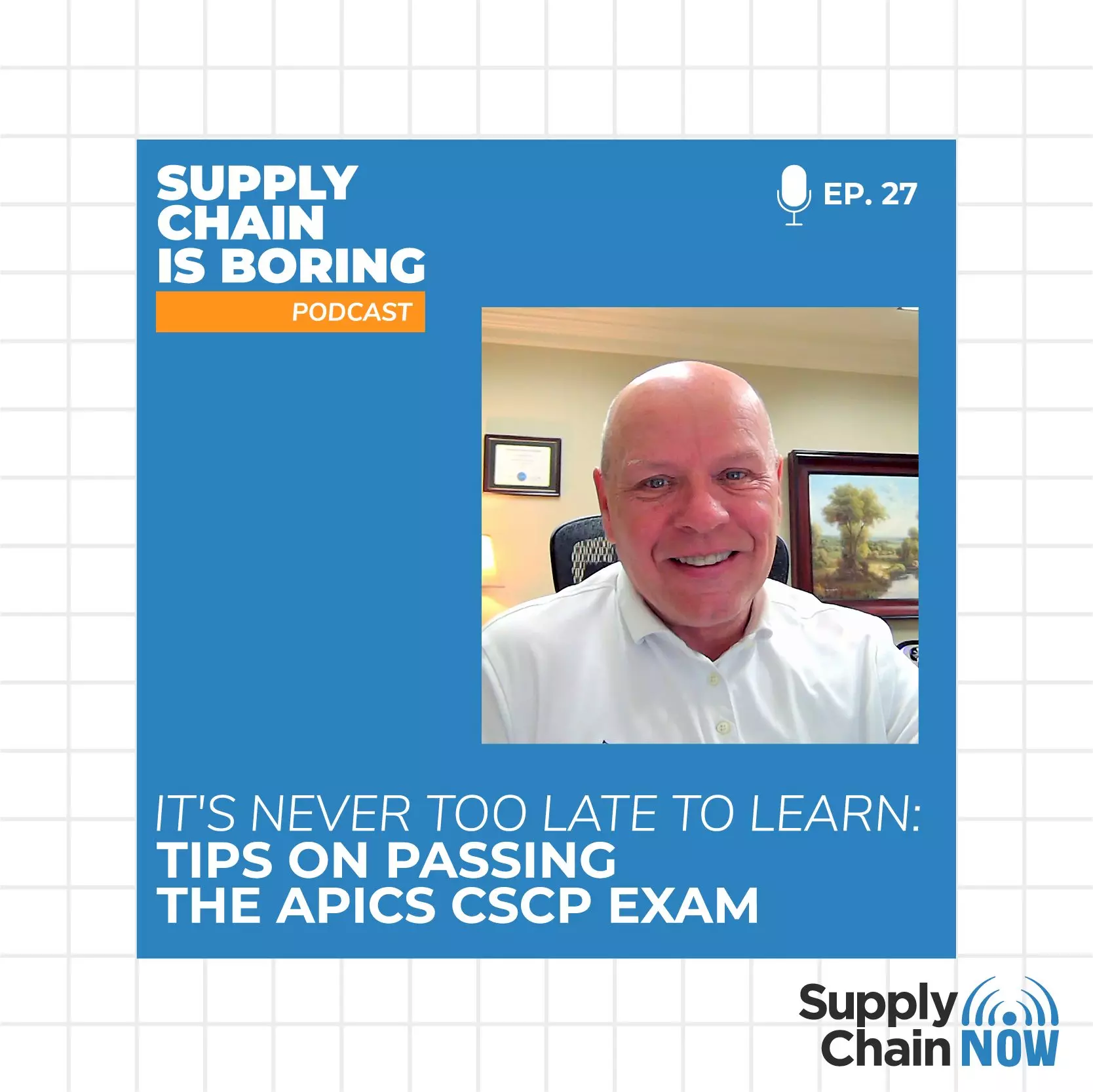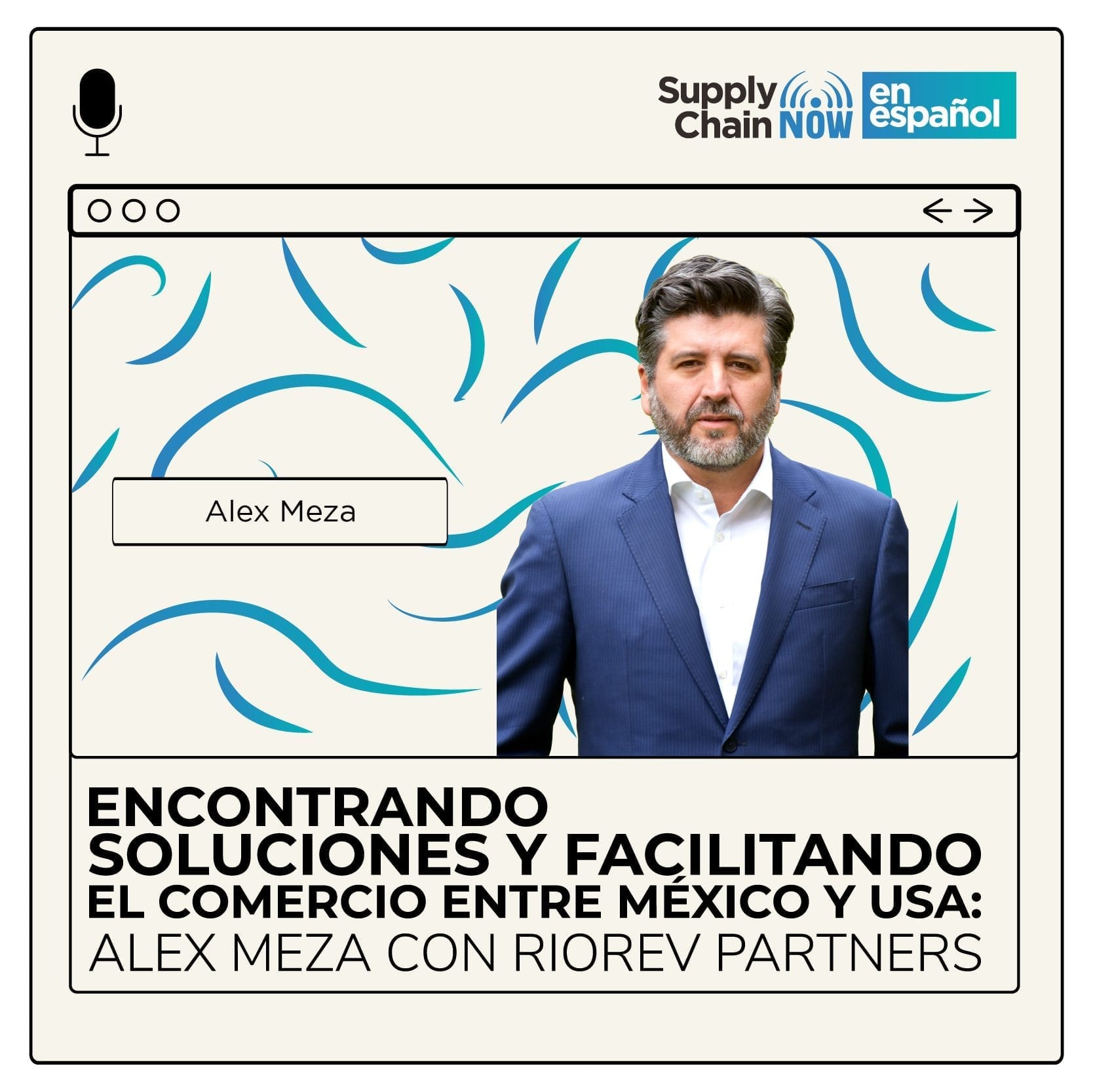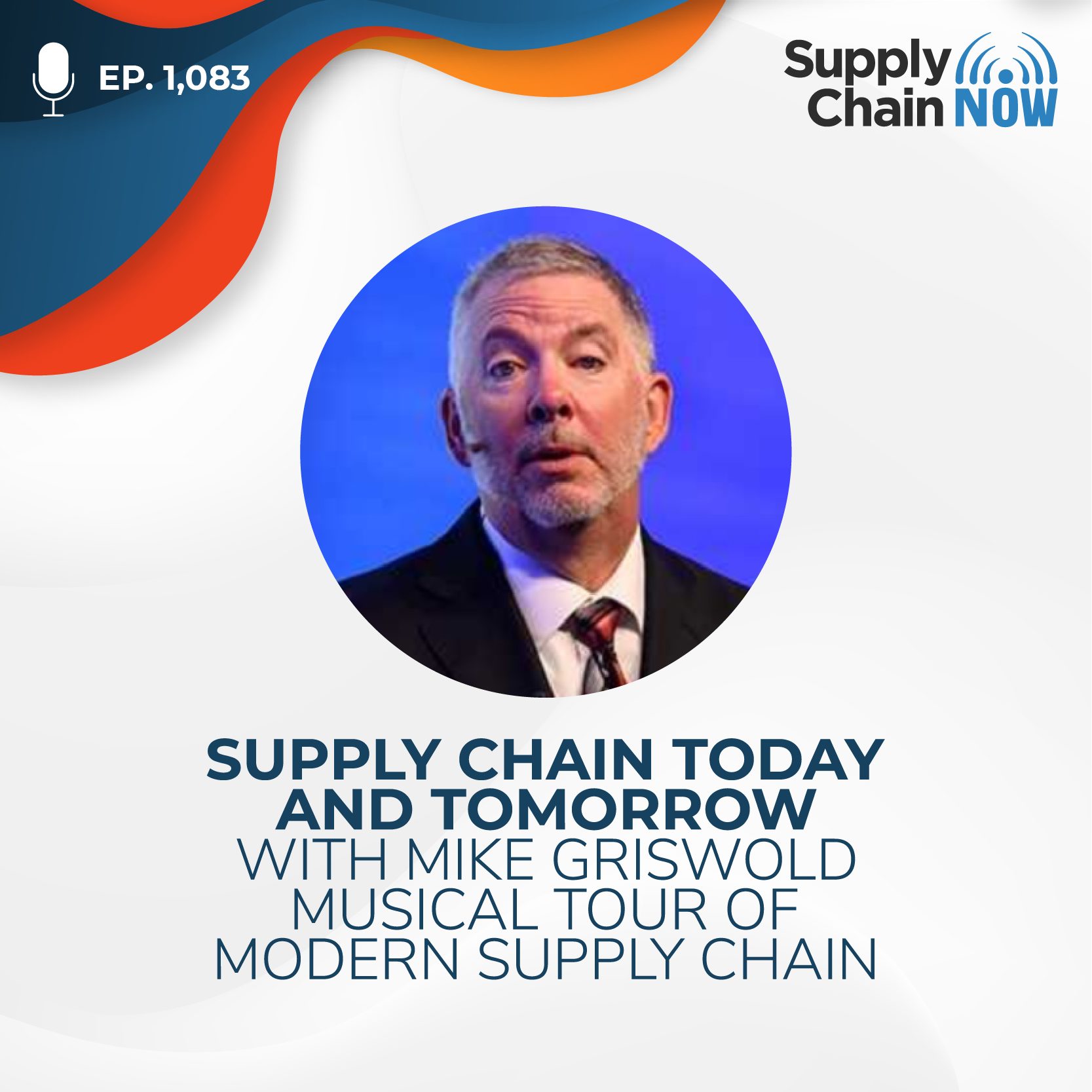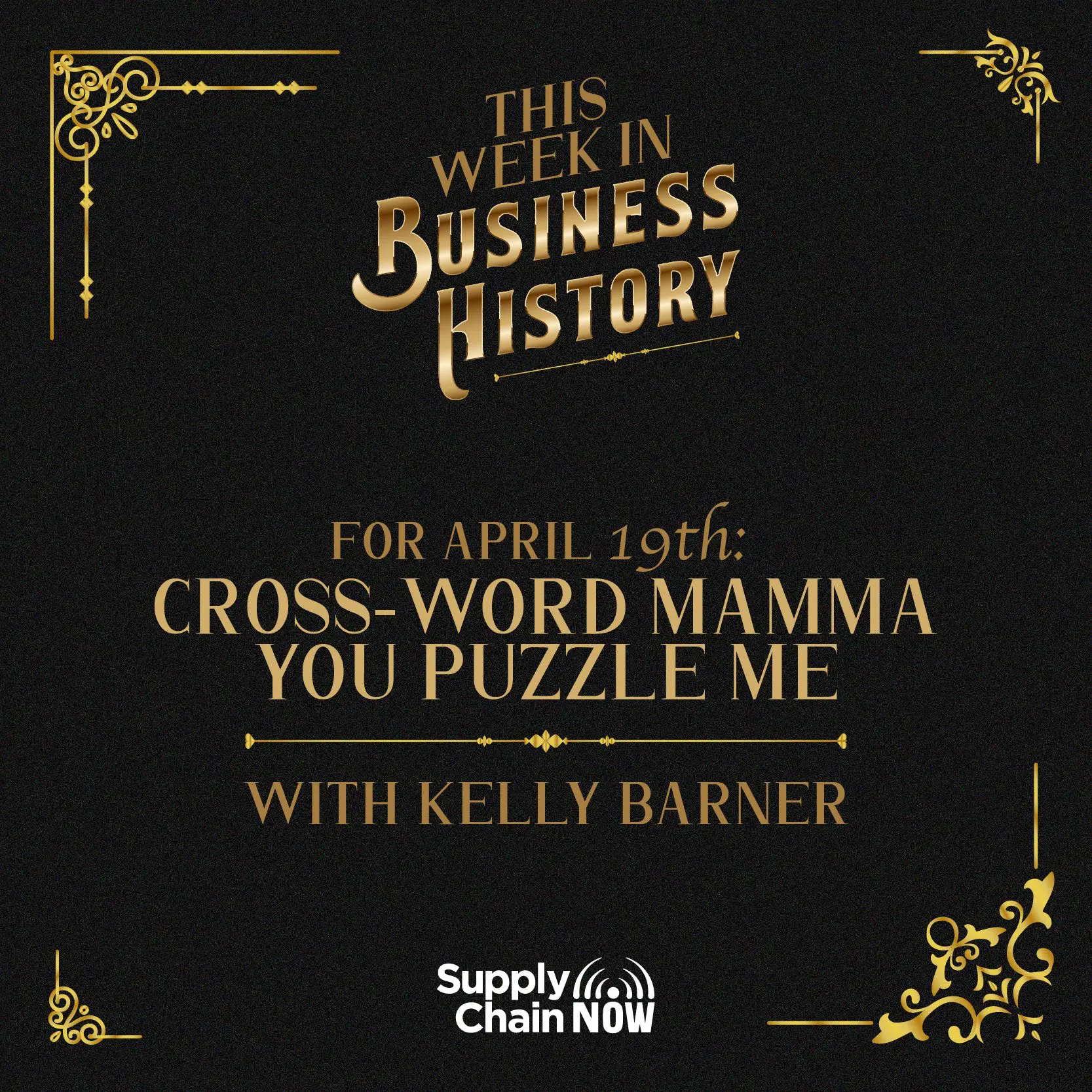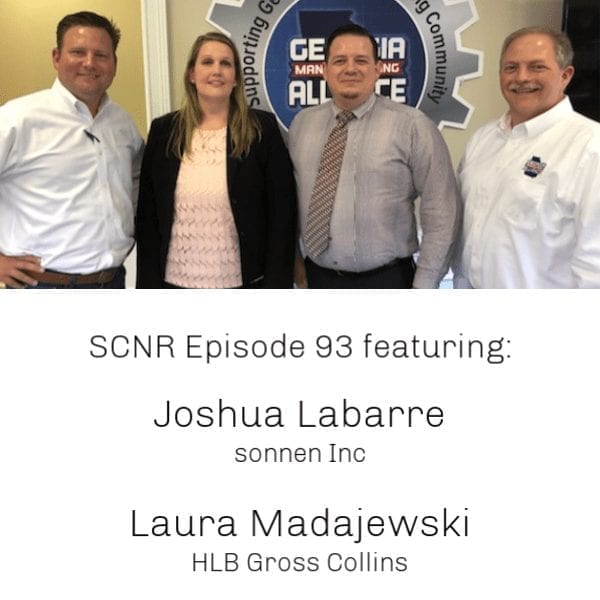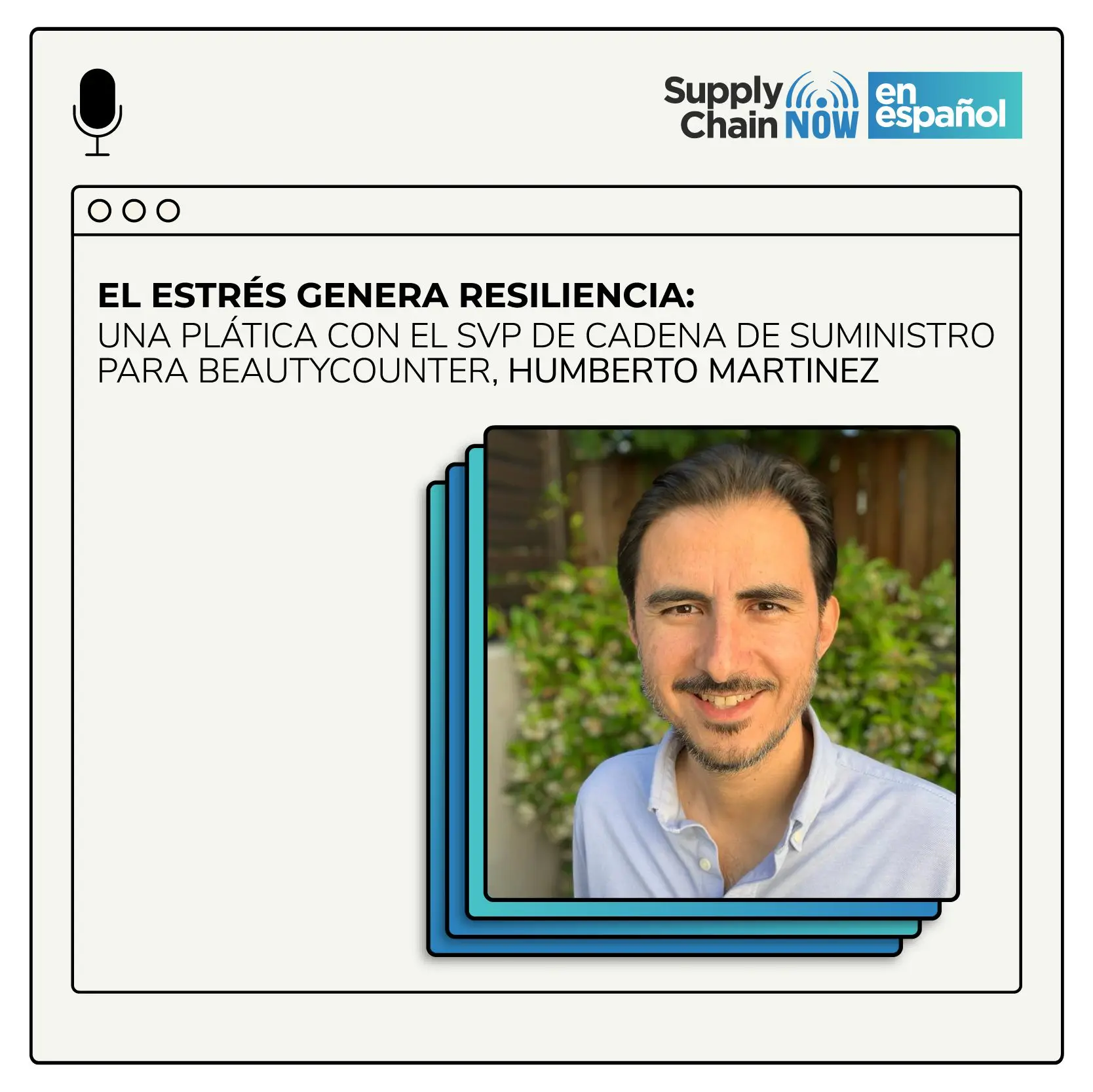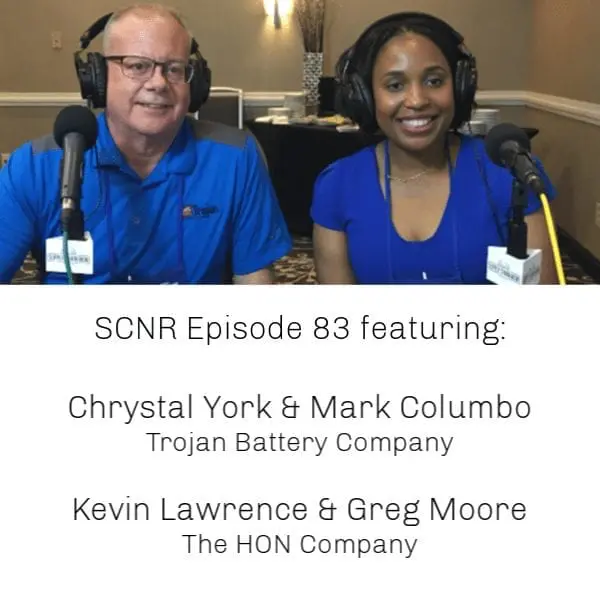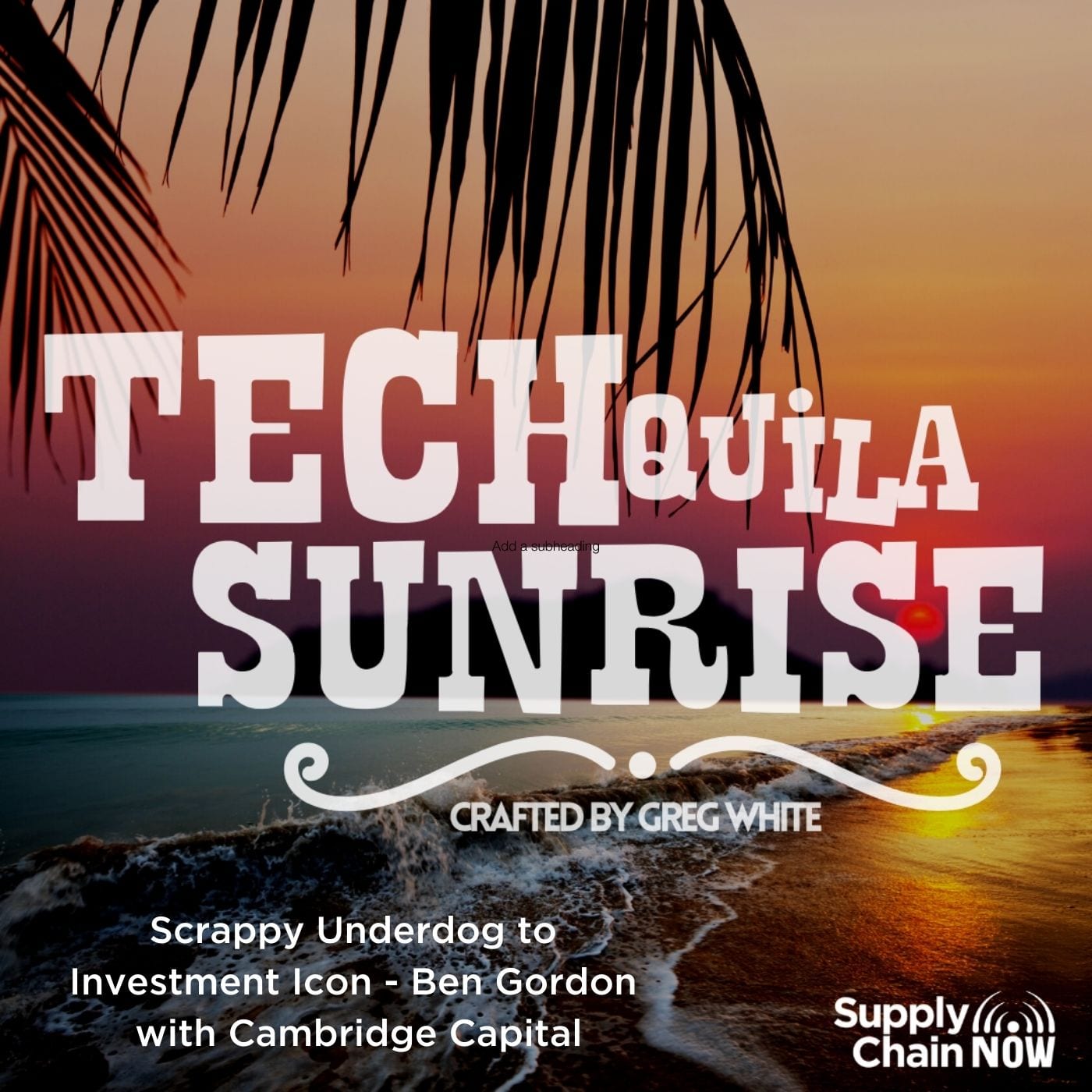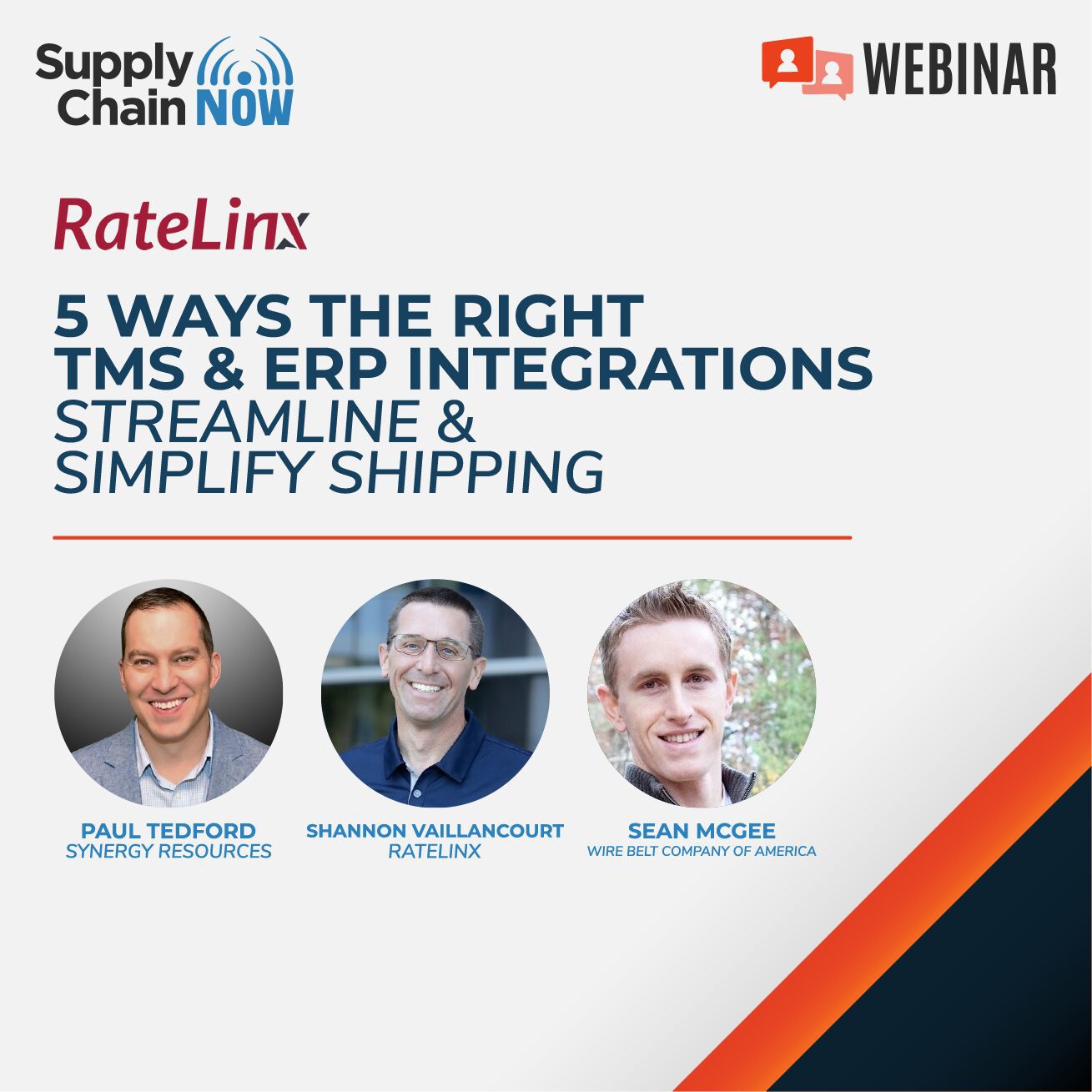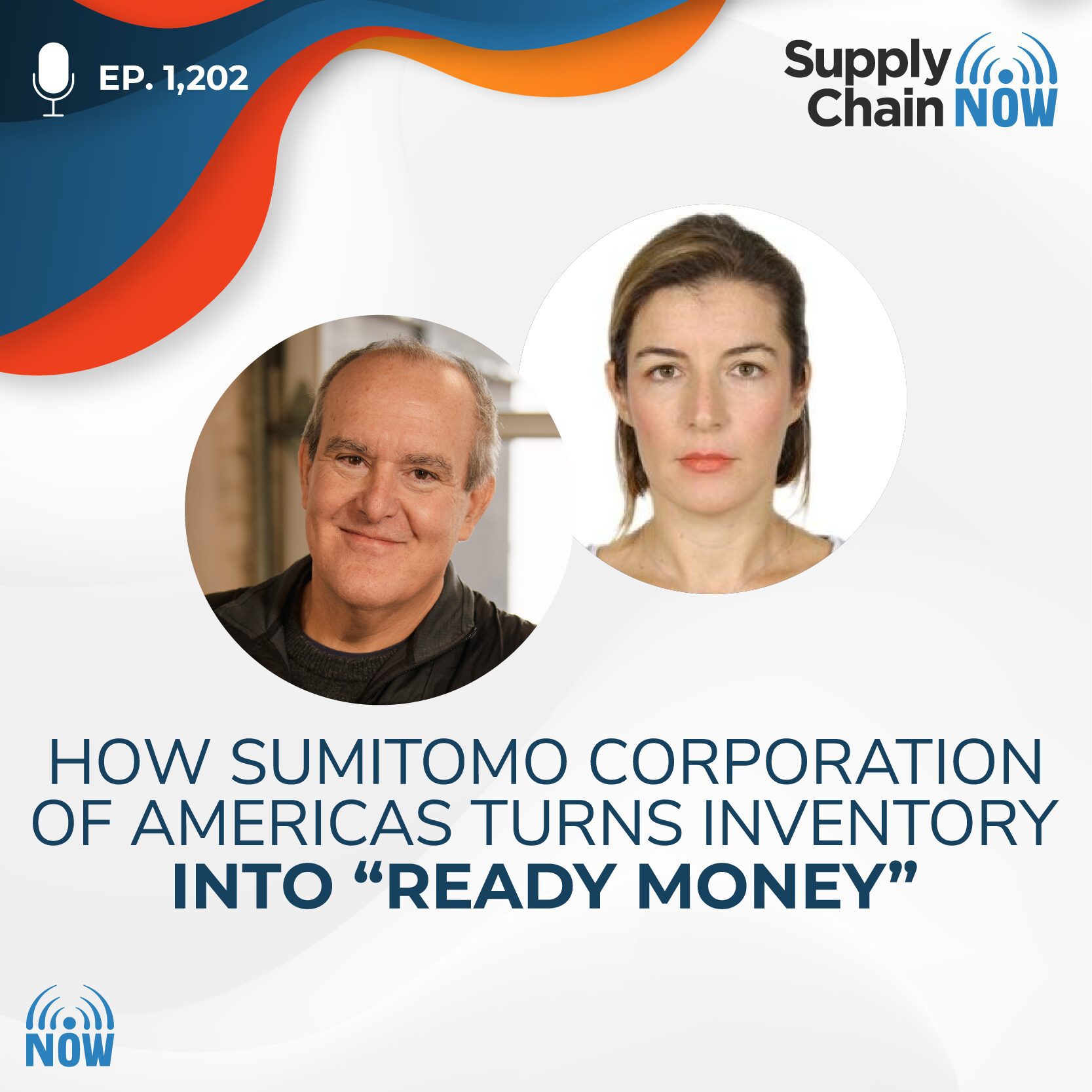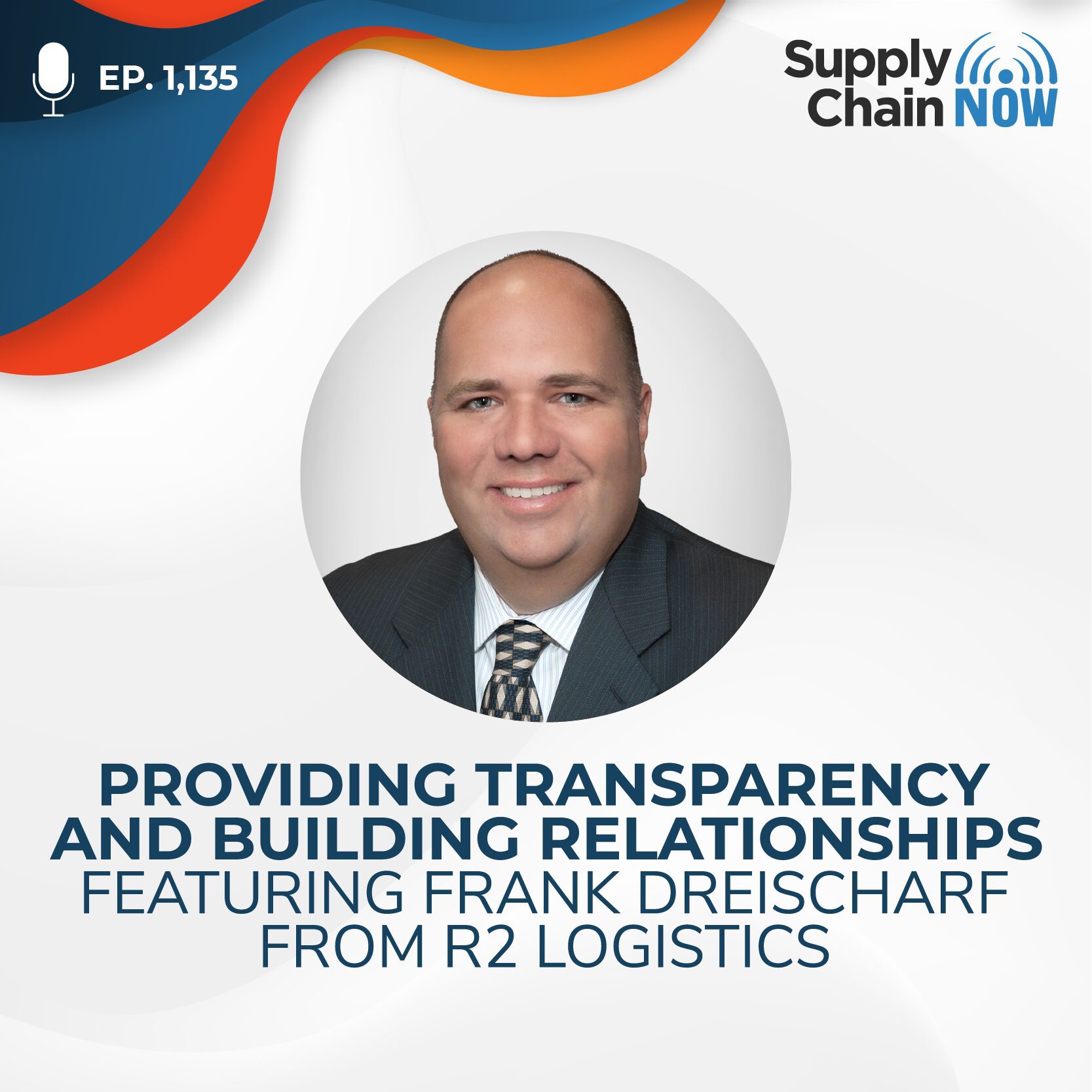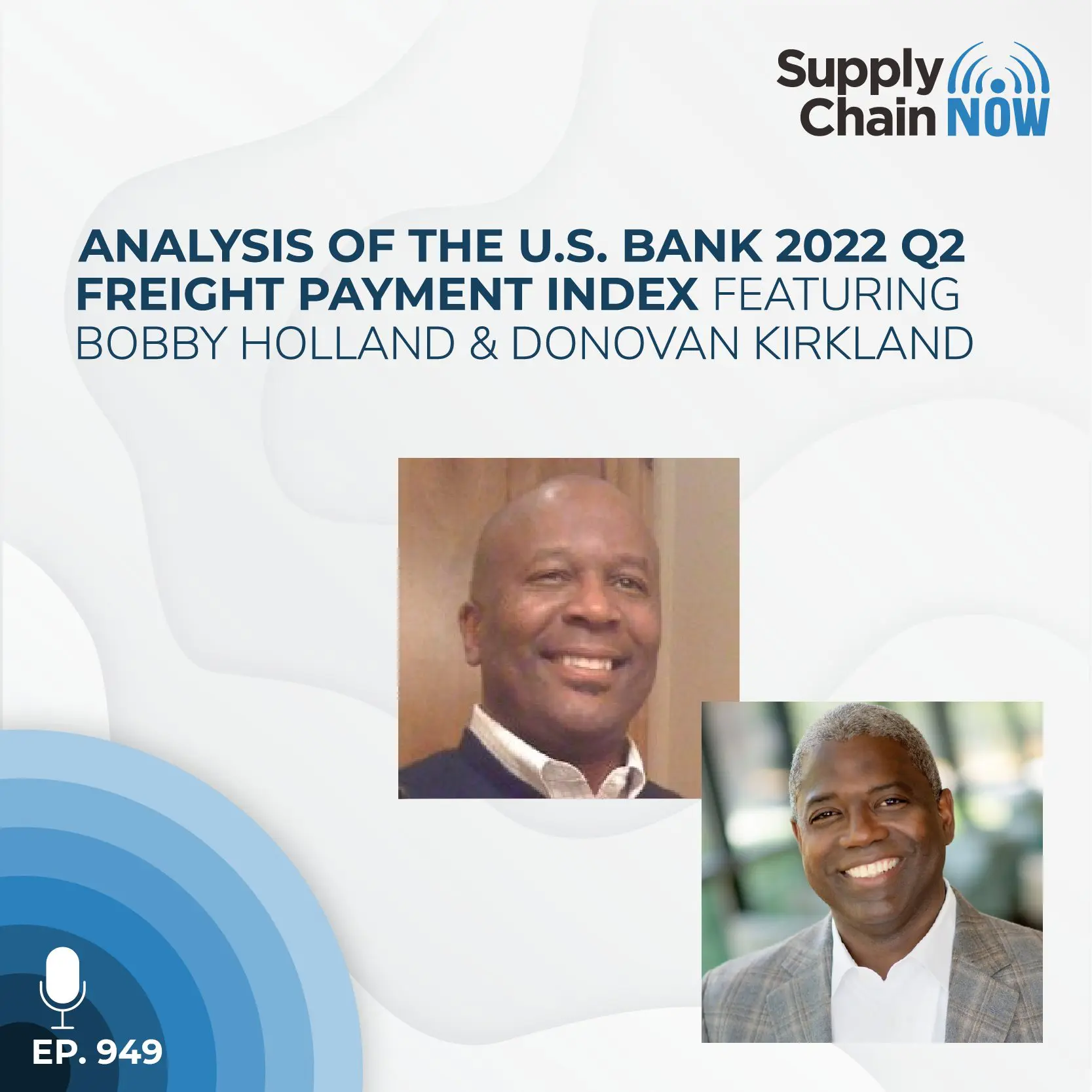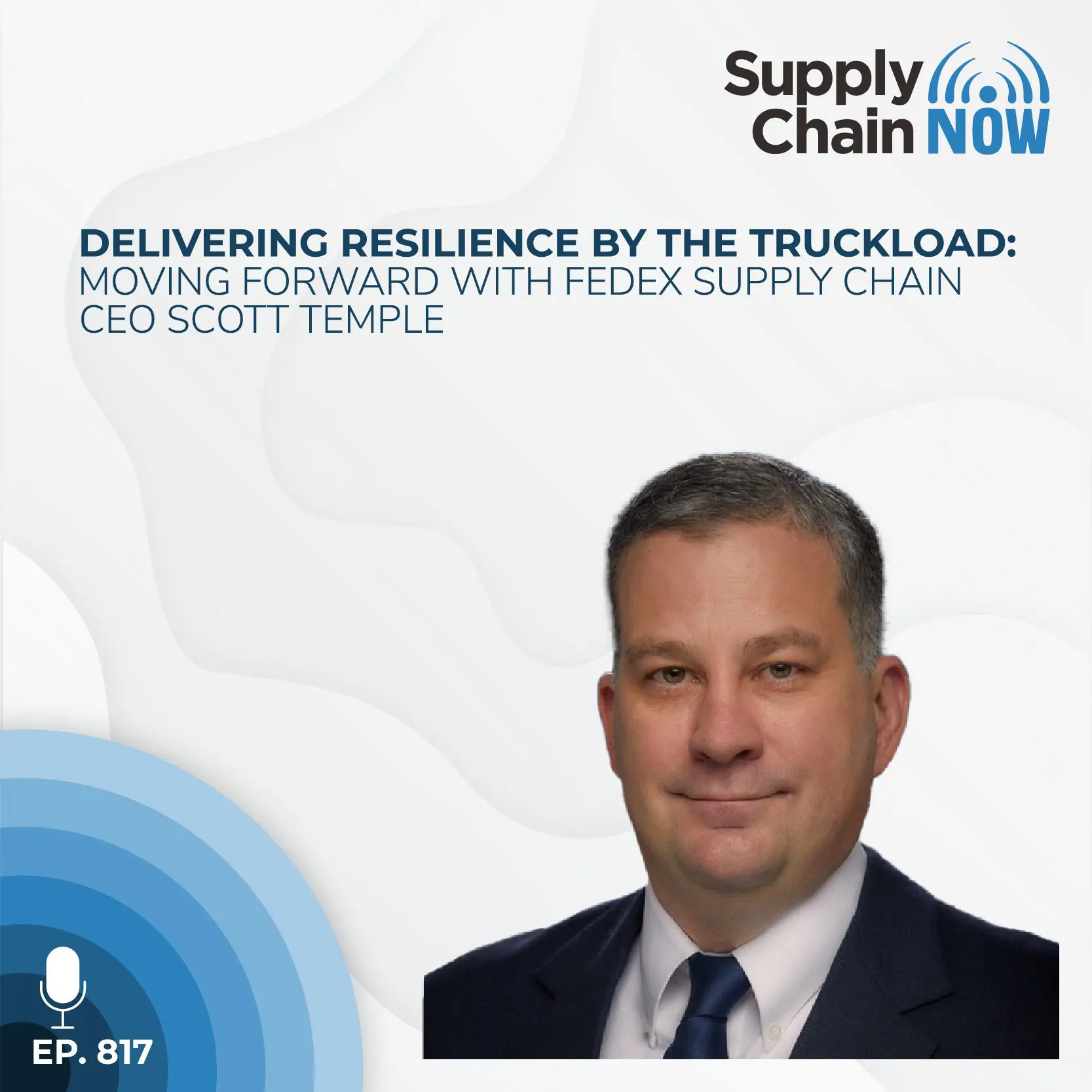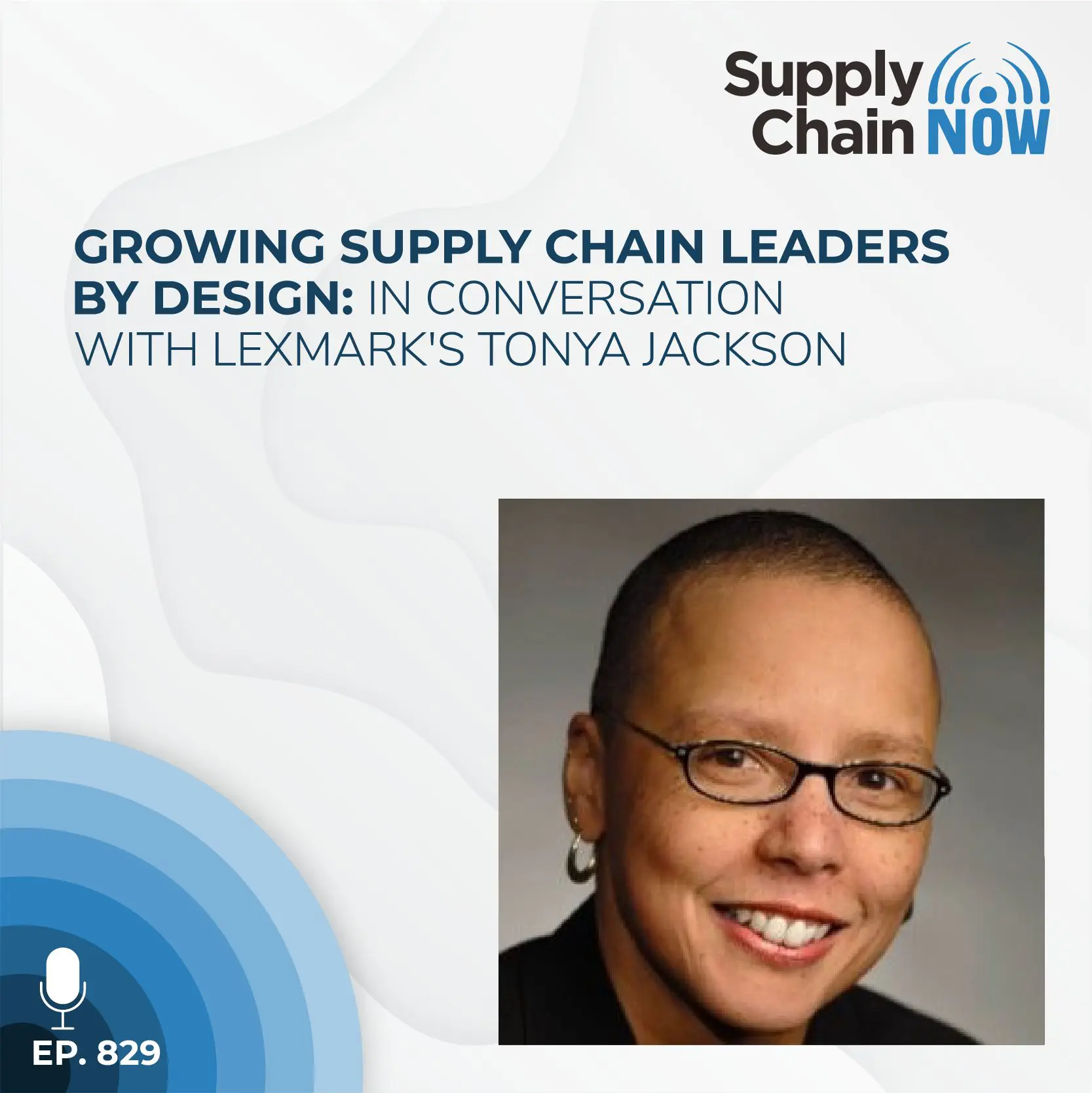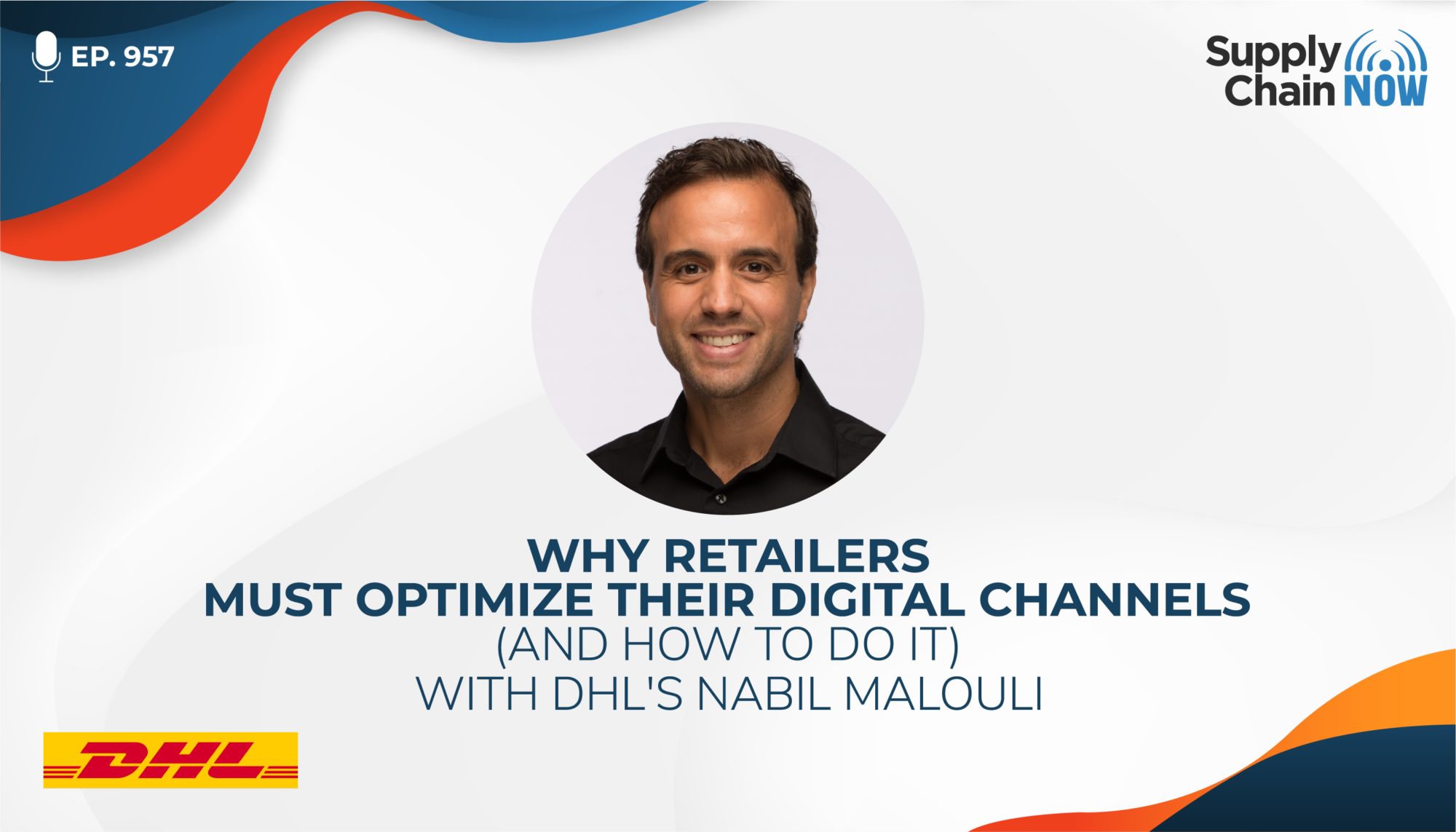
Don't get distracted. Even if this year we get into a year of transition, of going from the COVID state to a more regular growth path, don't get distracted. The winners are doubling down in their strategy and they're doubling down in the investments, going after that digital channel and unifying as much as they can, at the fastest pace they can. The digital channel is here to stay, and it will keep increasing.
-Nabil Malouli
Episode Summary
eCommerce is having a moment, but can retailers meet that moment with the right strategies and tools? In this episode, Scott and Greg chat with DHL SVP of Global eCommerce Nabil Malouli on the evolution of digital channels over the last five years, why social commerce is the new frontier, how reverse logistics can make or break profitability, whether automation can lend a robotic hand and more.
Episode Transcript
Intro/Outro (00:00:03):
Welcome to Supply Chain Now, the voice of global supply chain. Supply Chain now focuses on the best in the business for our worldwide audience, the people, the technologies, the best practices, and today’s critical issues, the challenges, and opportunities. Stay tuned to hear from those making global business happen right here on Supply Chain Now.
Scott Luton (00:00:30):
Hey, good morning, everybody. Scott Luton and Greg White here with you on Supply Chain Now. Welcome to today’s show. Gregory, how are we doing?
Greg White (00:00:38):
I’m doing quite well. Are we sure this is going to air in the morning? What if the afternoon?
Scott Luton (00:00:43):
We’re close to sure, at least in the third of the globe, right? But, hey –
Greg White (00:00:47):
Two o’clock in the morning. Isn’t it? Yeah.
Scott Luton (00:00:49):
That’s a great point. So for folks, good morning, good afternoon, good evening wherever you are tuned in from. But we got a great episode here today. Wonderful conversation. We’re going to be featuring, Greg, a supply chain leader doing big things in industry. You ready for today’s show?
Greg White (00:01:05):
I am. I love it when we get to get practitioners on the air with us and hear what the heck is really going on out there.
Scott Luton (00:01:12):
That is right. And we’ve got a big truckload of been there, done that here today as we welcome in our friend. Nabil Malouli, senior vice president, global e-commerce with DHL. Nabil, how you doing?
Nabil Malouli (00:01:27):
Hey, Scott. Good. Good to be here. Hey, Greg, good to see you.
Greg White (00:01:30):
Hey, welcome aboard.
Nabil Malouli (00:01:31):
Thank you. Thank you for inviting me.
Scott Luton (00:01:33):
So great to see you again, Nabil. We’re talking pre-show. We collaborated a bit about a year or so ago on a neat, a neat virtual event. And I’ll tell you, you’re a rock and roll star at that event as I recall and it’s great to have you here with Greg and I on Supply Chain Now. So welcome in. All right. So, Nabil, before we get into the heavy lifting and we get into your thought leadership and what’s going on across global business. I want to give folks a chance to get to know you a little bit better. Right? So, tell us, one of our favorite questions I always lead off with is where did you grow up and give us some anecdotes from your upbringing?
Nabil Malouli (00:02:10):
Yeah. Absolutely. So, I grew up in the Southeast of France. I’m from an immigrant family from Morocco. So, I grew up, you know, in France, up to the time I was 22 and then I moved into different countries for the last 18 years. You know, it’s funny. I think my childhood was really marked by living in this dual environment and dual culture between my Moroccan background and my French, you know, lifestyle as I lived there. And, I think it really shaped me today on the way also I work and the way I think about the world and the fact that I also enjoy to work with a lot of people from different places. And I get the chance to do that every day. So it really comes from that early childhood experience. Up to today I love to work with people from different countries and I think it’s a big part of my education.
Scott Luton (00:03:12):
Greg, I’m so jealous, just having gotten on Nabil a little bit and now hearing him talk about his background. It’s such a great advantage, an enjoyable advantage, over so many other folks that grew up in just, you know, kind of one neck of the woods, right?
Greg White (00:03:26):
Yeah. I think it’s important to have those global experiences. And when you get to have them almost without leaving home, it’s really incredibly valuable. You get to see kind of your home, whatever you want to call it, original culture, I guess, and your adopted culture, and then to get to work in so many countries is incredible to be able to understand the cultures of so many different parts of the world, right? I think in America, it’s so vast, the best we can do is state to state. You know, everybody speaks English. Nobody has a passport. That kind of thing.
Nabil Malouli (00:04:06):
Well, it’s not that bad. That that would be a – that would be probably what someone that lives in Europe might think about the U.S., but it’s not that case actually.
Greg White (00:04:14):
Not quite. Yeah.
Nabil Malouli (00:04:15):
Indeed, I think in today’s world, it’s so important to be, you know, tolerant and understand the differences. And one thing that I really loved in working across different cultures is actually every culture has very powerful strength, you know. And so, if you are able to pick the best of each one of them, you can actually really find like, you know, from the way you behave to your personal finance, the way you raise a family, the way you work, the discipline, you know. So there are these stereotypes, which are often time true and that have relevance, but you can pick and choose the best, you know. It’s kind of picking the best football team or whatever you can, you know, just select the best of everywhere.
Scott Luton (00:05:04):
Yeah. I love that.
Greg White (00:05:04):
Well said.
Scott Luton (00:05:05):
Well, very well said. And, coming here from the last person ever picked for kickball teams, that was not where my talent was, Nabil. But along those lines, one quick follow-up question as we’re talking about kind of your global view and your upbringing and whatnot, let’s talk food for just a second. What dish was inseparable from your childhood? I mean, the options are endless and as you’re painting kind of your upbringing, we had talked food. So what’s one dish that you really enjoyed as a kid?
Nabil Malouli (00:05:40):
Well, my mom and she – and it’s fine because it’s definitely not American dish, but my mom, she does some lasagna, which is like amazing. And she does it really her own way, you know. I mean, it looks like a regular lasagna, but the taste and the way she does the meat inside and so on, it was my favorite. It’s still my favorite. Whenever I go, my mom, she always will prepare.
Scott Luton (00:06:03):
I love that. All right. So you had us there, and I’m also hearing you to a nice invitation to break bread with you and your mom over a nice pot or a dish of lasagna soon. We’ll do this next time.
Greg White (00:06:17):
Just send us the address. We’ll be right there. Yeah.
Nabil Malouli (00:06:18):
Exactly.
Scott Luton (00:06:19):
That’s right.
Nabil Malouli (00:06:19):
You’ll be welcome. Believe me, anybody that goes to my mom’s place is happy.
Scott Luton (00:06:24):
Oh, man. All right. So, Nabil, we got to stop my brain thinking about homemade lasagna, which is just, just delicious. Let’s kind of start taking some baby steps toward the center dish of what we’re going to be talking about here today. We’re going to get your thoughts on a variety of trends impacting, shaping global supply chain, a lot more really. For level setting purposes, let’s talk about – you know, tell us about what you do at DHL and your role there.
Nabil Malouli (00:06:51):
Yeah. So I’m responsible to build the strategy and to build all the product development of our fulfillment and last mile delivery operations that are servicing e-commerce clients that goes from the like of very large marketplaces up to brand and retailers. And we operate, you know, across – in this line of business, we operate in more than 25 markets with more than 200 e-fulfillment operations that are servicing all kind of scale of companies. And my role is really to build the continuous improvement and next generation of technology automation, robotics, that we need to put in place in order to remain, you know, best in class and keeping improving the [inaudible] of our customers, which ultimately for all of us means my job is to do everything I can to get your product faster, cheaper, and with a better experience. That’s what we do every day.
Scott Luton (00:07:53):
Greg, what businesses not need Nabil looking out for them like that, right?
Greg White (00:07:59):
Yeah. I think it’s interesting because especially in the last couple years, e-commerce has become so prominent, right, and it was growing at a pretty rapid rate. Even for the pandemic, we’re starting to see some of the result of people actually being able to leave their homes in the first half of this year. So I’m curious. I mean, if – I think we’re all pretty aware, Nabil, of how e-commerce has changed over the last couple years. I bet you have some intricacies that people don’t know yet. But if you expand that span to maybe the last five years, tell us a little bit about that glacial shift by comparison now along with the rapid shift that’s occurred in the last couple of years.
Nabil Malouli (00:08:42):
Yeah. Absolutely. So I think if you go, you know, back five years, right, we were really starting to see that accelerated adoption of e-commerce. I think, you know, even if you look at the curve of growth, even pre-COVID, we were continuing to see more and more companies, digitally native companies, being very successful, large organization acquiring companies that were really digitally native companies. And we were seeing also a lot of organizations shifting towards either building their own marketplaces. You know, many of the traditional retailers were opening also their own marketplaces and companies really trying to focus around enabling the sales, the digital sales channel to a larger extent, right, being by omnichannel strategies or by doing partnerships and so on. I think in the last two years of, you know, if we go back to the beginning of COVID, one thing that I think has been a different, I would say accelerated achieved even more, is more around the way, for example, around social commerce, right?
Nabil Malouli (00:09:54):
So, if you look between, you know, February, March, you know, when the pandemic really hit the U.S., like, in the following six to nine months, you saw like from Google Shopping, to Instagram, to Pinterest, to Snap, to TikTok, all of them enabling the e-commerce functionalities to be able to do shopping directly embedded into the social media experience. I think that’s definitely not something new, right? I mean, I lived in China for four years before the U.S., and in China social commerce is, I would say, a method in China that is existing already for like seven or eight years to a very large scale. But in the U.S. or in Latin America or even in Europe, it was still not that relevant and it’s getting more and more relevancy into the business.
Nabil Malouli (00:10:49):
I think the other thing is every time I speak to a client, particularly the large organizations, they tell me this is a priority for them, you know. And it was something that was important before, but you will not hear the same type of statement than the ones you hear. I was on the customer call just earlier today, you know, a very large consumer company. They told us they want to double their revenue online in the next three years. Right? And so, that type of ambitious goals, that type of really, this is a key focus for growth, is something that I think was starting to happen but really became, you know, a reality during the last two years. And you see also companies really walking the talk now when it comes to investments and how serious they’re about this, which I think before it was not necessarily that, you know, that true. Everybody was conscious. Everybody was good for investor community. And for quarterly report to talk about that at the end, many companies were not doing that much because it was still a marginal growth generator for these companies. And I think that has changed. It is a priority now. I think that’s the major difference.
Greg White (00:12:12):
So, that’s real – it’s interesting because I recall working with companies ages ago when e-commerce effectively started. Well, I don’t want to go back that far. But, I mean, because if, I mean, if we really think about it, e-commerce took off in the mid-90s, right? It really started in the mid-90s and it took it as, Scott, I love to say 20 years to become an overnight success. But it really started to come into its own as some of the bigger retailers recognized it as a legitimate alternative or additional channel for their store-based marketplace. So what do you think is really driving? Obviously, the pandemic drove a tremendous amount of growth. Some of that is going to be reclaimed and I think in the stores or in person commerce, but what do you think is overall driving the e-commerce growth over time? Both from a consumer maybe and from a retailer standpoint.
Nabil Malouli (00:13:17):
Well, I think the adoption is driven by two really two elements. One is technology and the second one is consumer preferences, right? If we talk about technology, for example, today mobile commerce is more than 50% in most of the categories. And even if you look at, like, even at like Black Friday or Cyber Monday, what you find is a lot of the orders in the last two years, for example, came in between 5 and 7:00 PM, which is basically the time, you know, when people come from work or they have like some dead times and so on and that they are maybe on their phones. But if they have kids that are not – these are definitely not those times. But it’s a time where people would be browsing on their mobile and pushing transaction and so on.
Nabil Malouli (00:14:03):
But mobile commerce, you know, the enablement of smartphone has been a major enabler. Today most of the transactions or the highest part of transaction are done on mobile devices. And that actually it’s expected to continue to grow up to – you know, production says that we get to 70% probably of what you would see in the next couple of years term of like transactions. So, that is one. I think the one that is my favorite that very few people talk about is the intelligence of data gathering from consumer preferences in being able to push advertising or to push hyper-targeted products to you as an individual in a much smarter way than what was possible 10 years, 12 years ago, is a major driver. The use of psychographic data point to know what, you know, we talked about hobbies.
Nabil Malouli (00:14:58):
I’ll probably get some advertisement about lasagna as we close this call and that I go, you know, online. But this is I think is a major topic of how upsell, how companies are actually enabling, you know, also this consumer filing that is actually making us buy more stuff that in some cases we don’t really need, and especially, you know, now we see it also through a social commerce, right, when you look at some of the companies. For example, SHEIN is a very good example of that, of a success that is finally driven through social converse and through the ability of really pushing products to a relevant audience.
Scott Luton (00:15:40):
Is that Sha – Nabil, is that Shane, the jewelry company?
Nabil Malouli (00:15:44):
No, SHEIN, the Chinese fashion apparel.
Scott Luton (00:15:46):
Oh, okay. I gotcha. I gotcha. Sorry.
Nabil Malouli (00:15:49):
Yeah, which is now the, the fastest, you know, fashion apparel company worldwide. And it’s one of the most downloaded app in the U.S., an example. So that, you know, that shows the power of understanding the consumer and the channel and do how you push product to hyper-targeted audience that are going to respond to that type of advertising. And I think from the consumer preference, of course, you know, there are differences between regions or countries or cultures around how we buy, but ultimately we all want convenience. We all want choice and we all want – and convenience means different things for different people, but we all want convenience choice and we want good prices, right? And so, the ability to navigate products online obviously open the amount of possibilities. You have choices. You’re not limited to any brand or any specific geographic location.
Nabil Malouli (00:16:45):
And that I think is something that this combination, you know, will continue to push the channel, you know. And I like a famous quote that [inaudible] made, which is, you know, focus on what is not going to change. Right? And if you focus on what is not going to change, people will want cheaper products. They will want more choice, and they will want stuff most likely faster. That is just the reality of how, you know, the growth will continue. And I think you mentioned something, Greg, just that I want to highlight. Today when you read the media, you see a lot of bad news around online stage channel and so on. But the truth is when you look at the underlying numbers, yes, there is a certain level of stage that is going back to brick and mortar, but we are simply going back to the path, the growth path, that we had before COVID. And that’s not a bad thing. I mean –
Greg White (00:17:36):
No, right.
Nabil Malouli (00:17:39):
It all depends on expectation, but this is not a bad thing. You look at the results of Shopify, of Amazon, and so on, these companies, they give you really a sense of what is happening in terms of transactions also. And we see it also across the business on the customers we serve. It is not a bad picture. Even if when you read the media, you can get distracted by it. Yeah, growth is slowing down. I mean, who could expect growth to remain at 70% compared to last, you know, compared to last year when we were in the middle of the pandemic, there was government incentives, the government was printing money. Nobody could travel. People were buying stuff ‘cause they could go nowhere. I mean, you know, there is a bit of you really have to take the numbers with a bit of consideration around that as well.
Greg White (00:18:26):
Yeah. I think e-commerce growth is slowing only in comparison to the last couple of years, as you said, when people were forced to use it, to buy just about anything. I’m curious where you think we might settle in terms of e-commerce growth. I don’t think it’ll go back to the rate even that it was before the pandemic. I think even though it’s going to slow versus last year and the year before, I think it will still be growing at a rate that is greater than prior to the pandemic. So I’m curious what you think on that. And then anything else you see, and I think you kind of alluded to this, over the next five years in terms of e-commerce what do you think – where do you think we’ll be when we wake up five years from now?
Nabil Malouli (00:19:12):
Yeah. So I think we are going to continue to see the trend, you know, around the 12, 15% growth year on year in the metro markets. There will be outlier categories. Maybe some categories will grow more, but I’m talking generally. I think the two things that I think are going to be big enablers of that growth and that will continue to push the path of e-commerce towards becoming a bigger and bigger channel for companies are, number one, the social commerce aspect, and I talked a bit about that I think, is a major driver. You will see more and more embedded shopping experience where people are browsing, right? I mean, even Spotify launched embedded functionalities for shopping within Spotify. So wherever you consume your content, your movies, your entertainment, you will have shopping functionalities that are going to become more and more embedded into the experience where it’s easy and we are still quite early actually in the journey. When you look at the experiences so far, they are not that – well, they are not that well done yet, but it’s coming and I think we’re going to see more and more of that.
Scott Luton (00:20:27):
Hey, really quick, Nabil, can I offer a quick example of the point you just made?
Nabil Malouli (00:20:31):
Absolutely.
Scott Luton (00:20:32):
You know, we’re back in the movie theaters. Greg, you and I have both have enjoyed Top Gun 2. You’ve enjoyed it like I think four times. I’ve seen it once and it’s really good. But, folks, do y’all notice in the front end, at least the one theater I was in, a part of a big chain, they’re promoting their NVP program, for lack of a better phrase. So, trying for that transaction as you’re sitting there and, you know, eating the delicious popcorn, drinking the 64-gallon diet Coke, to get, you know, to make that transaction to be a big part, you know, bigger part of their model and community right there as you’re sitting at the movie theater on the front end. To your point, Nabil, you can transact wherever you are these days. There’s always a plate. There’s always an opportunity, right?
Nabil Malouli (00:21:19):
Absolutely. Absolutely.
Greg White (00:21:21):
Yeah. And I think when we talk about social also, think about this. These are people you have an affinity for, you watch their content all the time and they’re pitching you things that’s not uncommon. It goes all the way back to the old days of radio, in good day. When radio used to roll right into what they call the live promo, the speaker would just be speaking and then they would roll right into a commercial for something you almost didn’t even know it was a commercial. Right? And I think people have brought that to social media. Sometimes, it’s pretty blatant pitching, but other times it’s, hey, we use this to do this thing that you have interest in if you’re a hiker or sailor or softball player or whatever it is, you know. We use these things in these shows. It’s kind of like product placement in the movies and some other, you know, and some other aspects of it. And I think definitely that sort of affinity marketing is going to grow for sure, you know.
Scott Luton (00:22:24):
Excellent point.
Greg White (00:22:24):
Great. That is a great call out.
Nabil Malouli (00:22:26):
Absolutely. Absolutely. And, you know, I think a side of this, you obviously, again, independent of what you might think from what you can read in the media and so on, but cross border e-commerce is increasing. There is more and more trade actually that is done, you know, online, across border. So, people are buying cross border because they have access to product that they don’t have in their own markets. You see companies that have shifted, you know, like Nike with an expectation of going 50% direct-to-consumer. Obviously, these are some of the signals also into the industry that are going to push other companies to follow. And also, there is an entire area of the business virtual that we don’t talk a lot about, but the B2B e-commerce side of the story is also very relevant.
Nabil Malouli (00:23:16):
Today most of the businesses still operate on traditional model of ordering and so on. And that’s changing, right? I mean, you have now options that are pretty good where you don’t need to carry inventory for month, for three weeks. You know, you can, you know, you’re a restaurant, hotel and so on, you can buy them online through specialized platforms and so on. And I think that’s going to also drive one more adoption towards the channels. I think the interesting question is whether this land in the country like the U.S., I personally believe that we will get to that 50% of sales that is online. You know, what’s the tie horizon? It’s always how to say, but I think we’ll eventually land there at some point.
Scott Luton (00:23:58):
All right. We’ve touched on a lot already. I want to – and, Greg, I can’t believe – before we talk reverse logistics and returns, I thought for sure as we teed up that last segment talking about kind of the age of e-commerce that you didn’t say it’s not e-commerce anymore, it is just commerce. It’s just how it’s done.
Greg White (00:24:19):
It is just commerce. That’s a really good point. And I think –
Scott Luton (00:24:23):
That’s yours. I’m recycling it, Greg.
Greg White (00:24:25):
Oh, I made it a really good point. Thank you, Scott, for sharing that. Yeah. No, I think we have to look at it that way. Part of the foundational problem, one of the issues or challenges with e-commerce is that – I’m going to harken back to Staples. They’ve built an entirely separate company to manage e-commerce because if you think about – I mean, and this is a history lesson that may or may not be of any value – but when they were primarily a store operation, the store operation’s people didn’t want their bonus diluted by this new upstart that was unprofitable, kind of a test bed. They didn’t want their bonus diluted by this new e-commerce thing. So they’ve built separate enterprises effectively for this. And I think a lot of those companies are starting to blend those together or hopefully have. Macy’s has – believe it or not I’ve got something good to say about Macy’s. Macy’s has and it’s accrued to their benefit.
Greg White (00:25:25):
I think they’re going to be some surprises, Nabil. For instance, manufacturers like Nike, they make their huge margins based on volume. And now my daughters all have and can customize a pair of shoes, whatever colors, extra stripes, whatever the heck they want, and order that from Nike one at a time. And a lot of those manufacturers are not built for direct-to-consumer. It’s going to dilute their earnings. And it’s going to be interesting to see how far companies like that will take it. I don’t disagree that we’ll be 50% probably e-commerce and on-prem. I wonder with certain companies and ultimately their shareholders will determine what they value in terms of the amount of distributed sale versus direct-to-consumer sale because it is undoubtedly more costly. And I’m curious as we kind of talk about this and the next five years, are there specific issues or challenges that jump out to you, Nabil, that we ought to be on the lookout for and maybe managing toward today?
Nabil Malouli (00:26:31):
Yeah. Absolutely. So, you know, actually I got the chance to be in one of these factories in Vietnam just before COVID where they do the hyper-customization so it’s a very interesting process –
Greg White (00:26:42):
Cool, isn’t it?
Nabil Malouli (00:26:44):
Yeah. Amazing. You see, it’s almost like an art piece that is being built by – really, like, it’s unbelievable.
Scott Luton (00:26:50):
Well, Nabil, are there a lot of customers ordering extra stripes for their sneaks as Greg suggested? Is extra stripe all the rage these days?
Nabil Malouli (00:26:59):
Well, I didn’t see that, but maybe they are.
Scott Luton (00:27:03):
So you’re talking about your visit there in the factory. Please continue. Sorry.
Nabil Malouli (00:27:07):
[Inaudible] just showing that. Yeah. These are the type of models where, you know, if you take that example, you’re paying a premium for that, right? So there are products when you can actually do that. And there is space to make money and they’re supposed to do that type of business without degrading margins. But I think to the second part of the question, Greg, which is, I think very interesting is, we’ve seen an evolution also of the way of thinking of how important the profitability aspect of this type of businesses is within the overall, you know, growth path, right? Because there are a lot of companies that were really focusing on growth, you know, with a vision that at some point you’ll be able to make money.
Nabil Malouli (00:27:55):
And I think today what we see is there is really a bigger focus around how do you actually make this business profitable? And it is not only about logistic costs. It’s also about how do you manage returns. It’s also the type of returns policy you are giving. It’s the type of service level expectations you’re setting up. And if you’re trying to go and compete head-to-head with Amazon, it might not be your best strategy, right? In certain cases, you might want to look for other path to differentiate yourself. And some companies, they do a really good job at this. And so, how do you partner with other organizations in order to make the model viable? And it is not all, well, look, the e-commerce challenge is not a profitable channel. It is also a completely wrong statement.
Nabil Malouli (00:28:41):
There are companies that are making very good amount of money, that have very profitable online channels, and they actually have pretty good conditions to the consumer experience and, you know, returns policy and so on. But they’ve built this over the years. This is not also something that you can just say, you know, oh, look, you know, we’re going to do this, it’s going to take one year or two, and then we will be set up. It is a continuous evolution. I think just, Greg, you said something that I really just want to go back because I think it’s very important, particularly for the people like me that we are with clients and we are with people every day that are actually doing this work. There is this whole thing around omnichannel exists for 20 years and, you know, the age of e-commerce is over. Its commerce and all this. My take on this, this is like consultant talks, right?
Nabil Malouli (00:29:31):
This is literally consultant talk. The reason why I’m saying this is because when you work with these organizations and you see the complexity of how do you deal with people that are looking after their quarterly bonus, their monthly results, their yearly results, the dynamic of technology landscape, the dynamic of silo thinking in many organizations and so on, most of the organization out there, you really understand why actually it is not yet just commerce and we are not anywhere close to just be commerce. So, you are absolutely right. Like, you were talking already about this wave of now people are looking at taking that e-commerce away and really integrating both businesses. Right? You talked about Macy’s. Target does a fantastic job at this example. I think there are companies out there that do a fantastic job at that, but there are not so many. There are still so many companies that have a real challenge around truly embedding the experience.
Scott Luton (00:30:38):
But let’s talk about now, Nabil, that you kind of segued us into what our dear friend, Tony Sciarrotta, who leads the Reverse Logistics Association. He’s been calling the reverse logistics and the return side the dark side of industry for probably 20 years. In fact, he was just [inaudible] the other day talking about it. So, let’s talk about reverse logistics and especially returns. So, Nabil, if you could weigh in – you know, Greg and I, we’re certainly familiar with a variety of the challenges that retailers have with returns, but from your point of view, what do you see some of the challenges, you know, beyond the Ikea story, beyond the policy side, what are some of those challenges facing retailers and how can we mitigate and overcome those challenges?
Nabil Malouli (00:31:26):
Yeah. Absolutely. So you have – so returns is becoming critical because the scale it has today. You know, so that’s kind of like situation where you have a $5 million problem and you a large company, it’s okay. But when that 5 million become 100 million dollar, then you start to have the attention. Now that’s exactly where we are. Last year in the U.S. alone, there was more than 700 billion value of GMV being richer, right? So it gets to a scale and size where it’s a problem.
Scott Luton (00:31:58):
Seven hundred billion. I hear you’re right there. [Inaudible] gracious.
Nabil Malouli (00:32:01):
Yes. At the same time, this is something that has been incentivized to a certain extent with different policies over the year that will incentivize customers to just buy and return if they don’t like it. And so, to make it easy and to actually post consumption through the channel and so it’s not that simple to come and to change, you know, this consumer behavior and people are used to policies that are very, very easy to return product. At the same time, you have the sustainability component of the overall supply chain aspect, which is more and more governments, more and more companies are not and do not want to destroy product. And in some cases, they are not going to be allowed to destroy manufactured product. So you’re going to have to find a way to manage this and to actually either resell or re-commerce this product or refurbish them and so on.
Nabil Malouli (00:33:01):
So, there is this combination of free factors. It’s becoming very big. You see these trends. You see these external factors that are influencing companies to do something about this. At the same time, the return experience is critical for loyalty. Sixty-percent of people that have a bad consumer experience on returns will not come back to your website and buy products from you. So that’s very important for loyalty.
Scott Luton (00:33:26):
Is that just after one bad experience, 60%?
Nabil Malouli (00:33:29):
One bad experience. Yes. One bad experience. So, it’s critical from a retention and for business overall, but it’s also now what we see is that becoming more critical also from a profitability standpoint. And, the point here is the following. If I look at the companies that we work with and the ones that we engage with, the conversation in the last couple of years was all about, I want to reduce the cost of returns, right? So I’m going to do a cheaper logistic options. I’m going to focus really on my cost bucket, and I’m going to try to improve that. But the conversation has evolved now. Now, it’s not only about that. That’s one part, but more importantly, or the bigger opportunity is actually on recouping product value. So if I can process this returns faster, better, I can refund my customers faster, right? So I get the point on customer experience. But if I’m able to actually from, let’s say, from hundred products that I’m receiving back, I’m able to push 20 products in premium channel at full product value instead of 10, that delta is where the money is. That’s where the real money is. It’s nothing like in the 5, 20, 30 cents that you’re going to save on the passive return. It’s on the product that you can sell full value at $150 versus, you know, second hand or used product that you can sell maybe at $40, or if you push it into a liquidation channel, you would sell it at $20. And if you have to destroy it, it’s going to cost you money to do that and on top of the fact that you are also creating more problems from a sustain standpoint.
Nabil Malouli (00:35:15):
So, this is what we see in terms of like evolution, and the biggest and the hardest part of this is the return fulfillment. How do you process these returns in an effective manner? Because the processes can be very complex. They are brand specific. They are project specific. If you are handling, you know, we handle consumer electronics. We handle fashion and apparel product, footwear. They have very different needs and requirement. If you need to refurbish, you know, consumer electronic device versus if you have to just process, you know, a footwear as an example, it’s a completely different process skills and so on.
Scott Luton (00:35:55):
Nabil, really quick –
Nabil Malouli (00:35:56):
So, talking a [inaudible] opportunity.
Greg White (00:35:57):
Nobody sweats on a stereo.
Scott Luton (00:35:59):
Right. It’s so true. And, you know, Nabil, you know, kind of going back to your earlier, you know, been there, done that, if anyone, any of our listeners have toured one of those returns processing centers that you kind of alluded to earlier, it is remarkable. You know, a couple years ago we had the opportunity of getting out to a major retailer. And during peak, 300 trailer loads a week is what comes in. And we had the opportunity to see how it comes in. It is the challenge of processing, and to your point, all the different channels involved, all the wide variety of products, the wide variety of conditions all to try to protect margin and recoup some of that margin as to, you know, what comes next. It is remarkable what our reverse logistics professionals are doing more and more as we all know at these days in this era of commerce, not e-commerce but commerce. All right. So, let’s keep driving. We’re talking about mitigation, some of the issues that you’ve laid out there, and then I want to get you to weigh in on the future of where we’re headed. So how can we – some of the challenges on the dark side as Tony puts it or the reverse side, how can we overcome some of these challenges?
Nabil Malouli (00:37:19):
Yeah. So, I think you have two angles, right? One is the technology angle, which is absolutely critical. You know, when you talk about, you know, that scale that you refer to, you know, it’s the same. We see this, right? You see sites that are shipping 100,000 or 200,000 order, and they get back 40% of that. So technology in term of return portal to basically make that experience easy from a consumer perspective up to the return consolidation, return shipping, visibility of what is coming back into the building, by what date, with what volume you’re going to get the processing of this volume through the warehouse with technology that can help you to automate the inbound, to scan the products, to identify the items, to detect some of the products already from a visual inspection perspective quickly. The technology is critical into how you can actually execute this in an effective manner.
Nabil Malouli (00:38:26):
I think the second big part of it, and when I talk about the technology, maybe if I go to the second part, I talk about the technology is not necessarily about like owning the technology. We take an approach for example where we look at proprietary technologies combined with partner technologies in order to really like get the best of breed across these different steps, because it is really different type of technologies and different type of needs from, you know, from a return porter to return shipping to a processing center, and then eventually to re-commerce, which is a new sale process of the item as an example, you know, into either liquidation and so on. So, there are different element of technology that are required, which I think are orchestrating. That entire end-to-end is key.
Nabil Malouli (00:39:15):
The second part is the ability to actually execute these processes. So, for example, one of the biggest challenges in return processing is that these jobs are very similar to a cashier type of job in the sense that you don’t move. You know, if you are picker in the warehouse, you move, you do different things into the warehouse. So, I don’t want to say it’s easier, but it’s very different when you do different type of activities during the day than when you are processing at your processing station and you’re like processing returns all day long. You’re not moving. So, these types of jobs are harder in that sense. And they also require a higher level of skills. Because, you know, if you have someone that’s going to have to sew some t-shirts or going to have to fold, iron product, these types of skills are almost closer to someone that work in a fashion and apparel store or in a hotel or in a restaurant rather than, you know, someone that you would have in [inaudible] profile traditionally working in a, you know, case, big unit, big traditional movements of warehouses. It requires like really a lot of attention into detail because this product, they go back, hopefully the highest level goes into premium channel where the experience and the quality need to be impeccable. Right? You cannot have any failure on this.
Nabil Malouli (00:40:43):
So, I think that execution of how do you process this is also one of the big components of success and let alone when you go into like very sophisticated processes, then you need in certain cases to have like very, very sophisticated hiring processes to actually find the people that can actually do that type of work.
Scott Luton (00:41:02):
Yes. I’m glad you made that last point. ‘Cause, Greg, if we’ve been talking about anything lately, it’s just how tough it is to get to come into some of these roles across global supply chain. We’re just talking about over lunch. Before I ask Nabil about the future – I can’t wait till you paint us a picture, Nabil, of what you see as the future for reverse logistics. But, Greg, we covered a lot of ground just this last couple minutes with Nabil. Some of your thoughts on what he is sharing here, Greg.
Greg White (00:41:30):
I think prevention and mitigation of returns is absolutely critical. I’ll give you two examples, personal examples. I now have two wine coolers, wine chillers, because I ordered one, it had a –
Nabil Malouli (00:41:44):
French wine, I hope.
Greg White (00:41:45):
What’s that?
Nabil Malouli (00:41:47):
French wines, I hope.
Scott Luton (00:41:48):
Yes, of course.
Greg White (00:41:49):
Some French wines. Yes. I also love Italian and Spanish wines too, Nabil. But it had a seal that could have been easily replaced even by me, the amateur, that leaked in a tiny upper corner of the thing. And instead of sending me the seal, the vendor sent me an entirely new wine cooler. Also, they did not collect the wine cooler that they gave me. Right? And it was the driver of the delivery vehicle who was supposed to also pick up, rebox and take back the other one, who said they’re not going to contact you to take it back and this happens all the time. And the other example was a sauna, not huge like a two-person, you know, dry sauna that you can buy online. Same deal. They never picked up the old one, which was only slightly defective. They could have also told me how to fix it and which we wound up doing anyway.
Greg White (00:42:51):
But that is part of the problem. I think prevention is also important. And Tony Sciarrotta from RLA would certainly love to hear us say that. There are so many things you can do in the initial consumer experience to prevent returns. Right? Obviously if the product is torn or missized or whatever, there are those difficulties, but there are all of these things that you can do that prevent returns that I think we can’t ignore as, you know, as we go into the future of whatever you want to call it. I don’t even know if I’d call that reverse –
Scott Luton (00:43:28):
Right.
Greg White (00:43:28):
Logistics, but commerce. Right?
Scott Luton (00:43:29):
Just future commerce. All right. So, Nabil, it must be really good to be Greg White. Delicious wine, steamy saunas. Man, I’m all jealous.
Nabil Malouli (00:43:40):
I was thinking the same, Scott. Yeah. I agree.
Scott Luton (00:43:45):
So, I love your earlier points though. And I do want to talk about the future of commerce. But your points, you know, execution, orchestration, execution. What’s old is new again, just in a different way with different dynamics, but still those common things. We’ve got to master as organizations and as leaders still remain. So let’s talk about the future of reverse logistics or the future of commerce before we get to digital transformation. What do you see coming down the pike, Nabil?
Nabil Malouli (00:44:18):
Yeah. So I think we are going to see a lot more attention around this. I think, Greg, your two examples are spot on. I think there are ways – you know, I also like to believe that we can do a lot more in prevention, but we can do, you know, so much more, you know, after purchase, post purchase experience. And it’s really one of the areas that I believe we have so much opportunity. I think for companies there are so much opportunities around this space. I think the focus was so much around increasing GMV and just selling that people have completely left this part of the business, you know, aside in terms of like addressing it. One reason also maybe that’s more anecdotal but it is important ‘cause I think like you were saying like, you know, how do you prevent this. Because some companies, they don’t even really want to prevent it. Why? Because they still count GMV of even return product. So, you know, there’s also underlying financial dynamics that are important to understand and some consumers also buy products [inaudible] of free shipping and then return items. And so, you know, what I say to brands is – Greg is like, yeah, I do that.
Greg White (00:45:29):
No. I don’t. I wish I had thought of that. That’s another one of the things like bracketing. Is that what they call it where people buy like a 10, 11 and a 12-shoe and then send whichever ones don’t fit back?
Nabil Malouli (00:45:41):
Yeah. Exactly, exactly. Right. So, you know, these are like also – that’s why I mentioned the term incentivize. We’re incentivizing consumer to actually buy more and just return. So, I think there’s these realities also from the businesses that we actually can address and I think, you know, you see some companies are changing behavior also. Like, Apple that was not selling spare parts now is selling spare parts because they realize that the huge amount of business also that is being done on their back if multiple platforms that are now very professional, where you can buy an iPhone, you know, second hand and has warranty for six months, one year, and you buy it at half of the price. And so, they realize also that they have to be part of this. There is a secular economy vision where I think return is a critical element of that, linking the dot between a let’s start to do something really meaningful. And the first thing we really need to do is to avoid destroying product because you can do a green delivery, a green return, that if you’re going to destroy that product, it was useless, right? It was simply useless.
Nabil Malouli (00:45:56):
So, this is a fundamental problem that I think companies need to address. I think there’s a big opportunity. I like to say this is also something that will take off for the simple reason that it’s good for the planet and good for the wallets of companies is, how do you operationalize this. When it’s good financially and it’s good for the environment, usually it’s the best combination to make things happen. The amounts are big. It has raised in terms of importance. And I think companies that are addressing that will be also positioning themselves with a bigger, competitive advantage than the others.
Scott Luton (00:47:32):
Love it. If you can make Captain Planet and Captain Consumer both happy, hey, that is where a lot of wins occur. All right. So, Nabil, I want to move into the final segment of our chat today. And, of course, we’re going to make sure folks know how to connect with you. But I want to talk about digital transformation, right? And, Greg, we’re going to get you to – we’re going to loop you in here in a second. But let’s start with, we were talking earlier about tailwinds versus headwinds. Any of our listeners know I get those interchange all the time. Greg keeps me straight and honest. But headwinds, you know, we’ve made a – industry has made a lot of progress out of necessity, right, out of consumer demands, right, out of other factors, common challenges, new challenges, you name it. But some folks argue we haven’t made as much progress as we could. So, talk, to that end, talk to some of the headwinds you see preventing as much digital progress as much adoption of automation as we’d like to see perhaps, Nabil.
Nabil Malouli (00:48:36):
Yeah. So, I think it’s interesting because also when you look at the reality around this, there’s a bit of a different story often time which you can read. Automation provider, I’m not going to mention, but most of them are backlog. They’re –
Scott Luton (00:48:54):
Sure. Yeah.
Nabil Malouli (00:48:55):
The large automation companies are backlog. They’re backlog six months, one year, one year and a half in some cases. They will not even do an RFP if you don’t pay them a minimum amount of money just for them to participate in an RFP. That’s two days reality. On the other side, you have flexible automation companies that many of them are really, really good at marketing and that getting, you know, videos viral, but that have not yet mastered, you know, high scale operation in many of the technologies. There are some that have, right? I mean, we have, for example, a great partnership with Locus Robotics as an example, you know, and we work with many, many companies. But the point I’m making is sometimes we think it’s because the industry is not ready, but in certain cases there is a bit of that or there is a bit of a bit of mindset change also around the importance of automation, particularly at scale, particularly with short cycle time and short level windows and so on. But it is not only at the industry that has not adopted to the pace. It is also on the, you know, if you look for example, at most of the robotic arm companies, AMR, AGV companies and so on, most of them are like six, seven years, eight years old. And they are still very, very early into their journey also in term of maturity of the technology. So I think that’s something that is changing. We see really – we really see that it has evolved. We start to see like very sophisticated autonomous forklift. You know, I mean, we just signed the deal with Boston Dynamics for the autonomous loader of cases.
Nabil Malouli (00:50:49):
So, you start to see now real applications that also financially make sense. And I think we are going to see a huge acceleration of adoption for two reasons. One is COVID has a – just a side of the inflation topic, but just through COVID we saw an increase on wages in countries like the U.S., 25, 20%, and that’s not going to go down. And unemployment rate is still at the lowest level. So that’s not going to go down anytime soon and it most likely will never go down. So, the business case for automation got 30%, 40% easier in the last 18 months. The second thing is industrial real estate is at highest capacity occupancy, and there’s not much space. So if you need to increase your throughput, you either do a new building or you optimize the one you have. And optimizing the one you have is either you build mezzanine and infrastructure or you automate and throw more technology into it. And so, I think these two dynamics are going to make, you know, the case for automation and digitalization take a much faster pace, if also if all the supply and all the providers can actually really deliver on what their website says.
Scott Luton (00:52:07):
Greg, Nabil makes a pretty compelling start to the business case. Huh?
Greg White (00:52:13):
Yeah. I think so. And I think, you know, at the same time that those factors have held back digital transformation, because the question that I hear often is who’s going to implement this technology on our side as the consumer or B2B customer of that sort of technology. The jobs that technology is, and automation is taking are, well, I feel like we say this all the time, people are staying away in droves from the jobs that most automation is taking. Human beings don’t want those jobs. Even though they fought for ages for $15 an hour, McDonald’s will ultimately be automated, right, or largely automated. Because as you said, as wages increase, they increase, they improve the business proposition for automation. And frankly, if people really wanted those jobs, they’d be taking them now. So we have to acknowledge again that technology is not taking jobs that people want anyway in large numbers.
Greg White (00:53:21):
So now that varies by, you know, Nabil, 18 countries have experienced. That varies by country, right? But that also adjusts the business case for automation because the countries where people still want those jobs, the wages are still much lower than the United States. So, you know, there’s kind of an offsetting factor there. But, yeah, I think there is a ton of business case for automation and digital transformation and for computers doing computer things and elevating humans to do what humans are really, really good at. Right? And, you know, we’re going to continue to see that. The economics will always drive that, you know, regardless of what we hope to get. You know, unintended consequences are often driven, almost always driven, by economics. So, as we make that better case for better pay for certain jobs, those jobs are more likely to get automated depending on what sort of capabilities they require.
Greg White (00:54:30):
So, I’m curious as you think about digitalization, digitization, whatever you want to call it. You know, what’s been interesting over the course of the pandemic is that as e-commerce and other digital initiatives have come up, sustainability and ESG initiatives have tended to stay in the forefront at the same time. And I think a lot of people think of those much like they think of network or inventory optimization as a win-lose proposition. And I happen to think of them as, you know, rising tide lifts all boats. But what do you see or what do you expect as, you know, as companies continue to try to meet these ESG goals and meet challenging supply chain demand scenarios?
Nabil Malouli (00:55:29):
Yeah. Absolutely. So, I think, Greg, you mentioned something I just want to make a highlight on this and then I’ll go to the question on [inaudible]. You mentioned something that is very important because investors when I make these statements around robotic and automation, they’re like, “Well, Nabil, if that’s the case why we don’t see 50% of penetration and we see like 5-7% of penetration in the warehousing space and so on?” Like, because this is not – we are not anywhere soon into a plug and play model. So when we go and we deploy autonomous forklifts, autonomous robotics, ASR systems, these things, we have a group of solution engineers that are highly trained to do that. And, in fact, they are the smartest people we have, by the way. They are the one that will build entire buildings. They do all the calculations, the evaluation of different seconds, you’re going to win through that process and so on. And that’s not something that anybody can do. And that’s also something that the robotics company cannot do yet because they just don’t have, even the resources themselves internally to be able to do it for themselves for the moment so they cannot do it on behalf of customers. But we will get there. And once we get there, it would be a different story around how quickly can you actually replicate best practices and how can you replicate solutions. Today, it’s still highly bespoke and it’s still the reason why the adoption is also more complex.
Nabil Malouli (00:56:57):
And, you know, around the topic of sustainability and how do you link this, I think, you know, we talked a lot about the gas price increase in the last couple of weeks and months, right? To me, that’s one of the areas, for example, this is the biggest window of opportunity for businesses to accelerate the ESG strategy. Because, again, that’s the same then the labor story in the warehouses. The gas price is the main criteria after labor in the transportation business. Right? So, it is actually, if prices remain high, it will also accelerate the move towards more sustainable energies. And fleet is not everything, right, because we also tend to talk a lot about the fleet aspect. But fleet is not everything. Twenty percent of emissions come from building and transport across all the different modes of emissions. So, buildings are also have a big role, you know, how do you play with lighting, solar panels, recycling, education of people within the warehouse operations around good practice in sustainability and so on. All these initiatives, they are critical.
Nabil Malouli (00:58:21):
Now, I think one thing that I’ve seen also is everybody was talking the nice game around sustainability before COVID and you could not see that much. You know, when it was at the time to pay the bill or to take a decision and so on, you would see very, very conservative moves from organizations. And I think this has changed. I think you’ll see now really sustainability. So, for example, we run a big RFP six months ago where it was the first time that sustainability was one of the top three criteria of selection for decision in the ranking methodology.
Scott Luton (00:59:01):
First time. That was just a few months ago, Nabil?
Nabil Malouli (00:59:04):
Yeah. Yeah.
Scott Luton (00:59:05):
Wow.
Nabil Malouli (00:59:06):
Top three, right? You will see it, but normally it was number 55, right, of the selection criteria. It was there –
Greg White (00:59:15):
It was number 11 in the top 10. Right.
Nabil Malouli (00:59:17):
Exactly, exactly. Number 11 on the top 10. It’s [inaudible] actually a case. So, now it’s pushing through, right? Are we there yet? Probably not, but are we seeing like the leading companies, the one that are the trendsetter in the application of change, not in the talking about change. They are really starting to execute on this. And so, you know, the big things, we have a very large group of real estate also where we actually build and sell properties and so on. You know, most of the requests and what is now being built and so on has a very big component of new tech sustainability into it. You could even say, you know, if it’s not sustainable, it’s not innovative anymore. That’s the minimum premise people will expect in new buildings to see renewable energies and lighting windows that allow to reduce consumption, all these things, across buildings as the norm.
Scott Luton (01:00:26):
So, you know, what comes to mind as I heard Nabil talk about the sustainability rankings, for lack a better phrase, and what he and his team are seeing and going back, Greg, to our whole returns discussion and how all three of us were sharing some of our personal experiences, I just wonder how many consumers realize that on some level they’re supply chain managers, right? And, Greg, and I’ll use that term loosely for the sake of discussion. But, Greg, you know, you had a very well-read article, I bet it’s been two years ago now, talking about how consumers smack dab in the middle play a real active role in how global supply chains act and what they do. And it’s just so critical. I know we all three of us can appreciate it. But I wonder how many of our listeners that aren’t what I’ll call, you know, active practitioners maybe that they’re starting to realize that message and that role and how what they do has a massive ripple effect across what we want to see in the industry. Greg, weigh in on that, and then we’ll give Nabil the final word and make sure folks know how to connect with him. Greg, your thoughts.
Greg White (01:01:39):
Yeah. Well, you know that I always say consumers are the beginning and the end of the supply chain. Right?
Scott Luton (01:01:45):
That’s right.
Greg White (01:01:45):
We create –
Scott Luton (01:01:45):
That’s the phrase I was trying to remember from that – yeah.
Greg White (01:01:49):
Yeah. We create the demand and then we consume the goods. And if you have any doubt, whether you’re a supply chain manager, have you ever wondered if you’re about to be out of milk, eggs, or bread? And if you have, you are a supply chain manager and what you’ve done is forecast it, right? And then, you figure out, like I did yesterday, what is the absolute latest I can go to the grocery store and still have milk for my cereal in the morning or eggs for my sandwich in the morning or whatever, right? So, yes, I hope that people are starting to understand their role in the supply chain. And the truth be told. Sustainability starts with the consumer. We make the decision, right, to choose sustainable products or more sustainable retailers. But in the end, I think we’ve said this multiple times in multiple ways right here on this show, economics drive that.
Scott Luton (01:02:45):
That’s right.
Greg White (01:02:46):
So we have to figure out how to make economics a substantial part of the experience for a consumer. If consumers can save money and get their stuff fast and get what they want, then they will do it. Every single person. Every single person. And I have some people who are unbelievably green, and I think I’ve done a great job raising children. I told them I’m an accidental sustainability expert by telling them to turn off the lights in their room and the water in their bathroom when they’re brushing their teeth. Right? That kind of thing. But even when that’s the case, given the choice, they will take a substantially cheaper product over the greener ones. We have to figure out how to make that economically viable.
Scott Luton (01:03:38):
Well said. All right. So, Nabil, I’m coming to you for your final thought or your final challenge to our listeners. But right before we do, speaking of kids, you know, my son feeds our birds. We’re big – we’re all big bird enthusiast here at the Luton family. And I’m trying to work in with him as he’s actively managing our bird seed inventory. Right? I’m like, “All right, Ben, buddy, give me just a couple days’ notice before we run out. Let’s focus on two-day heads up.”
Greg White (01:04:08):
Two-day lead time. Yep.
Scott Luton (01:04:09):
Yeah. It is remarkable to see how they perceive all of that in the simplest terms, you know, but far smarter than when I was, you know, at 10 years old. So, you never know when supply chain principles are going to pop up in your conversations around the homestead. All right. So, Nabil, let’s do two things here as we wrap up our time with you and you brought it today just like you did as we collaborated a year or so ago. I appreciate your perspective here while we touched on a lot of different things. Number one, though, Nabil, give us your final thought, maybe your final challenge to our listeners if you want to, you know, kind of throw down the gauntlet, or make sure if they remember anything or don’t remember anything, what’s maybe one thing they should take away from this conversation. And, two, let’s make sure folks know how to connect with you and follow you and connect with the DHL team. So, let’s start there.
Nabil Malouli (01:05:08):
Yeah. So, thank you, Scott and Greg, for inviting me. So I think my final thought is the following, don’t get distracted even if this year we get into a year of transition going from the, you know, the COVID state to a more going back to a regular, I would say, growth path. Don’t get distracted. The winners are doubling down in their strategy and they’re doubling down in the investments going after that digital channel and unifying as much as they can in the fastest pace they can. The digital channel is here to stay and it will keep increasing. I think the second thing is we are going to see more and more focus around profitability. I think there is not a single part of the supply chain that I can see where I’m like, there is nothing to improve here. Everything, every single mode of transportation, every single step of the process, every time we look into a project, we find areas of opportunities, whether it is big money that is sitting and that can be actually saved, improved, and so on.
Nabil Malouli (01:06:17):
I think the maturity level still of this very dynamic supply chains, particularly around e-commerce and omnichannel businesses, is really, really dynamic. And there will be so many opportunities ahead. And I think the last thing is, if we look at the unemployment rate and we look at the other market, there is obviously a lot of concern around the economic situation, but as long as we continue to see strong organizations still employing, you know, and still very low unemployment rate, we will see supply chains being stretched. We will see that because it means that people are employed, they will continue to consume, and that we will have a lot of work to get done. Even if the volumes are not growing as fast as they’ve been, I think that’s okay. They will go back to accelerated pace at some point, but I think it is an opportunity not to relax. It’s actually an opportunity to actually double down and really accelerate through the conversion of these areas also.
Nabil Malouli (01:07:26):
The return example is a very good example. You know, if your volume is going a bit more on the control and more stable, well, that’s the best time to go and attack that return topic like big time and really, really start this. And you’ll see that there is more money sitting there than on what you are trying to do, you know, maybe with a forward deployment and, you know, pay whatever initiatives you are working on. So, I think it’s a time to really look at that. And, if you want, of course, to be in touch with me and with my team and so on, my name is very easy to find on LinkedIn. With my name, you can find me easily on LinkedIn. My email is also my first name, dot my last name, @dhl.com. And I’d be very happy to be in touch.
Scott Luton (01:08:10):
It’s just that easy. And, you know what, we’re going to make it even easier, Nabil. On the episode page, we’re going to list some of your social profiles and folks can click on there to follow you, to connect with you, you name it, and of course DHL. So, appreciate what you do. And, folks, you heard Nabil say it. You got to attack the opportunity, right? Double down because the competition certainly is doubling down on the winning strategies and formulas. Nabil, really enjoyed reconnecting. I really appreciate all of your expertise and perspective, and been there, done that that you shared here today.
Nabil Malouli (01:08:46):
Thank you, Scott. Great to be here. See you soon. Thank you, Greg.
Scott Luton (01:08:49):
Absolutely.
Greg White (01:08:51):
Thanks, Nabil.
Scott Luton (01:08:51):
And, Greg, a lot of good stuff here with our friend, Nabil Malouli, senior vice president, global e-commerce with DHL. But, hey, Greg, you know, as our listeners are processing the last hour, hour or so, what’s one key thing? Nabil, we’re going to talk about you as if you’re not there. What’s one key thing, one key aspect of Nabil’s message you think folks have got to depart this conversation with?
Greg White (01:09:18):
I’d have to say it is to take advantage of this opportunity. I mean, not only has he been there and done that, he’s being there and doing that still. And, in times of transition, in times of unrest, right, where there is chaos, there is profit, it’s a good time to stabilize your company if you can’t stabilize your demand, which is very difficult right now, as we have talked about various industries are up more or various aspects or down more. But as Nabil said earlier, still growing, right? E-commerce is still growing. And, golly, this is the one thing, sorry, I had to kind of come around to this. This is the one thing. If you are not in e-commerce now, what are you thinking? Get into it. I mean, at least start that initiative now. Accelerate it. Learn from those who have been there before, companies like Staples and Amazon and Walmart and others, that have been in e-commerce forever. Learn what they’ve done right and what they’ve done wrong and capitalize on this opportunity because it opens up literally the entire world to you.
Scott Luton (01:10:35):
Well said. Opportunity is bound. Okay. Big thanks, Nabil, his whole team. Really enjoyed the conversation here today. Big thanks to you, Greg. I love having these conversations with you. Big shout out to our wonderful production team, including Justin. But to our listeners, hey, it’s all about you. Thanks for tuning in here today. Thanks for being a part of the conversation. We want to hear your take on what we talked about. Shoot us a note. Connect with Supply Chain Now across social media, and be sure to connect with Nabil. He is a dynamo when it comes to continuing to share the good news of what’s going out there across industry. Folks, whatever you do, you heard it from Nabil and Greg, deeds not words. It’s time to take action for sure. On behalf our entire team, Scott Luton signing off for now, challenging you to do good, to give forward, and to be the change. And with that said, we’ll see next time right back here at Supply Chain Now. Thanks, everybody.
Intro/Outro (01:11:29):
Thanks For being a part of our Supply Chain Now Community. Check out all of our programming at supplychainnow.com and make sure you subscribe to Supply Chain Now anywhere you listen to podcasts, and follow us on Facebook, LinkedIn, Twitter, and Instagram. See you next time on Supply Chain Now.
Featured Guests

Nabil Malouli is a global multi-disciplinary leader combining Corporate Executive experience, Startup Advisor & Investor, Consultant & Speaker. He is VP, Global E-commerce for DHL where he leads the innovation, strategy and product development of its e-commerce solutions. Nabil was formerly VP, DHL Customer Solutions & Innovation where he oversaw the development of innovative solutions to support Fortune 500 companies doing business globally. He has deep experience on solutions related to digitalization, automation, big data and robotics. Nabil is passionate about innovation, e-commerce and entrepreneurship and a regular speaker on the conference circuit. He also serves as an advisor to high growth start-ups, accelerators, NGOs and Universities. He holds a Bachelor’s and Master’s degree in International Trade from the University of Montpellier, France. Connect with Nabil on LinkedIn.
